Music The heart and soul of the Caribbean
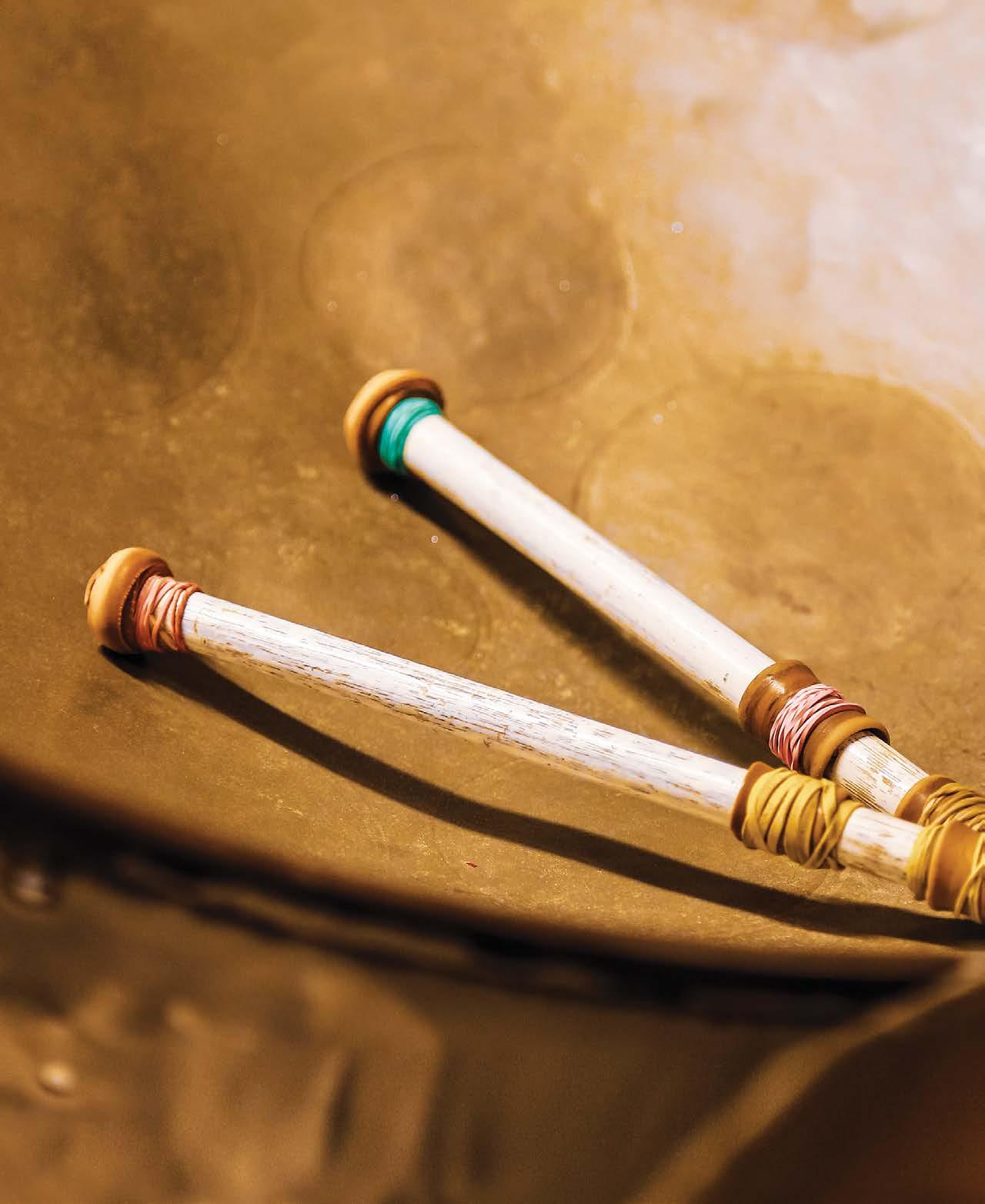
Andi Oliver A journey of discovery Soca star Ricardo Drue Making happy music Sadhguru Yogi, mystic and visionary
The Antiguan racer The world’s rarest snake bounces back
ISSUE 14 • AUGUST 2022

II welcome all those who have given thought to visiting and investing in Antigua & Barbuda. Be assured that our visitors and newly minted citizens have grown to love and embrace their new island-country, its business environment, its investment climate, its people, its culture, its food, and its music.

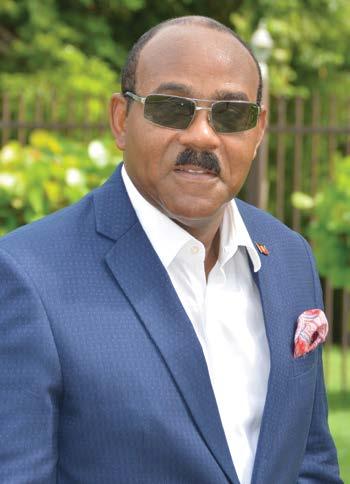
Carnival in Antigua ended shortly after 1st August 2022, a national holiday throughout the entire Anglo-Caribbean celebrating the emancipation from slavery in the region. During the 10 days of celebrations which precede the holiday, music dominated the Carnival festivities. Artistes of all ages and of varying skills competed to be judged the best and to be affirmed by the placement of a majestic crown on the winner’s head for the Calypso and Soca Monarch titles, two of the highlights of the Carnival celebrations.
Though the highly syncopated music of the Caribbean dominated, love songs, reggae, rock, dancehall and country and western music all found their place in restaurants, on the radio and television. Unsurprisingly, Calypso and Soca reigned supreme as the music at the beating heart of Carnival.
Now that the festival has begun retreating into memories, residents and visitors can still enjoy a variety of music around the islands; whether it’s classical music, jazz, rock-and-roll or any other genre they are looking for.
Antigua & Barbuda deems itself metropolitan in outlook, ready to welcome the world and varied cultural forms. Music, of course, is the most culturally-identifiable output that captures our sensibilities from a very young age.
Come join us in our twin islands. Your investments are safe and secure, the returns worthy of your resources. And, if music is the essence of life, come to Antigua & Barbuda where you will receive all that your hearts may desire. Welcome!
03 ISSUE 14 • AUGUST 2022
welcome
Honourable Gaston Browne Prime Minister
“Music, of course, is the most culturallyidentifiable output that captures our sensibilities from a very young age.”
HHans Christian Anderson famously said, “Where words fail, music speaks.” When you are thinking of adjectives to describe Antigua & Barbuda, words certainly don’t fail; breath-taking, stunning, dazzling, glorious and sublime all easily spring to mind. But another thing is for certain, music is at the heart and soul of the twin islands and the Caribbean region.
Pretty much every moment we celebrate in our lives is tied to music - and in Antigua & Barbuda, this is no exception. Indeed, the joyous nature of the local population and its deep-rooted culture means celebrations are simply part and parcel of life in this tropical paradise. Calypso and Soca are at the core of the colourful annual Carnival, which takes place from the end of July to the beginning of August. Events like the world-famous Antigua Sailing Week held in April each year, international cricket matches, Barbuda’s Caribana Festival and even Independence Day are chock full of music, concerts and festivity. Across the islands, at celebrations, beach bars, and the weekly Sunday party at the Shirley Heights Lookout, one can hear the unmistakable sweet melody of a steel pan band – a sound truly synonymous with the Caribbean. And sipping a cocktail under a swaying palm on an idyllic beach while listening to the soothing sounds of reggae may be a stereotypical scenario, but it is still on everyone’s Caribbean bucket list. Music is most definitely the backdrop to these stunning islands.
But for the people of Antigua & Barbuda, music means much more than celebration and happiness. It serves as a direct connection to their enslaved West African ancestors who brought their rhythms and instruments to the islands – a connection of freedom, pain and joy which weaves itself through the music language, food and character of the people.

The traditions and culture of the twin islands mix seamlessly with all the trappings that a vibrant economy, stable political climate and modern infrastructure provide. As well as offering an authentic Caribbean feel and a natural beauty that takes your breath away, anyone who chooses the twin islands to make their home will enjoy good healthcare, excellent communications and great education, including several universities, amongst which you will find the fourth landed campus of the University of the West Indies. Fabulous restaurants, hotels and resorts, the UNESCO Heritage Site of Nelson’s Dockyard and a host of watersports and other activities make up the mix. And with flights taking just four hours to New York and eight hours to London, the island is anything but isolated.
Antigua & Barbuda’s CBI programme is one of the best in the Caribbean and is in the top five of the Professional Wealth Management’s CBI 2021 Index carried out by the International Financial Times Group. Citizenship to the islands allows visa-free travel to 165 jurisdictions, including Hong Kong, Singapore, the UK and Schengen area.
05 ISSUE 14 • AUGUST 2022
THE CITIZEN, the official publication of the Antigua & Barbuda Citizenship by Investment Unit (CIU), is produced by Select Publishing with the full support of Charmaine Quinland-Donovan, CIU’s Chief Executive Officer and the Government of Antigua & Barbuda.
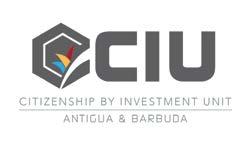
Publisher: Managing Editor: Creative & Art Director: Advertising Designer:
Danielle Jacobsen Susan Brophy Marta Conceição Analu Pettinati/Antonio Caparrós/ SalmanDesign/Paulo Couto
Antigua & Barbuda introduction photo (page 4 & 5): Danielle Jacobsen
Photo credits: François Geleyns, Andre Phillip, Antigua & Barbuda Tourism Authority, Isha Foundation, Crown House Media, Optomen Television, Nick Carter, Great House Antigua, Fer Ribes, Danielle Jacobsen, Deposit Photos, Shutterstock, Pixabay, Unsplash/Isaac Struna, Unsplash/Dinesh Chandrap, Yensa Werth and Cynthia McLean (www.cynthiamcleanart.com)
Translations: BCB Soluciones
Repro & printing: Lisgráfica – Impressão e Artes Gráficas
Circulation: 2,000
For all editorial and advertising enquiries, or to order a free copy, contact: select@select-publishing.com
The views expressed in the publication are not necessarily those of the CIU or the publishers. The publishers make every effort to ensure that the magazine’s contents are correct, but cannot guarantee the accuracy of any information published herein, or be held accountable for any errors, omissions, or claims for any damages.
All rights reserved. No part of this work may be reproduced or transmitted in any form or by any means, electronic or mechanical, without prior permission in writing from the publishers.

thecitizenantiguabarbuda
thecitizenantiguabarbuda
For Citizenship by Investment Programme (CIP) related enquiries, contact CIU at: info@cip.gov.ag www.cip.gov.ag
For Investment Migration Council (IMC) membership enquiries, contact the Regional Representative Office at: caribbean@investmentmigration.org www.investmentmigration.org

To access THE CITIZEN:
CiviQuo is the World’s First Investment Migration Marketplace. For enquiries, contact us at: info@civiquo.com www.civiquo.com www.thecitizenantiguabarbuda.com issuu.com/thecitizenantiguabarbuda
 Susan Brophy Editor
Susan Brophy Editor
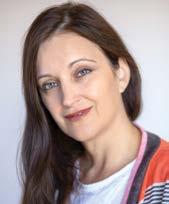
s summer comes to a close after a record-breaking season and the islands are gearing up for an even busier winter season, we welcome you to issue 14 of Antigua & Barbuda The Citizen.
Antigua’s technicolour carnival took place earlier this month after a two-year hiatus, filling the island with music and joy. This issue’s cover story celebrates the music at the heart of the Caribbean, which like so much here in the islands, stems from the people’s West African roots.
Soca music is the unmistakable soundtrack of the carnival. Antiguanborn Ricardo Drue is one of the rising stars in this ever-popular genre; he discusses his passion for Soca and his new album with us. Broadcaster Andi Oliver’s life has been filled with music and food. She talks to us about how a recent visit to the islands to film a television programme changed her life forever.
After last issue’s impactful conservation article written by Sadhguru himself, this time, we are privileged to be able to ask the yogi, mystic, and tireless soil conservationist all the burning questions we have for him about his life mission and teachings.
As they say, “necessity is the mother of invention”, which is indeed why many women in Antigua & Barbuda and the wider Caribbean have become incredible innovators and inventors. The first CaribbWIIN event, which took place on the island to celebrate and gather these amazing females, is documented by Maria Blackman.
Brit Katie Cooper and her husband found themselves by chance in Antigua and, after falling in love with the place, are now proud citizens of the country. We speak to Katie about why the twin islands are a fabulous place to live and belong.
Another new citizen, François Geleyns, shows us some of his quirky snaps, which take a fresh look at the beauty of the islands.
Marie Kinsella, our featured artist in this issue, has also made the island her adopted home, albeit a few decades earlier. Inspired by the nature and colours of the island, she took up painting, and her wonderful colourful art evokes the lifestyles of the old Antigua.
Not everyone loves snakes, but Antigua & Barbuda is deservedly proud of the harmless, endemic Antiguan racer snake, which has been brought back from the brink of extinction. Shanna Challenger talks about the measures introduced to ensure this incredible species is thriving again in the country’s offshore islands.
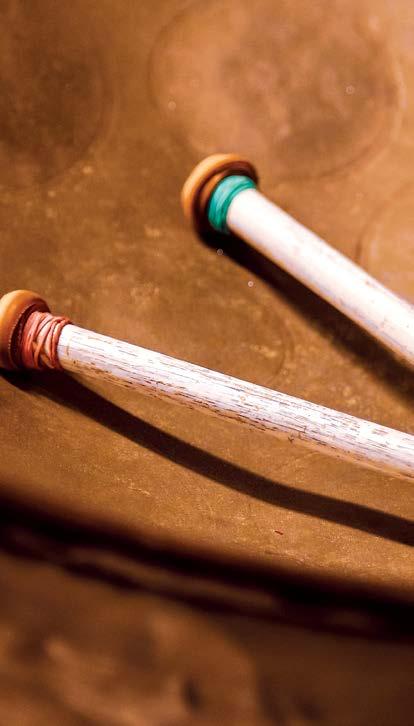
And last, but not least, our citizenship by investment experts kindly share their thoughts and opinions with us.
On behalf of The Citizen team, we would like to thank everyone for their contributions and support. Happy reading!
07 ISSUE 14 • AUGUST 2022
letter editor’s
cont ribu to rs
Dominic Volek
Is Managing Partner of Henley & Partners Singapore and a member of the Executive Committee.
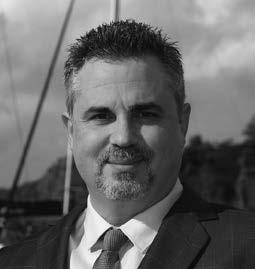
Dominic is responsible for the firm’s operations across South and Southeast Asia. He is a private client specialist in residence and citizenship planning and provides advice to HNWI, their families, and advisors across Asia.
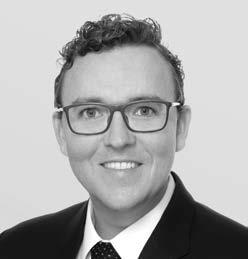
Karen-Mae Hill
Is a classically trained pianist and music enthusiast who believes in making music education and performance opportunities accessible to young people across Antigua & Barbuda. Despite her professional life as Antigua & Barbuda’s High Commissioner to the United Kingdom and Northern Ireland, as well as the non-resident Ambassador to Germany, Estonia and Lithuania, she oversees the development of the Antigua & Barbuda Youth Symphony Orchestra.
Kevin Hosam
Is the Principal and Managing Director at Exclusive Concierge. He has been providing consulting and advisory services in real estate and citizenship by investment for over 15 years. Kevin is also a licensed agent and a frequent contributor, presenter, panellist, and workshop facilitator at immigration and real estate conferences globally.
Ahmad Abbas
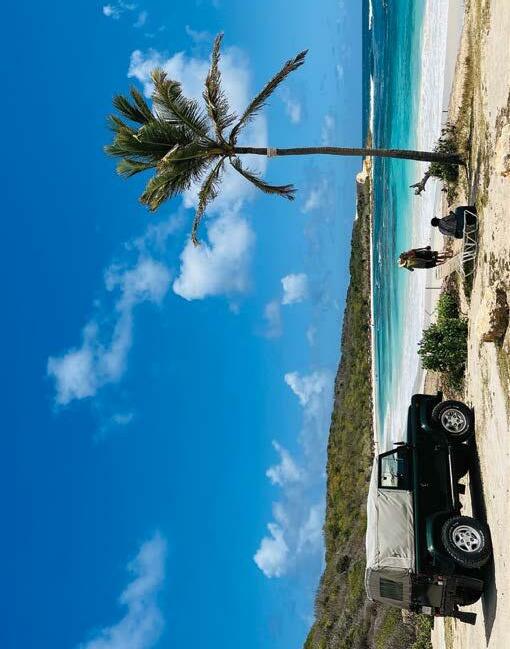

Is the Head of Corporate Services at IMI Daily. His role provides insight into the intricate details of investment migration while working with some of the biggest players in the field. Ahmad spent time in the US, the GCC, and now works in his hometown of Amman helping top RCBI firms elevate their content and marketing to the next level.
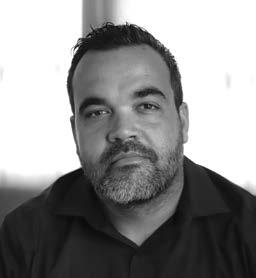
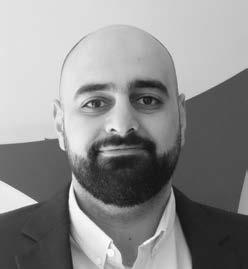
Maria Blackman
Is the founder of Maria Blackman PR, a public relations business that works with travel and tourism brands, emerging small businesses, non-profits, and amazing personalities, helping them create content for their brands to generate publicity and capture the attention of their target audiences.

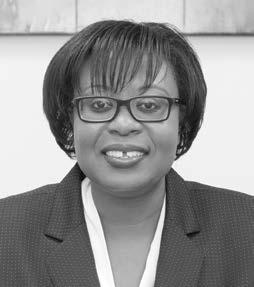
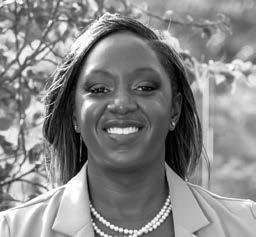
Khan M T Cordice
Is an Antiguan steel pan musician, composer, arranger, art clinician and educator. Khan has attained many accolades in the music world, including solo and large Panorama competitions and performances across the globe. He is currently the Director of Culture of Antigua and an educator at several institutions across the country.
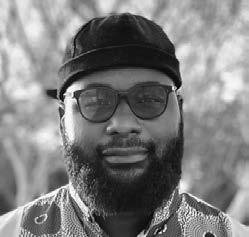
Nuri Katz
Is the founder of Apex Capital Partners, a company specialising in advising international HNWI individuals and governments on citizenship by investment programmes. He is one of the world’s leading investor immigration authorities, having practised his profession for over 30 years. Nuri and his family live in Antigua & Barbuda.
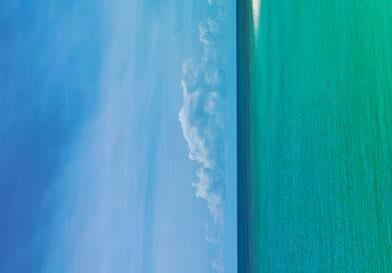
Shanna Challenger
As coordinator of the Offshore Islands Conservation Programme, she works chiefly on endangered species recovery and island restorations within the country’s largest marine reserve. Sparking life-changing moments between people and wildlife is her life’s calling, and she thrives on finding compelling ways to demonstrate the irreplaceable value of the islands’ biodiversity.
By Dominic Volek
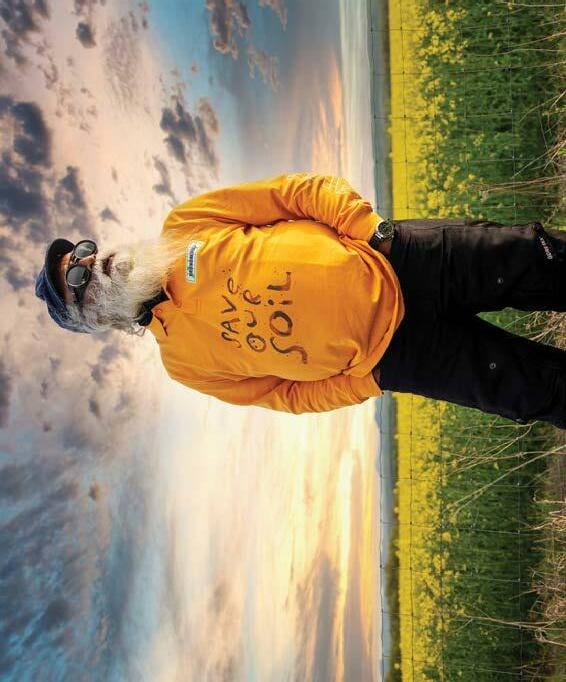
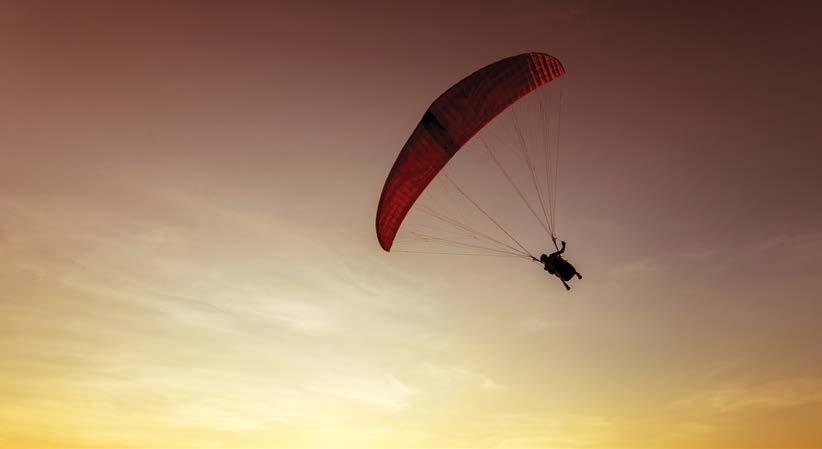
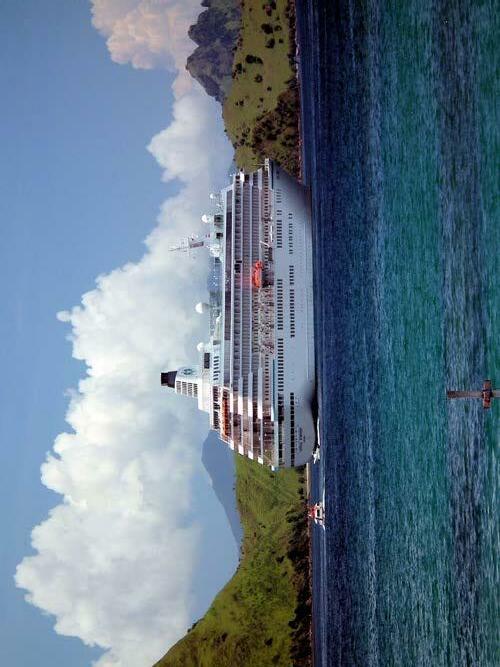
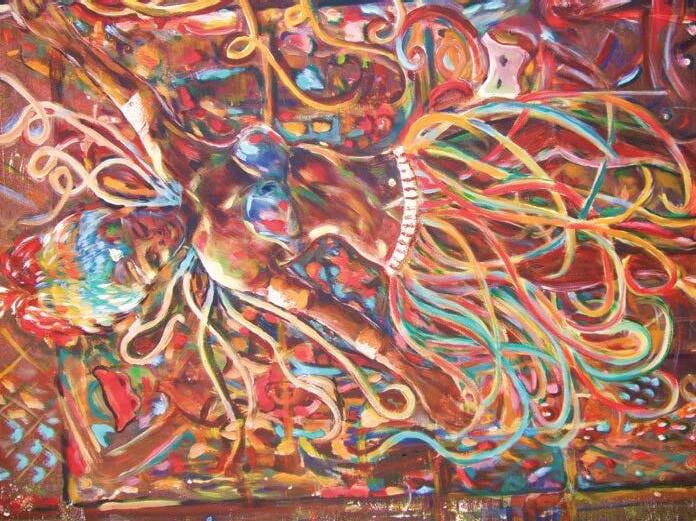
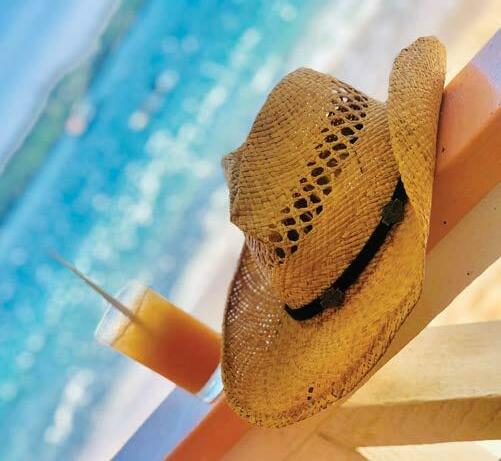
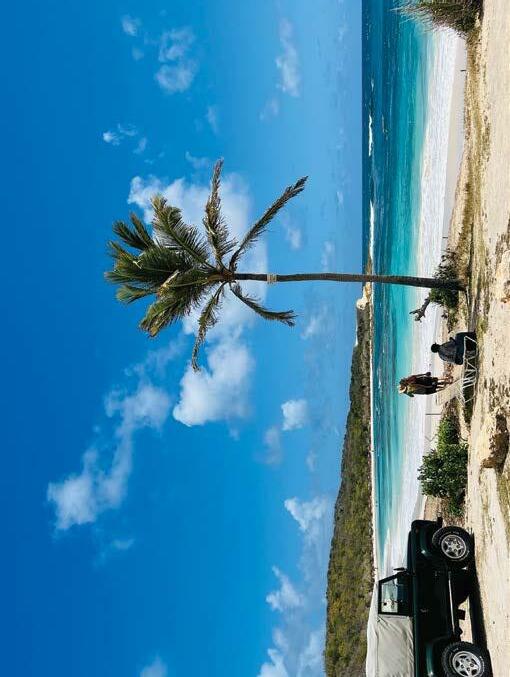

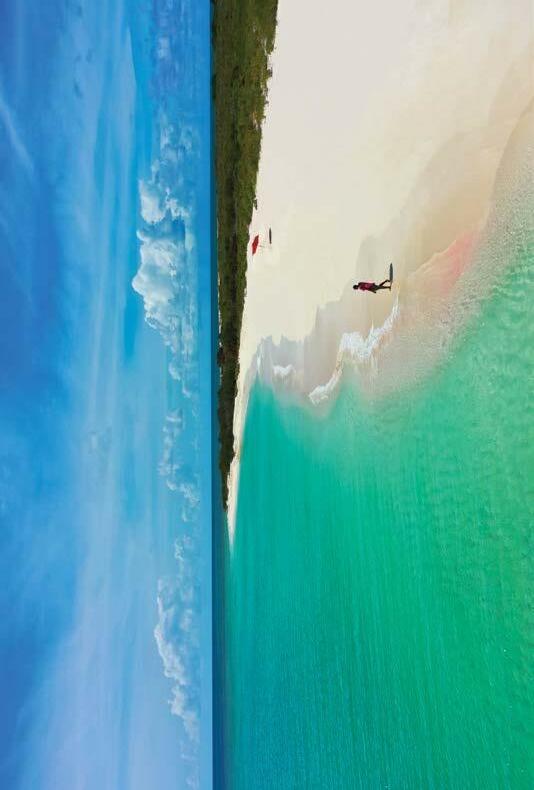
28
OPINION Citizenship diversification, a necessity for global investors in the 21st century
50
58 68
FOCUS
40
INTERVIEW Sadhguru Yogi, mystic and visionary
PHOTOGRAPHY
Through the lens of François Geleyns INTERVIEW Andi Oliver A journey of discovery
COVER STORY Music The heart and soul of the Caribbean thoughtleadershipguestwriters:AhmadAbbas(34) NuriKatz(36)KevinHosam(38)
Antigua & Barbuda
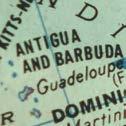
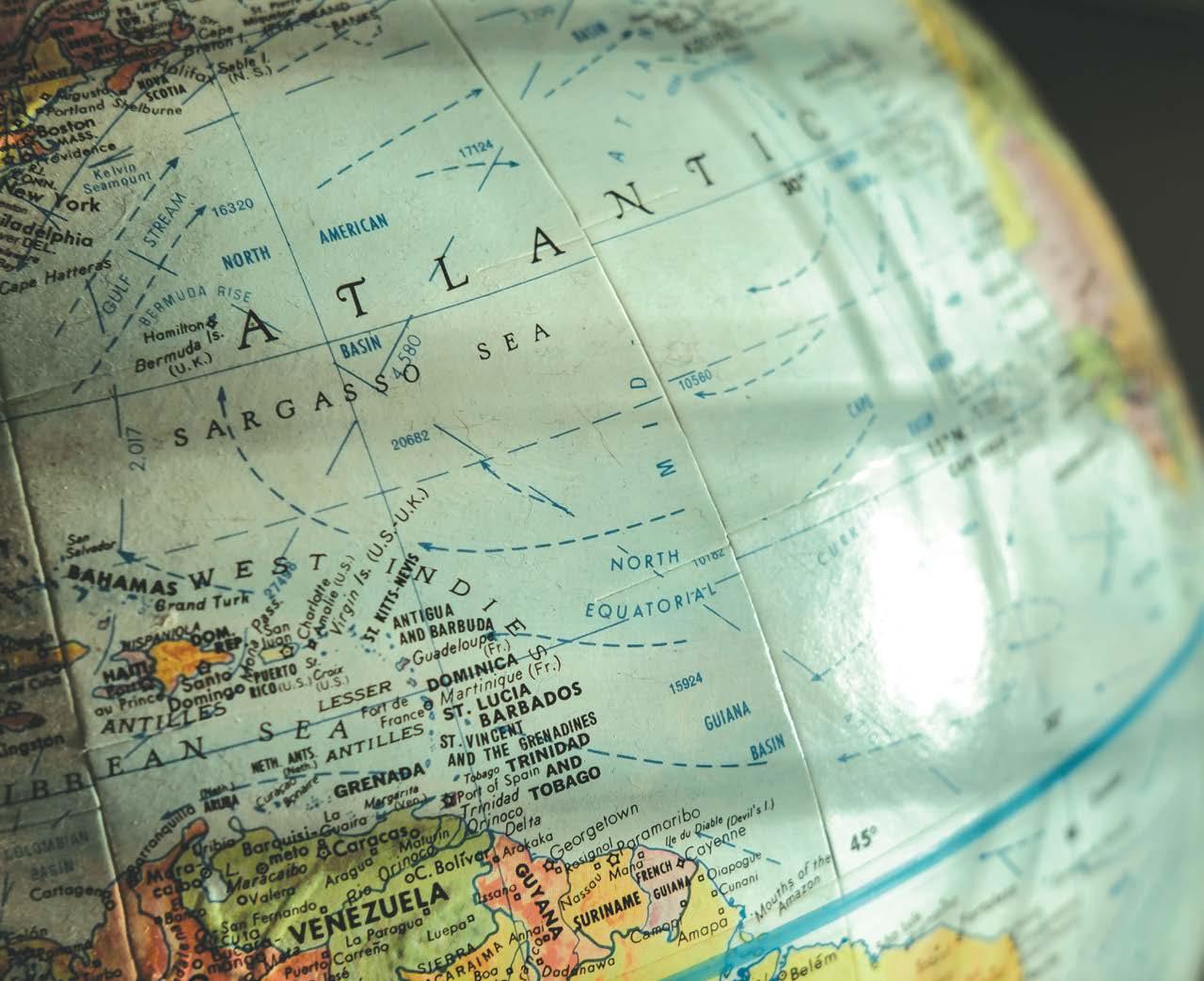
ANTIGUA
BARBUDA BELLE
FRIGATE BIRD SANCTUARY
PALMETTO POINT
MARTELLO TOWER
HILLS
POINT FORT JAMES
SPANISH POINT V.C. BIRD INTERNATIONAL AIRPORT HODGES BAY JUMBY BAY REGENT’S BAY BETTY’S HOPE NONSUCH BAY HALF MOON BAY TAMARIND
PEARNS
ENGLISH HARBOUR
NELSON’S DOCKYARD
HARBOUR
SUGAR RIDGE
JOLLY
SOUTHPOINT
BLUE WATERS
THE CITIZEN 10
CURTAIN
BLUFF BARBUDA
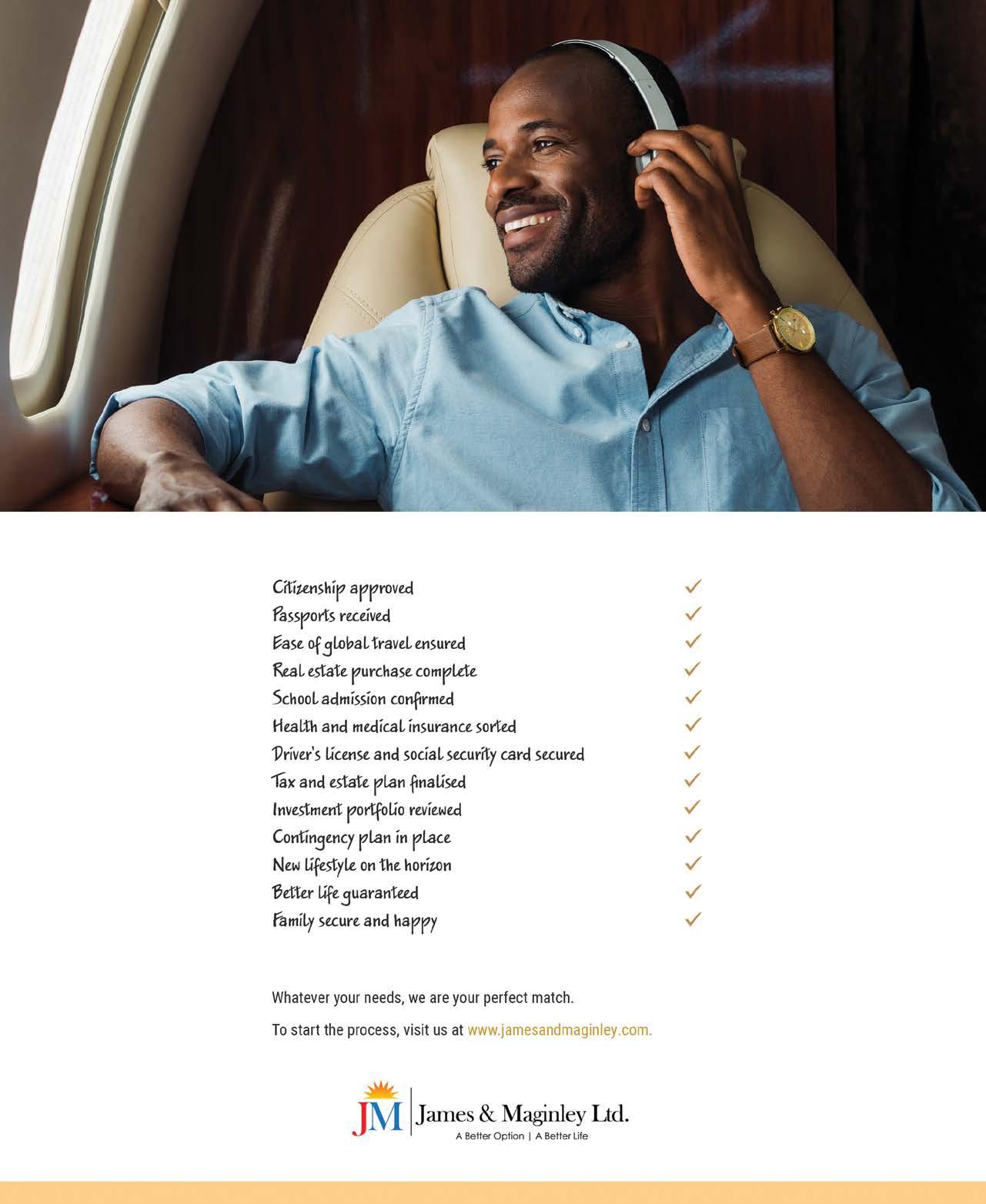
ARE YOU ALL AT SEA?
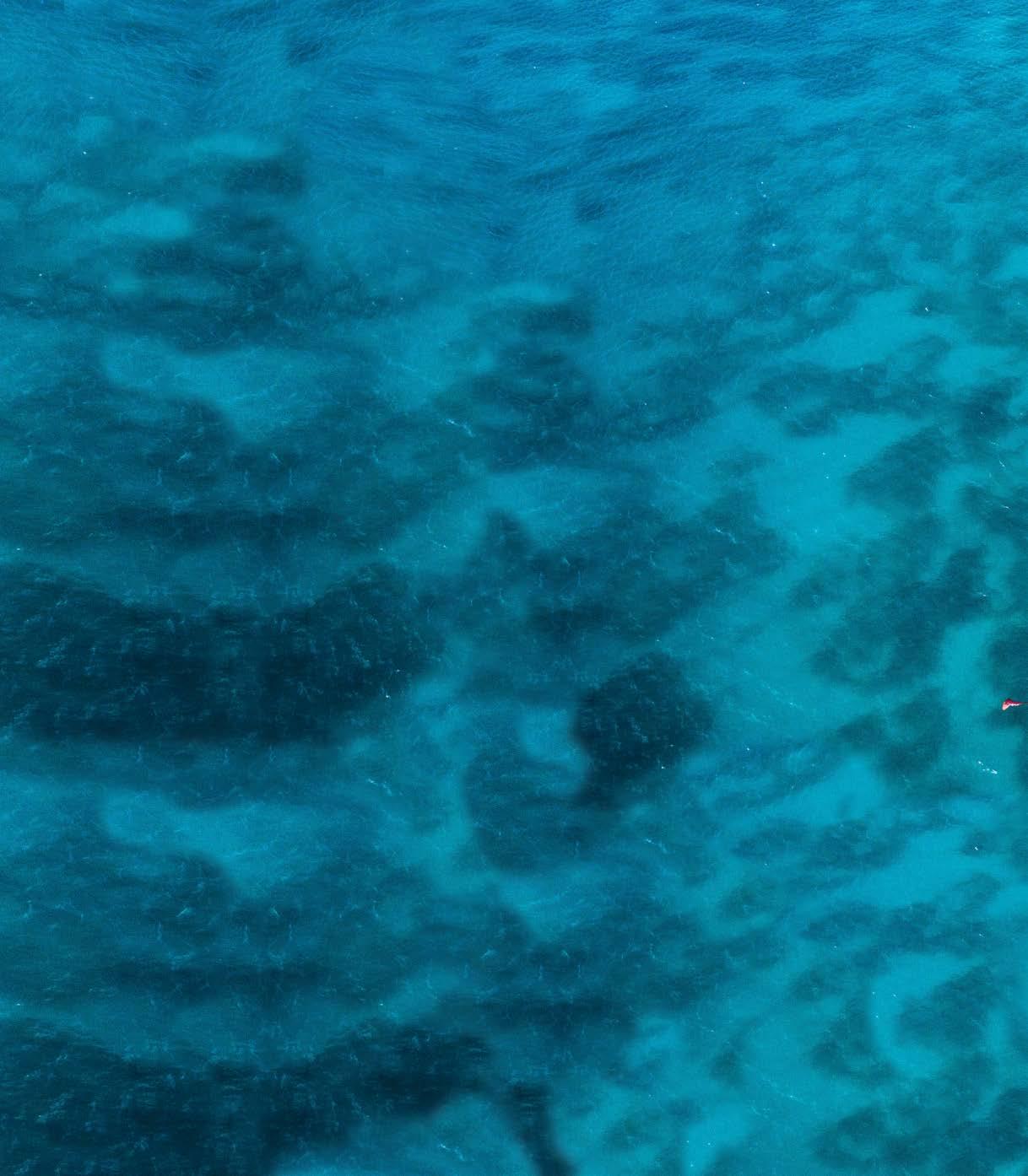
WHAT IS YOUR


Does your plan B let you decide where you live?
Does your plan B allow you to easily access healthcare in another country?
Does your plan B mean that you can travel to a business meeting on the other side of the world at a moment’s notice?
Does your plan B protect your children’s inheritance?
Does your plan B give you wealth management options?
Does your plan B allow you to relocate your family in the event of a national disaster?

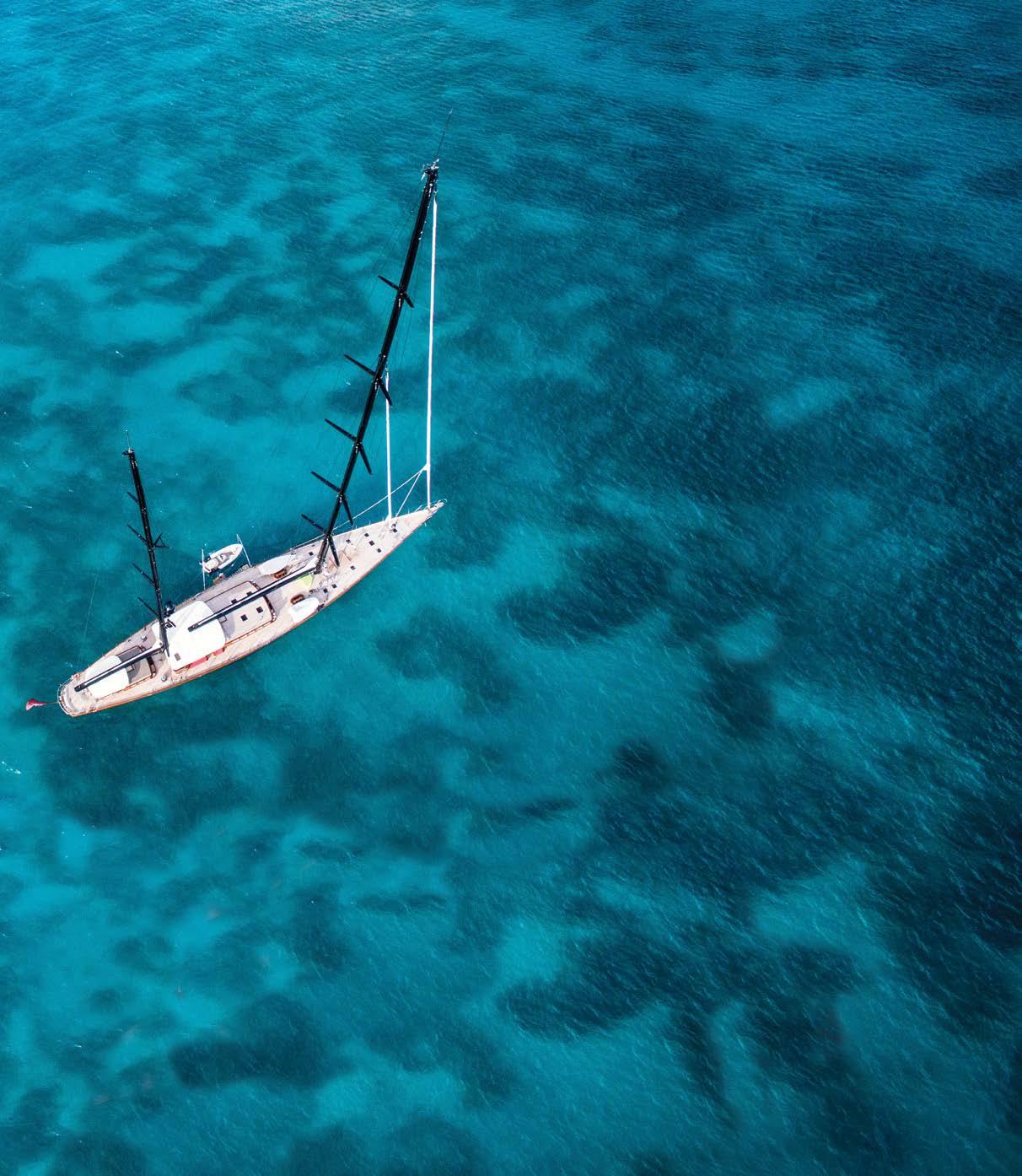
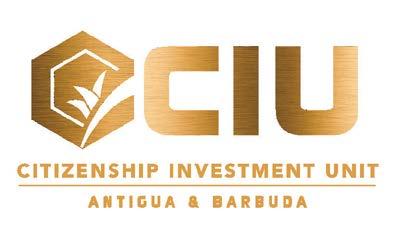
www.cip.gov.ag
DOES YOUR PLAN B include a second citizenship?
ANTIGUA & BARBUDA Citizenship by Investment Programme Frequently Asked Questions
Why does Antigua & Barbuda have a citizenship by investment programme?
The programme was introduced to promote economic growth, attract real estate development, increase foreign direct investment to the country, support the development of infrastructure and provide for a sustainable future.
How many visa-free countries can I travel to as a citizen of Antigua & Barbuda?
You can travel to 165 jurisdictions without requiring a visa, including the EU and Schengen countries, Hong Kong and Singapore.
What is the processing time?
Processing your application should take from 3 to 6 months.
Who can apply for citizenship?
To apply for the citizenship programme in Antigua & Barbuda, you must be at least 18 years of age, be of a good character with no criminal record, and have good health.
Do I need to speak English to apply for citizenship?
You don’t need to speak English to be an applicant.
Who can be included on the application?
Your dependent children under 28 and dependent parents over 58 can be included within the application.
How do you conduct the due diligence and vetting of applicants?
There are no interviews. However, all applicants undergo rigorous screening prior to consideration by the Citizenship by Investment Unit. Complete files will be forwarded to an international, unbiased thirdparty due diligence service provider who will conduct detailed background checks on all applicants before the application is approved.
What happens once my application has been accepted?
by
citizenship investment programme
A certificate of registration of citizenship will be issued and submitted to the passport office. Your authorised agent/representative will forward your passports and Citizenship Certificate to you.
Do I need to travel to Antigua & Barbuda to complete the process?
The application process can be made from your country of residence. Once your application is successful and you have received your passport, you must travel to Antigua & Barbuda to take your oath or affirmation of allegiance. You are entitled to take up full-time residence in Antigua & Barbuda at any time you wish.
Does Antigua & Barbuda recognise dual citizenship?
There are no restrictions on dual citizenship in Antigua & Barbuda.
For how many years will my passport be valid for?
The passport will be valid for a period of 5 years and is renewable for a period of 10 years thereafter, provided that the requirements are met, which includes spending a minimum of five days in the country during this period after becoming a citizen.
Can I invest with my Bitcoins or other cryptocurrencies?
This is in the pipeline but has not yet been established.
In addition to the citizenship by investment programme does Antigua & Barbuda have a tax residency programme?
Antigua & Barbuda does not currently offer a tax residency programme.
For any additional questions, please contact an authorized representative, licensed agent or the CIU directly.
15 ISSUE 14 • AUGUST 2022
16 THE CITIZEN
قيرط نع ادوبرابو اوغيتنأ ةيسنج لىع لوصحلا رماثتسلاا جمانرب تاراقعلا في رماثتسلاا .ادوبرابو اوغيتنأ في راقع ءاشر للاخ نم ةيسنجلا لىع لوصحلا كتسرأو تنأ كنكيم ًلاهؤم نوكت كيلو .رماثتسلاا اذه لضفب راجيلإا تاداريإ نم ةدافتسلاا اضيأ كنكيم ماك ةيراقع ةعومجم في رماثتسلاا كيلع بجي ،رايخلا اذه بجوبم ةيسنجلا لىع لوصحلل كترشم رماثتسا ءارجإ ،كييرمأ رلاود 400.000 نع اهتميق ّلقت لا ايمسر ةدمتعمو ةنيعم لا ام وأ ،ينطباترم (2) ينبلط/ينفرط نم بلط/فرط لكل كييرمأ رلاود 200.000 ةميقب .دمتعم راقع في ةصح/ةدحول كييرمأ رلاود 200.000 نع ّلقي ذئنيح زوجيو .هعيب لبق لقلأا لىع تاونس سمخ ةدلم راقعلا كلاتما كيلع بجيو .ةلهؤم تارماثتساك ينقحلا تابلط يمدقلم مهتصح وأ مهتدحو عيب ةداعإ ينكلمالل .هاندأ حضوم وه ماك ةجلاعلما موسر قيبطت متيسو :لقأ وأ دارفأ 4 نم ةنوكم ةسرأ وأ دحاو بلط مدقلم *ةددحم ةترفل رايخلا رظنا .كييرمأ رلاود 30.000 :ةجلاعلما موسر • :ثركأ وأ دارفأ 5 نم ةنوكم ةسرلأ فياضإ لاعم صخش لكل كييرمأ رلاود 15.000 ،كييرمأ رلاود 45.000 :ةجلاعلما موسر • .صاخشأ 5 لىع يراجتلا رماثتسلاا اوغيتنأ في رماثتسلاا ةئيه عم رواشتلا دعب - رماثتسلاا قيرط نع ةيسنجلا ةدحو موقت ضارغلأ ،ةحترقم وأ ةئماق تناك ءاوس ،ةيراجتلا عيراشلما لىع ةقفاولماب - ادوبرابو .رماثتسلاا قيرط نع ةيسنجلا جمانرب بجوبم ةيراجتلا لماعلأا في رماثتسلاا :يراجتلا رماثتسلال نارايخ كانه .اقبسم ةدمتعم يراجت عوشرم في كييرمأ رلاود 1.500.000 نع لقي لا ام رمثتسا • يراجت عوشرم في كترشم رماثتسا ءارجإ حاترقا لقلأا لىع ينفرطل نكيم ،كلذل ليدبك • رمثتسم لك لىع بجيو .كييرمأ رلاود 5.000.000 نع لقي لا ليماجإ غلببم دمتعم .كترشلما رماثتسلاا في كييرمأ رلاود 400.000 نع لقي لا غلببم ةمهاسلما :لقأ وأ دارفأ 4 نم ةنوكم ةسرأ وأ دحاو بلط مدقلم *ةددحم ةترفل رايخلا .رظنا كييرمأ رلاود 30.000 :ةجلاعلما موسر • :ثركأ وأ دارفأ 5 نم ةنوكم ةسرلأ فياضإ لاعم صخش لكل كييرمأ رلاود 15.000 ،كييرمأ رلاود 45.000 :ةجلاعلما موسر • .صاخشأ 5 لىع 5 نس نود لافطلأل كييرمأ رلاود 10.000 :ينيفاضلإا ينلاعلما صاخشلأل ةجلاعلما موسر 50.000 ،اماع 17و6 ينب مهرماعأ حواترت نيذلا لافطلأل كييرمأ رلاود 20.000 ،ماوعأ اماع 18 مهرماعأ زواجتت نيذلا ينغلابلل كييرمأ رلاود رلاود 50.000 هردق مسر عفدي ،ة/سييئرلا بلطلا ة/مدقلم ة/ليقبتسلما ة/جوزلل ةبسنلاب .بلطلا ميدقت دنع كييرمأ رزجلا ةيسنج لىع لوصحلل ًلاهؤم كلعجتس يتلا تارماثتسلاا نم عاونأ ةعبرأ كانه ةمهاسم ميدقت ينب رايتخلاا كنكيم ،بلطلا ميدقت دنع .ادوبرابو اوغيتنأ ةيسودرفلا في ةيكلم ءاشر وأ ةيبرغلا دنهلا ةعماج قودنص وأ ةيمنتلل ينطولا قودنصلا حلاصل .دمتعم يراجت عوشرم في رماثتسلاا وأ اقبسم ةدمتعلما ةيراقعلا تاعومجلما ىدحإ عتمتت نأو ةيئانج قباوس كيدل نوكي لاأو اماع 18 كرمع زواجتي نأ بجي ،حشرمكو .ةزاتمم ةحصب رفسلاب نوعتمتستسو ةايحلا ىدم ةيسنجلا لىع كتسرأو تنأ لصحتس ،كبلط حاجن دنع .ةيئاضق ةيلاو 165 نم ثركأ لىإ ةيرشأت نودب ةيمنتلل ينطولا قودنصلا حلاصل ةمهاسم ميدقت ماعلا عاطقلا عيراشم ليومتل ،حبرلل فدهي لا يذلا ،ةيمنتلل ينطولا قودنصلا سيسأت مت هتاباسح عجارتو .ةدمتعلما ةييرخلا تارماثتسلااو لماعلأا ةداير في راكتبلااو لخدلل ةردلما ايونس هعضو نع ريراقت شرنتو ايلود اهب فترعم ةبساحم ةكشر لبق نم ماعلا عاطقلا عيراشم ليومتل ،حبرلل فدهي لا يذلا ،ةيمنتلل ينطولا قودنصلا سيسأت مت هتاباسح عجارتو .ةدمتعلما ةييرخلا تارماثتسلااو لماعلأا ةداير في راكتبلااو لخدلل ةردلما .ايونس هعضو نع ريراقت شرنتو ايلود اهب فترعم ةبساحم ةكشر لبق نم اهردق ةمهاسم ميدقت كنم بلطيف ،تارماثتسلاا نم عونلا اذه لىع كرايتخا عقو اذإ ةرم مدقت ةمهاسم نع ةرابع يهو ،ةيمنتلل ينطولا قودنصلل كييرمأ رلاود 100.000 حضوم وه ماك ةجلاعلما موسر قيبطت متيسو .دارفأ ةعبرأ نم ةنوكم ةسرأ لك نع ةدحاو .هاندأ :لقأ وأ دارفأ 4 نم ةنوكم ةسرأ وأ دحاو بلط مدقلم كييرمأ رلاود 100.000 اهردق ةمهاسم • *ةددحم ةترفل رايخلا رظنا .كييرمأ رلاود 30.000 :ةجلاعلما موسر :ثركأ وأ دارفأ 5 نم ةنوكم ةسرلأ كييرمأ رلاود 125.000 اهردق ةمهاسم • فياضإ لاعم صخش لكل كييرمأ رلاود 15.000 ،كييرمأ رلاود 45.000 :ةجلاعلما موسر .صاخشأ 5 لىع :ةيبرغلا دنهلا ةعماج قودنص .ةيبرغلا دنهلا ةعماجل ديدجلا سمخلا رزجلا مرح ليومتل ةيلآك رايخلا اذه لمعي ةنس اهتدم ةيسارد ةحنم لىع ةسرلأا دارفأ دحأ لوصح اضيأ ةمهاسلما هذه لوختسو .ةيبرغلا دنهلا ةعماج في ،طقف ميلعتلا موسر لمشت ،ةدحاو :دارفأ 6 نم ةنوكم ةسرلأ كييرمأ رلاود 150.000 اهردق ةمهاسم . فياضلإا لاعلما صخشلا نم كييرمأ رلاود 15.000 :ةجلاعلما موسر . ادعاصف عباسلا
by citizenship investment programme
17
.رماثتسلاا قيرط نع ةيسنجلا ةدحوب ةشرابم وأ هل صخرم ليكو وأ ضوفم لثمبم لاصتلاا ىجري ،ةلئسلأا نم ديزلم قيرط نع ادوبرابو اوغيتنأ ةيسنج لىع لوصحلا رماثتسلاا جمانرب ةرركتم ةلئسأ ؟رماثتسلاا قيرط نع ةيسنجلا جمانرب ادوبرابو اوغيتنأ كلتم اذالم ةيراقعلا ةيمنتلا باطقتساو يداصتقلاا ومنلا زيزعتل جمانبرلا دماتعا مت ينمأتو ةيتحتلا ةينبلا ريوطت معدو دلابلا في شرابلما يبنجلأا رماثتسلاا ةدايزو .مادتسم لبقتسم اوغيتنأ نطاومك ةيرشأت نود اهيلإ رفسلا يننكيم يتلا نادلبلا ددع مك ؟ادوبرابو في ابم ،ةيرشأت لىإ ةجاحلا نود ةيئاضق ةيلاو 165 نم ثركأ لىإ رفسلا كنكيم .ةروفاغنسو غنوك غنوهو نغنشو بيورولأا داحتلاا نادلب كلذ ؟كبلط ةجلاعم قرغتست تقولا نم مك .رهشأ 6و 3 ينب ام كبلط ةجلاعم قرغتست ؟ةيسنجلا لىع لوصحلل بلطب مدقتلا هنكيم نم كرمع زواجتي نأ بجي ،ادوبرابو اوغيتنأ في ةيسنجلا جمانبرل ًلاهؤم نوكتل عتمتت نأو ةيئانج قباوس كيدل نوكي لاأو قلخلا نسحب مستت نأو اماع 18 .ةديج ةحصب ؟ةيسنجلا لىع لوصحلا بلطل ةيزيلجنلإا ةغللاب ثدحتأ نأ يغبني له .بلطلاب مدقتلل ةيزيلجنلإا ةغللاب ثدحتلا لىإ ةجاحب تسل ؟بلطلا في هجاردإ نكيم نم اماع 28 نع مهرماعأ لقت نيذلا ينلاعلما كلافطأ بلطلا في جردت نأ كنكيم .اماع 58 زواجتي ماهرمع ناك اذإ ينلاعلما كيدلاوو ؟تابلطلا صحفو ةبجاولا ةيانعلا نورجُت فيك قيقد صحفل بلطلاب ينمدقتلما عيمج عضخي ،كلذ عمو .تلاباقم يرجن لا لاحت .رماثتسلاا قيرط نع ةيسنجلا ةدحو لبق نم مهفلم ةسارد لبق ةبجاولا ةيانعلا تامدخ مدقت ةزاحنم يرغ ةيلود ةهج لىإ ةلماكلا تافللما .بلطلاب ينمدقتلما تايفلخ نأشب ةلصفم تايرحت يرجتس يتلاو ؟يبلط لوبق دعب ثدحي اذام .رفسلا تازاوج بتكم لىإ اهيمدقتو ةيسنجلا ليجست ةداهش رادصإ متيس ةيسنجلا ةداهشو رفسلا تازاوج لاسرإب ضوفلما كلثمم/كليكو موقيسو .كيلإ كب ةصاخلا ؟ةيلمعلا لماكلإ ادوبرابو اوغيتنأ لىإ رفاسأ نأ بجي له ،كرفس زاوج كيقلتو كبلط حاجن دعب .كتماقإ دلب نم بلطلا ءارجإ نكيم كل قحيو .ءلاولا ديكأت وأ ينميلا ءادلأ ادوبرابو اوغيتنأ لىإ رفسلا كيلع بجي .ءاشت ىتم ادوبرابو اوغيتنأ في لماك ماودب ةماقلإا ؟ةجودزلما ةيسنجلاب ادوبرابو اوغيتنأ فترعت له .ادوبرابو اوغيتنأ في ةجودزلما ةيسنجلا لىع دويق دجوت لا ؟لوعفلما يراس يرفس زاوج ىقبيس ةنس نم مك ةدلم ديدجتلل لباق وهو تاونس 5 ةدلم لوعفلما يراس كرفس زاوج ىقبيس مايأ ةسمخ ءاضق لمشت يتلا تابلطتلما ةيبلت ةطيشر ،كلذ دعب تاونس10 .ةيسنجلا لىع لوصحلا دعب ةترفلا هذه للاخ دلبلا في لقلأا لىع تلامعلا نم اهيرغ وأ )Bitcoin( نيوكتيب ةلمعب رماثتسلاا يننكيم له ؟ةماعلما .دعب هذيفنت متي لمو دادعلإا ديق لاز ام رملأا اذه ادوبرابو اوغيتنأ ىدل له ،رماثتسلاا قيرط نع ةيسنجلا جمانرب لىإ ةفاضلإاب ؟ةيبيضرلا ةماقلإل جمانرب .ةيبيضرلا ةماقلإل اجمانرب ايلاح ادوبرابو اوغيتنأ مدقت لا ISSUE 14 • AUGUST 2022
by citizenship investment programme
If there’s one thing that 2020 has shown you, it’s that life can be unpredictable. Never has it been more important to have a robust Plan B in place for the unexpected – no matter what life throws at you.
If your Plan B doesn’t already include a second citizenship, perhaps now is the time to think about it to protect those you care about the most.
Investing in the Antigua & Barbuda Citizenship by Investment Programme means that whatever happens in life, you and your family can feel secure with the knowledge that you have options for where to live and where to go. With flexibility for your wealth management needs, no tax on your worldwide income nor inheritance tax, you can rest assured that your family’s best interest is served both now and in the future.

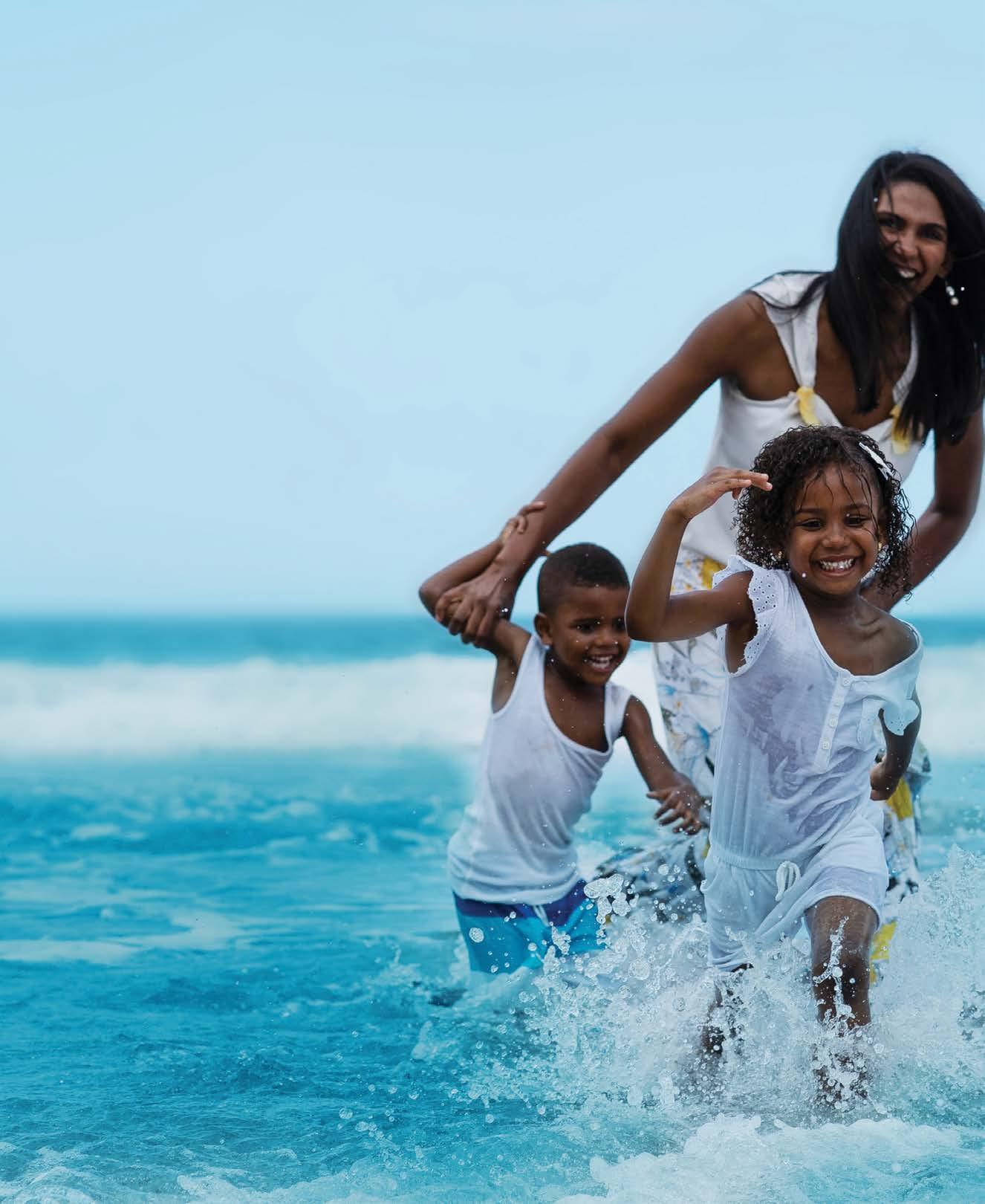
Furthermore, not only is Antigua & Barbuda amongst the fastest-growing economies in the Caribbean region and an international financial centre whose legal system is based on British Common Law, but there are countless investment and business opportunities available in a variety of sectors.
Visa-free access to over 150 countries across the globe allows you to jump on a plane to that business meeting or conference at a moment’s notice. The world is indeed your oyster.
And should you wish to relocate to these safe, peaceful and beautiful twin islands, you will find yourself in a multicultural society with world-class education opportunities, a strong healthcare system and business-friendly environment. The country’s strategic geographic location in the Eastern Caribbean together with regular flights to major business hubs in North America and London means you will always be well connected, whether for business or leisure.
THE IDEAL PLACE FOR YOU AND YOUR FAMILY TO DROP ANCHOR.
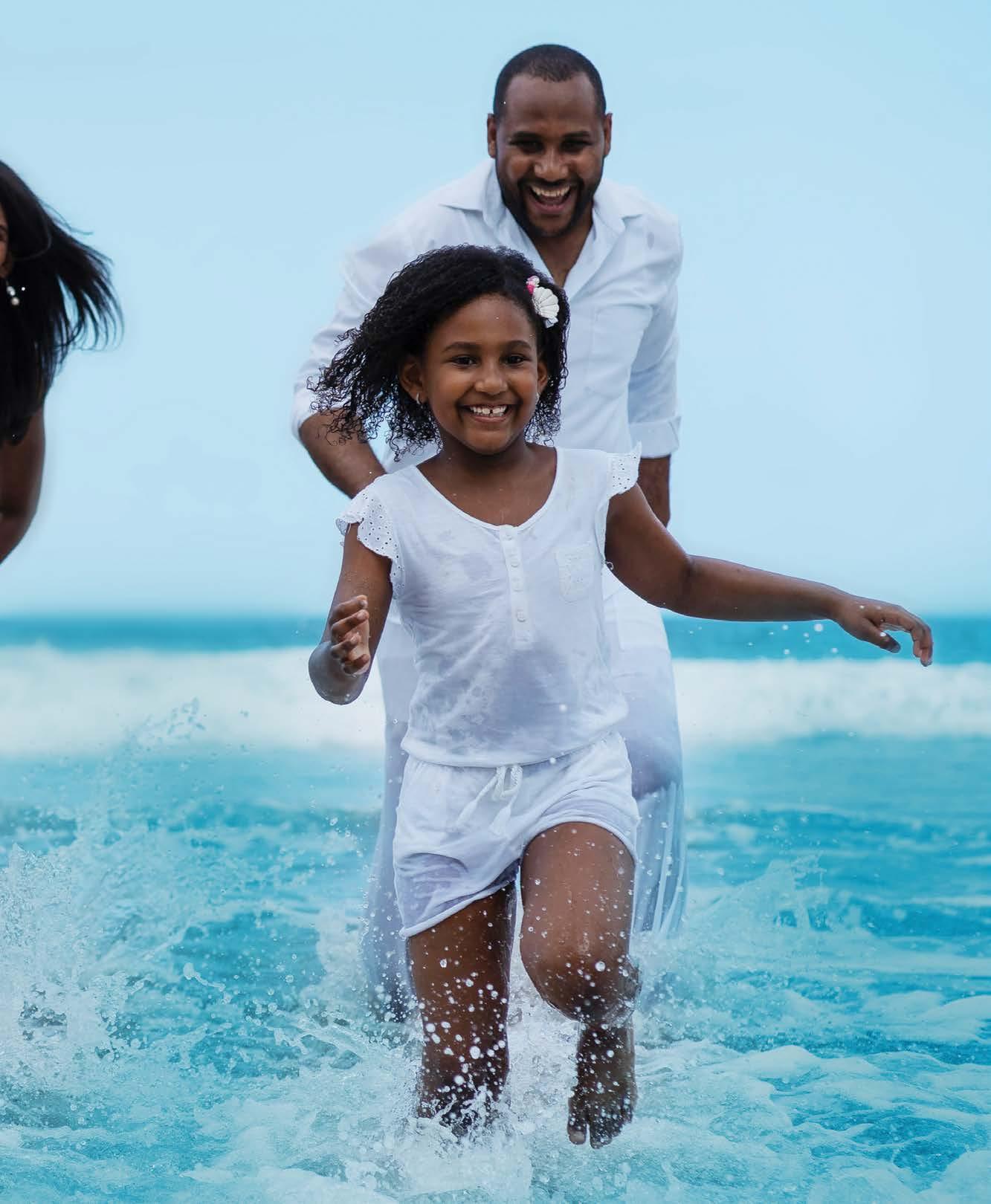

So, is second citizenship of Antigua & Barbuda part of YOUR PLAN B? www.cip.gov.ag | info@cip.gov.ag
by
Существуют четыре вида инвестиций, благодаря которым вы можете стать кандидатом на получение гражданства на райских островах Антигуа и Барбуда. Вы можете выбрать один из вариантов: безвозмездный взнос в государственный фонд экономического развития (NDF) или в фонд Университета Вест-Индии, инвестиции в недвижимость в один из одобренных правительством проектов или инвестиции в бизнес в одно из утвержденных коммерческих предприятий. Заявитель должен быть старше 18 лет, не иметь судимостей и иметь отличное здоровье. При условии одобрения заявления, вы и ваша семья получите пожизненное гражданство и сможете наслаждаться безвизовым въездом в более чем 165 юрисдикционных территорий. БЕЗВОЗВРАТНЫЙ ВЗНОС В ГОСУДАРСТВЕННЫЙ ФОНД ЭКОНОМИЧЕСКОГО РАЗВИТИЯ Некоммерческий фонд NDF был учрежден с целью финансирования предпринимательских государственных проектов, инноваций в предпринимательстве и одобренных благотворительных проектов. Деятельность фонда проверяется международно признанной аудиторской фирмой, ежегодно публикуется доклад о состоянии дел. Если вы выбрали этот вариант инвестиций, то вам предлагается внести в государственный фонд экономического развития NDF сумму в 100 000 долларов США, это единовременный взнос для семьи из четырех человек. Ниже указана сумма сбора за обработку данных. Для одного заявителя или семьи из четырех или менее человек: • Взнос 100 000 долларов США Сбор за обработку данных: 30 000 долларов США. Для семьи из 5 и более человек: • Взнос 125 000 долларов США Сбор за обработку данных: 45 000 долларов США, 15 000 долларов США за каждого дополнительного иждивенца свыше пяти членов семьи. ФОНД УНИВЕРСИТЕТА ВЕСТ-ИНДИИ
(UWI):
из 5 и более человек:
20 THE CITIZEN
Этот вариант инвестиции создан для финансирования кампуса Five Islands Университета Вест-Индии. Это денежное вложение дает право на получение стипендии сроком на один год (только плата за учебу) для одного члена семьи в Университете Вест-Индии. Для семьи из 6 человек: • Взнос 150 000 долларов США • Сбор за обработку данных: 15 000 долларов США за каждого дополнительного иждивенца. ИНВЕСТИЦИИ В НЕДВИЖИМОСТЬ Вы и члены вашей семьи можете получить гражданство купив недвижимость в Антигуа и Барбуда. Выбрав этот вариант АНТИГУА И БАРБУДА гражданство по инвестиционной программе инвестиции,
Для семьи
•
за
долларов
каждого дополнительного иждивенца
citizenship investment programme пяти членов семьи. Сбор за обработку данных для дополнительных иждивенцев: 10 000 долларов США за детей младше 5 лет, 20 000 долларов США за детей от 6-17 лет, 50 000 долларов США за взрослых старше 18 лет. За будущего супруга/супругу основного заявителя сбор в 50 000 долларов США подлежит уплате по заявлению.
вы также сможете получать доходы от аренды. Чтобы стать кандидатом на получение гражданства в случае выбора этого варианта, вы должны вложить в один из официально утвержденных объектов недвижимости не менее 400 000 долларов США, или два (2) ассоциированных лица/кандидата на гражданство могут сделать совместное вложение, минимальная сумма взноса каждого участника составляет 200 000 долларов США, также возможно минимальное вложение в 200 000 долларов США в долю официально утвержденного объекта недвижимости. Вы сможете продать недвижимость не ранее, чем через 5 лет. По истечении этого срока, собственники могут перепродать объекты недвижимости или их доли последующим кандидатам на гражданство, как один из утвержденных вариантов вложений. Ниже указана сумма сбора за обработку данных. Для одного заявителя или семьи из четырех или менее человек: • Сбор за обработку данных: 30 000 долларов США. Для семьи из 5 и более человек: • Сбор за обработку данных: 45 000 долларов США, 15 000 долларов США за каждого дополнительного иждивенца свыше пяти членов семьи. ИНВЕСТИЦИИ В БИЗНЕС Подразделение по вопросам инвестиционного гражданства (CIU) после согласования с Инвестиционным департаментом Антигуа и Барбуды (ABIA) официально одобряет коммерческие предприятия для программы инвестиционного гражданства (CIP). Это может быть как новый, так и уже существующий бизнес. Существуют два варианта инвестиций в бизнес: • Инвестировать как минимум 1 500 000 долларов США в одобренный бизнес. • Другой вариант - это инвестировать в бизнес нескольким заявителям, общая сумма вложений должна быть не менее 5 000 000 долларов США. При этом каждый заявитель обязан вложить в общий проект не менее 400 000 долларов США. Для одного заявителя или семьи из четырех или менее человек: • Сбор за обработку данных: 30 000 долларов США.
Сбор
обработку данных: 45 000 долларов США, 15 000
США за
свыше
Часто задаваемые вопросы
Почему в Антигуа и Барбуда существует гражданство по инвестиционной программе? Программа была создана для содействия экономическому росту, развитию рынка недвижимости, увеличения объемов прямых иностранных инвестиций в страну, поддержки развития инфраструктур и обеспечения надежного будущего.
Сколько стран я смогу посещать без визы как гражданин Антигуа и Барбуда?
Вы сможете посещать без визы более 165 стран, включая страны Евросоюза и Шенгенского соглашения, Гонконг и Сингапур.
Сколько составляет срок рассмотрения заявления? Срок рассмотрения заявления может занять от 3 до 6 месяцев.
Кто может претендовать на получение гражданства? Для того, чтобы претендовать на получение гражданства Антигуа и Барбуда вы должны быть старше 18 лет , иметь хорошую репутацию, не иметь судимостей и обладать хорошим состоянием здоровья. Должен ли я владеть английским языком, чтобы претендовать на получение гражданства? Для того, чтобы претендовать на получение гражданства вы не обязаны владеть английским языком. Кто может быть включен в заявление? В заявление могут быть включены финансово зависимые дети до 28 лет и находящиеся на иждивении родители старше 58 лет.
by
citizenship investment programme
благонадежность, которая проводит тщательную проверку личных данных всех заявителей.
Что происходит после того, как мое заявление получает одобрение? Выдается справка о регистрации гражданства, которая передается в паспортную службу. Затем ваш уполномоченный агент / представитель отправляет вам ваши паспорта и свидетельство о гражданстве.
Для окончательного оформления дела мне необходимо лично приезжать в Антигуа и Барбуда? Подача документов возможна из страны вашего проживания. После успешного разрешения вашего дела и получения паспорта, вы должны приехать в Антигуа и Барбуда, чтобы принять присягу или подтвердить подданство. Вы имеете право установить место постоянного проживания в Антигуа и Барбуда в любое время по вашему желанию. Признает ли Антигуа и Барбуда двойное гражданство? В Антигуа и Барбуда нет ограничений для двойного гражданства. Сколько лет будет действителен мой паспорт? Паспорт действителен 5 лет и он продлевается на 10 лет, при выполнении всех требований, таких как минимальный срок пребывания в стране после получения гражданства –пять дней. Могу я инвестировать в Биткойнах или других
21
криптовалютах? Пока этот вопрос находится в работе, но пока ещё не разрешен. В дополнение к программе инвестиционного гражданства существует в Антигуа и Барбуда программа налогового резиденства? В данный момент в Антигуа и Барбуда не существует программы налогового резиденства. АНТИГУА И БАРБУДА гражданство по инвестиционной программе
проводите проверку
строгую проверку Подразделением по вопросам инвестиционного гражданства. Полностью укомплектованное дело передается
ISSUE 14 • AUGUST 2022
Как вы
на благонадежность заявителей? Личные собеседования не проводятся. Однако, все заявители проходят
в международную, объективную, независимую службу проверки на Если у вас возникли любые другие вопросы, пожалуйста, свяжитесь с уполномоченным представителем, лицензированным агентом или напрямую с Подразделением по вопросам инвестиционного гражданства.
申请成功后,您和您的家人会获得终身公民身份,并享有在超 过165个国家旅行免签的优势。
向国家发展基金捐款 非盈利性质的国家发展基金的成立是为了为创收公共部门项 目、创业创新和经批准的慈善投资提供资金。它由一家国际公 认的会计师事务所审计,并且每年都会公布其财务状况报告。
如果这是您的投资选择,您需要向国家发展基金捐款十万美 金,这是四口之家一次性的捐款数额.办理费用如下所示。
适用于单个申请人,家庭成员四人及以下:
• 十万美金捐款
办理费用: 三万美金 请查阅限期价格*。
适用于家庭成员五人及以上: • 十二万五千美金 办理费用:四万五千美元,五人之外每增加一人需多缴一万五 千美元。
适用于家庭成员五人及以上: • 办理费用:四万五千美元,五人之外每增加一人需多缴一万 五千美元。
商业投资 在与安提瓜和巴布达投资局(ABIA)协商后,投资公民部门 (CIU)批准现有或提议的商业项目,以便外国人在投资公民计 划(CIP)下投资。
有两个商业投资选项: • 投资至少一百五十万美元给一项预先批准的商业活动。
• 或者,至少有两个申请人可以提议对经批准的企业进行联合 投资,总投资至少为五百万美元。每个投资者至少支付四十 万美金。
22 THE CITIZEN 通过投资项目获取安提瓜和 巴布达公民身份
citizenship investment programme by 产项目中每人至少投资二十万美元购买一个单元/份额。 在出售房产前,您需要拥有它至少五年。在此期间,业主可以 向后续的申请者转售房产单元或份额,作为后者的投资房产。 办理费用如下所示。 适用于单个申请人,家庭成员四人及以下: • 办理费用: 三万美金请查阅限期价格*。
适用于单个申请人,家庭成员四人及以下: • 办理费用: 三万美金请查阅限期价格*。 适用于家庭成员五人及以上: • 办理费用:四万五千美元,五人之外每增加一人需多缴一万 五千美元。 每增加一人的办理费用:5岁以下的孩子一万美元,6-17岁的 孩子两万美元,18岁上成人五万美元。 主申请人的未来配偶申请费为五万美元,需在申请时支付。 有下列四种投资方式,可以让您有资格获得天堂般的安提瓜和 巴布达岛国的公民身份。作为申请人,您可以选择向国家发展 基金(NDF)捐款,向西印度群岛大学基金会捐款,在预先批准的 房地产开发项目中购买房产,或投资于经批准的商业企业。 作 为候选人,您必须年龄超过18岁,无犯罪记录,身体健康。
奖学金,即免除在西印度群岛大学一年的学费。 对于六口之家: • 十五万美金捐款 第七位起: • 办理费用:每个增加成员需缴一万五千美金。 房地产投资 您和您的家人可以通过在安提瓜和巴布达购买房产来获得公 民身份。您也可以通过此投资从租金收入中受益。为通过此项 投资获得公民身份,您需要投资一个指定的,经官方批准的价 值至少为四十万美元的房地产开发项目,可两(2)个关联方或 申请人共同投资,每人投资至少二十万美元,或在被批准的房
西印度群岛大学(UWI)基金会: 这一投资选项用于为西印度群岛大学的五岛新校区提供融 资。这一捐款将使捐款家庭的一员可以获得一项为期一年的
旅行?
您可以去往超过165个司法管辖区,包括欧盟和申根 国家,香港和新加坡。
处理时间有多长?
处理您的申请通常需要三至六个月。
谁可以申请公民身份? 申请安提瓜和巴布达的公民身份,您至少需要18周岁, 无犯罪记录并且身体健康。
申请公民身份需要我会说英语吗? 申请人不需要会讲英语。
谁可以被包括在申请中? 您抚养的年龄小于28岁的孩子和赡养的超过58岁的 老人可以被包括在申请中。
by
citizenship investment programme
安提瓜和巴布达承认双重国籍吗? 安提瓜和巴布达对于双重国籍没有限制。
我的护照有效期为几年? 护照有效期五年,此后可续期10年,续期的前提是符合 要求,包括在成为公民后在护照有效期间在该国度过 至少5天。
我可以用我的比特币或其他虚拟货币投资吗?
23
我的申请被接受后会发生什么? 将颁发公民身份登记证书并提交给护照办公室。您 的授权代理人/代表将转发您的护照和公民身份证明 给您。 我需要亲自到安提瓜和巴布达来完成手续吗? 申请环节可以在您的居住国完成。一旦您的申请成功 并收到护照,您需要亲自到安提瓜和巴布达来宣誓或 承认效忠。您随时可以定居在安提瓜和巴布达。
为什么安提瓜和巴布达推行通过投资获得公民身份 项目? 这个项目旨在增进经济发展,促进房地产开发,增加外
这还在筹备中,但尚未实行。 除了投资计划获取公民身份外,安提瓜和巴布达还有 税务定居计划吗? 安提瓜和巴布达目前不提供税务定居计划。
国对本国的直接投资,支持基础设施建设并提供可持 续发展。 作为安提瓜和巴布达公民,我可以免签到多少个国家
如何进行尽职调查和审查申请人? 没有面试环节。但是,所有申请人在获得公民身份前 都要经过公民投资部门严格的筛选。完整的文件将转 发给国际上公正的第三方尽职调查服务提供商,该服 务提供商将对所有申请人进行详细的背景调查。 如有任何其他问题,请联系授权代表,许可代理或直接联系投资公民部门(CIU)。 通过投资项目获得安提瓜和巴 布达的公民身份 问&答 ISSUE 14 • AUGUST 2022
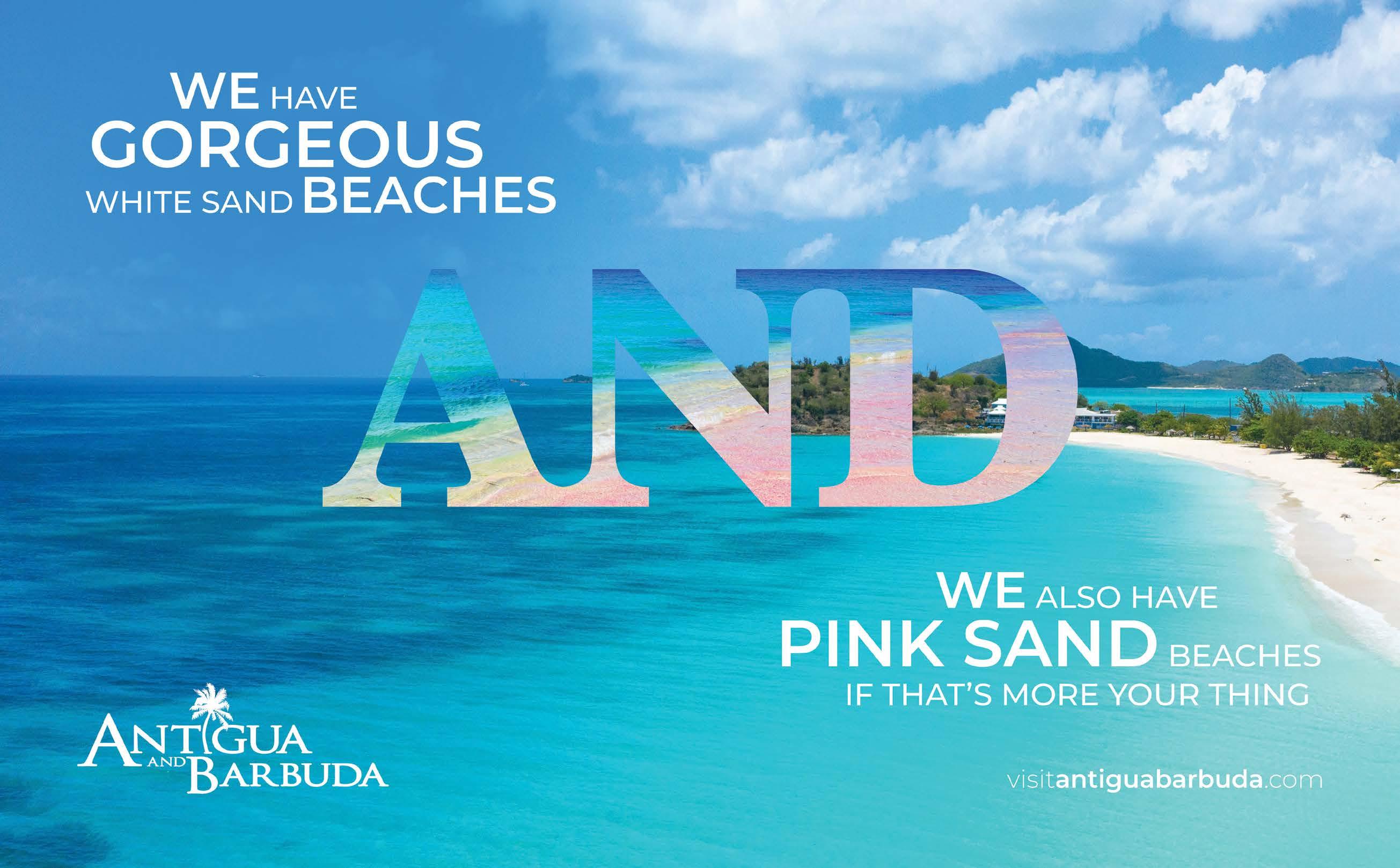

licensed agents
• Eugene Abbott: eabbott@abifinancialgroup.com ABI Financial Group: www.abifinancialgroup.com
• McAlister Abbott: mabbott@gcpantigua.com Global Citizenship Partners: www.gcpantigua.com
• Leslie-Ann Brissett George: leslieann@lbrissettlegal.com Leslie-Ann Brissett Legal Services: www.lbrissettlegal.com
• Sharon Cort-Thibou: legal@cortandcort.com Turnkey Antigua: www.turnkeyantigua.com
• Verlyn L. Faustin: verlyn.faustin@civesmundiinc.com Cives Mundi Inc
• Hollis E. Francis Jr.: info@heflawantigua.com HEF LAW: www.heflawantigua.com
• Thomas Francis: tfrancis0483@gmail.com Caribbean Concierge
• T.M. Rufus Gobat: rufus@cariblife.ag Caribbean Lifestyle Services: www.cariblife.ag
• Nigel Gore: nigel@blueprint-development.com Blueprint Development: www.blueprint-development.com
• Jason Hadeed: jason@gambitantigua.com Gambit Management Ltd: www.gambitantigua.com
• Gaye Hechme: ghechme@ilis.ag Island Living Investment Services Ltd: www.ilis.ag
• Julia Herbert: citizenshipsolutions@icloud.com
• Marian-Barbara Hesse: hesse@bhesseandassociates.com B. Hesse & Associates: www.bhesseandassociates.com
• Radford Hill: r.hill@lawhillandhill.com Hill & Hill Chambers: www.lawhillandhill.com
• Alan Hosam: hosama@candw.ag AH Consultancy Services Ltd
• Kevin Hosam: khosam@conciergeantiguabarbuda.com Exclusive Concierge Antigua Barbuda: www.conciergeantiguabarbuda.com
• Kelvin John: johnk@candw.ag Thomas, John & Co: www.thomasjohn.com
• Nuri Katz: nkatz@apexcap.org Apex Capital Partners: www.apexcapital.partners
• Stuart Lockhart: clerks@lockhartlegalchambers.com Stuart Lockhart Legal Services: www.lockhartlegalchambers.com
• Abire Mansoor: amansoor@citizensinternational.com Citizens International: www.citizensinternational.com
• Kirthley Maginley: kmaginley@jamesandmaginley.com James & Maginley Ltd: www.jamesandmaginley.com
• Elizabeth Makhoul: emakhoul@artoncapital.com Arton Capital: www.artoncapital.com
• Maya Mansoor-Khouly: cip@khouly.com Atlantik Realty: www.khouly.com
• Juliette Marcelle-Bailey: jbailey@jamesandmaginley.com James & Maginley Ltd: www.jamesandmaginley.com
• Andrea Roberts-Nicholas: andrea.roberts@robertscolaw.com Roberts & Co: www.robertscolaw.com
• Vanetta Rodgers: vcrodgers@avcocorp.com Avco Corporate Services Ltd: www.avcocorp.com
• Jermaine C. Rhudd: jermaine@rhuddlawfirm.com
• Mei Tang: rmeitang@gcpantigua.com Global Citizenship Partners: www.gcpantigua.com
• Romell Tiwari: rtiwariantigualocalagent@usa.net AIT Management Services Ltd: www.aitms.ag
• Arthur Thomas: thomasa@candw.ag Thomas, John & Co: www.thomasjohn.com
• Joseph Warner: info@jdwconsultingantigua.com JDW Consulting Ltd: www.jdwconsultingantigua.com
• Kem Warner: kwarner@kawmanagement.com KAW Management Services Ltd: www.kawmanagement.com
• Robert Wilkinson: robert.wilkinson@ag.gt.com Grant Thornton: www.grantthornton.ag
• Stanley Yang: stanleyyang1993@gmail.com
26 THE CITIZEN
When making a serious decision, you need a serious team.
We are trusted real estate consultants in Antigua & Barbuda, specialised in finding the best property for you, whether you are looking for a second home, a high-return investment rental property, a commercial property, local market advisory or representation.
And, as proven citizenship by investment agents we are the perfect one-stop-shop for all your needs.

Trust us for your peace of mind. www.jamesandmaginley.com

opinion
by Dominic Volek Group Head of Private Clients at Henley & Partners
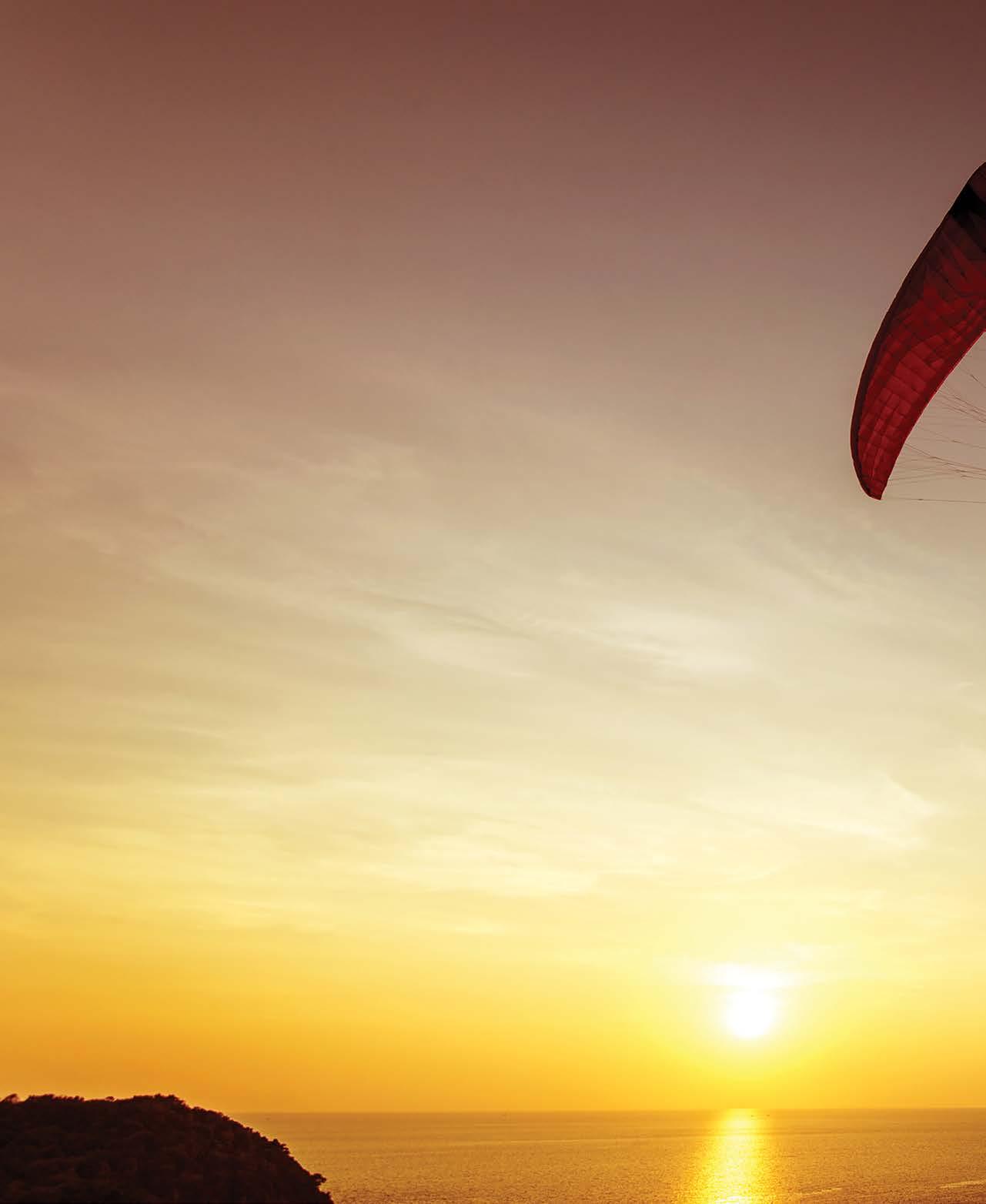
DIVERSIFICATION A Necessity for Global Investors in the 21st Century
CITIZENSHIP

29 ISSUE 14 • AUGUST 2022
Wealthy individuals from across the world are exploring the most suitable investment migration solutions to alleviate the manifold risks that threaten their capital and lifestyles. They seek to protect themselves and their families from the insecurity that political and economic instability generates by having the optionality to live, work, and do business in an array of alternative jurisdictions. Although historically, citizenship by investment programmes were considered an add-on for globally-minded investors and entrepreneurs, today, faced with so many ever-fluxing triggers on the global stage, this asset class is now deemed a necessity.
VOLATILITY IS MAKING OPTIONALITY A PRIZE POSSESSION
There has been a transformation in every layer of our societal fabric instigated by the lengthy pandemic, geopolitical power struggles, and, most importantly, people’s shifting priorities. Historically, affluent individuals would invest in alternative residence and citizenship programmes to obtain greater global mobility, ensure ease of travel, and access a better quality of life. While these remain valid motivations, they are no longer the key drivers behind the surge in demand for investment migration programmes that advisory firms such as Henley & Partners have experienced. People want to surpass the confinements of remaining in the countries of their birth, and those who have the financial ability to do so see the importance of having more than one residence or citizenship. Humanity’s shared experience of lockdowns and global mobility restrictions has created a paradigm shift in society. It has fuelled an appetite for optionality, the right to choose where to reside or invest. This is no longer the exclusive premise of ultra-high-net-worth individuals but rather a necessity for entrepreneurs, senior executives, and investors who want to safeguard their families, their assets, and their right to travel should a future crisis arise.
RISK MANAGEMENT AND INVESTMENTS

Many governments have responded to the pandemic fallout by proposing new wealth taxes, increased capital gains dues, and higher corporate taxes, such as the OECD’s global minimum corporate tax. This is encouraging a growing number of affluent individuals and successful entrepreneurs to apply for citizenship by investment programmes in alternative jurisdictions that offer more favourable fiscal frameworks. Antigua & Barbuda’s attractive tax regime is a major drawcard for global investors, as the dual-island nation does not impose any income tax on citizens, whether from local or worldwide income and regardless of whether they are non-resident citizens or tax residents (who spend 183 days per year in Antigua & Barbuda).
IN THIS ERA OF VOLATILITY, HAVING ANTIGUA & BARBUDA CITIZENSHIP IN ONE’S PORTFOLIO IS MUCH MORE THAN A VALUABLE ADDITIONAL ASSET CLASS; IT IS A SAFETY NET AGAINST THE MYRIAD OF THREATS ON THE GLOBAL STAGE AND FUTUREPROOFS YOUR WEALTH AND LEGACY FOR FUTURE GENERATIONS.
Citizens are also exempt from capital gains, wealth, inheritance, and withholding taxes.
Diversification is a time-old strategy used in finance to manage risk, with theoretical tenets that lie in combining a variety of asset classes to reduce risk and deliver long-term yields. By investing in one or more residence or citizenship by investment programmes, particularly real-estate-associated programmes such as Antigua & Barbuda’s, which ranks 11th in Henley & Partners’ Best Investment Migration Real Estate Index, high-net-worth individuals can enjoy the fruits of their diversification strategies. Not only do they get to capitalise on the yields that their real estate investment delivers, but they also build a portfolio of complementary domiciles. This
W
30 THE CITIZEN
mitigates the risks of political conflicts, fiscal policy changes, and mandates that limit their freedoms and economic exposure.
UNPRECEDENTED MILLIONAIRE MIGRATION
Until the pandemic-related border closures were implemented, there had been a surge in the movement of high-net-worth individuals globally. Migration data collected since 2013 has been charted across all key wealth hubs, and those who opted to move to an alternative jurisdiction of their choice for six or more months have been considered in the data for the Henley Private Wealth Migration Dashboard. Based on the analysis, between 2015 and 2019, the number of millionaires who migrated had almost doubled from 64 million to 110 million before crashing to a mere 12 million in 2020 when borders curtailed movement.
As we settle into the yet-to-be-revealed post-C19 reality, it is forecast that by 2023 over 125 million wealthy migrants with the option to live in an alternative country will make the move. It is anticipated that this will further boost the demand for alternative residences and citizenships from affluent individuals in Russia, China, India, Hong Kong (SAR China), Ukraine, Brazil, and the UK, among others.
THE LURE OF ALTERNATIVE CITIZENSHIP IN THE CARIBBEAN
RCBI firms have been experiencing a growing number of enquiries from across the world, including burgeoning demand from American, British, and Middle Eastern clients interested in obtaining alternative citizenship in Antigua & Barbuda, St Lucia, and St Kitts & Nevis.

In 2022, data from Henley & Partners revealed that the Antigua & Barbuda Citizenship by Investment Programme is the third most popular citizenship programme regarding sales and the second in terms of enquiries. Antigua & Barbuda, in particular, is earmarked as offering one of the region’s most coveted alternative citizenships, requiring an affordable US$200,000 investment in an approved property in paradise. Other qualifying options include a contribution of US$100,000 to the National Development Fund or US$150,000 to the University of West Indies, both of which are nonrefundable. Subject to meeting all requirements, it can take between three to four months for applicants to complete the application process and obtain their citizenship.
Antigua & Barbuda’s citizenship by investment framework allows wealthy individuals the option to relocate to a secure country that offers a high quality of life, a robust healthcare system, a stable sociopolitical environment, and visa-free or visa-on-arrival access to over 150 destinations globally, including Europe’s Schengen Area, Singapore, and the UK. Being a member of the Commonwealth, Antigua & Barbuda’s citizens are also granted additional privileges in the UK, a bonus which has become more imperative post-Brexit.
The Antigua & Barbuda Citizenship by Investment Programme has been fruitful in generating sovereign equity for the dual-island nation as the foreign investment raised has cushioned the effect that natural, epidemiological, and economic disasters have had on the country. Programme revenue brought in US$115.7 million in 2020 compared with US$98.9 million in 2019 and US$59.7 million in 2018 - a remarkable result despite a 22 percent drop in applications owing to C19. The Hon Gaston Browne, Prime Minister of Antigua & Barbuda, stated, “The significant damage to our economy by the global effects of C19 underscored the importance and benefits of the citizenship by investment programme. As tax revenues fell rapidly and swiftly, it was - and continues to be - that the citizenship by investment programme has helped to sustain our economy.” Programme inflows are responsible for substantial investments in the construction sector that have boosted the tourism and leisure industry. Furthermore, investment migration has been a major driver in the country’s transition to renewable energy, with thousands of solar panels successfully installed on government buildings and land throughout Antigua to produce electricity; a significant part paid for by the citizenship by investment programme.
In this era of volatility, having Antigua & Barbuda citizenship in one’s portfolio is much more than a valuable additional asset class; it is a safety net against the myriad of threats on the global stage and futureproofs your wealth and legacy for future generations.
31 ISSUE 14 • AUGUST 2022
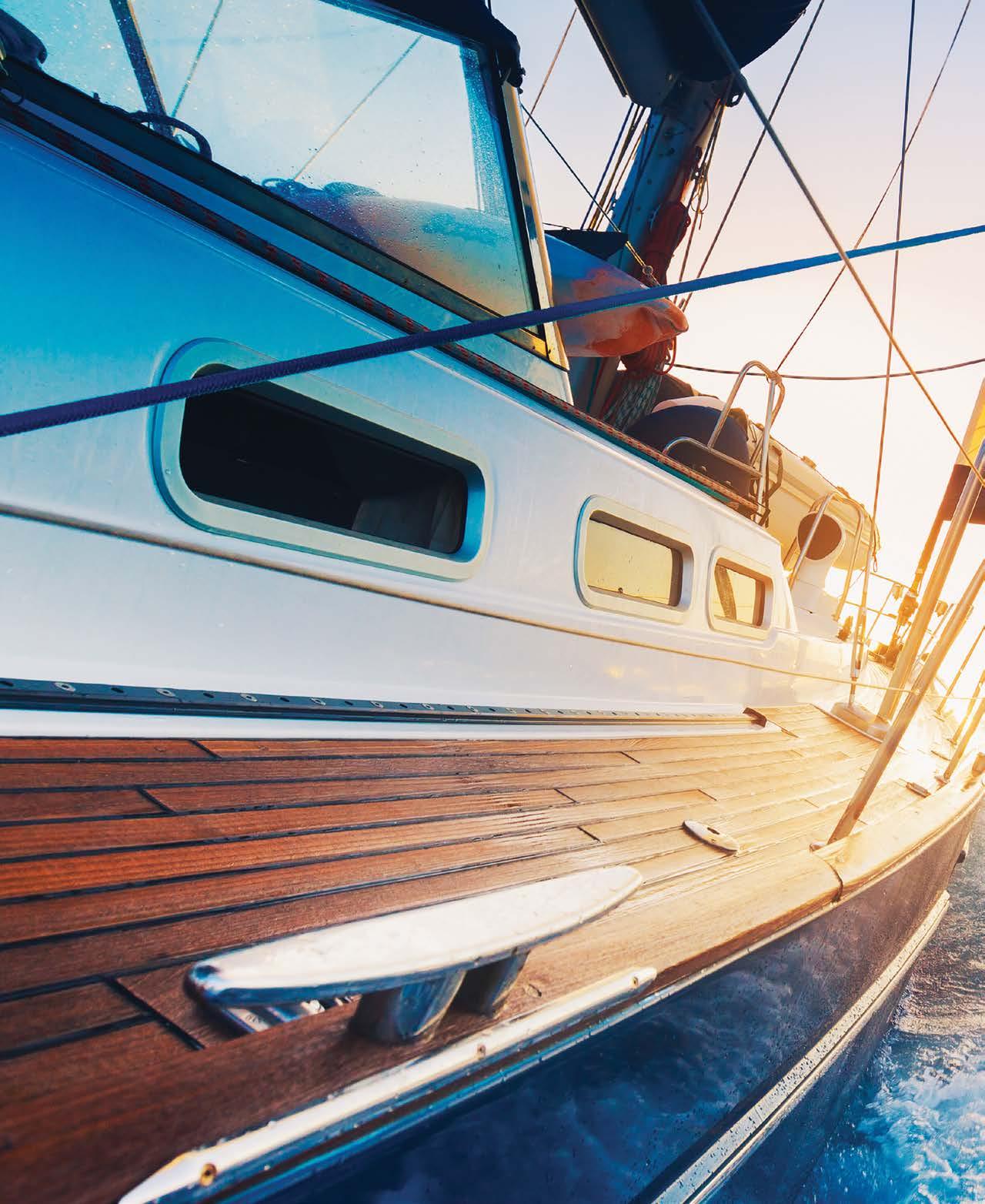
32 THE CITIZEN
Second citizenship not only opens up global business opportunities, but also looks after your family’s future.
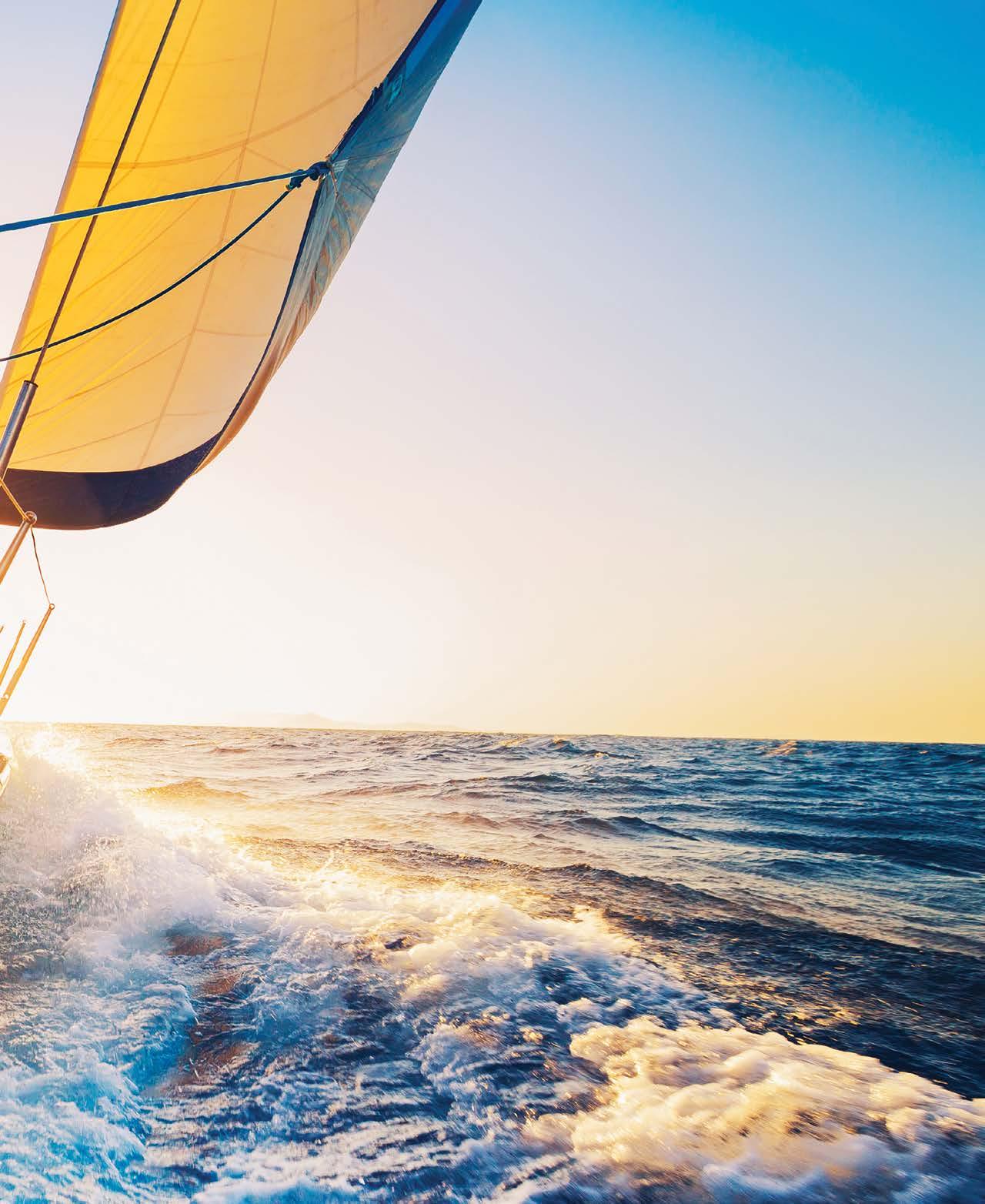
thought leadership
by Ahmad Abbas Head of Corporate Services at Investment Migration
THE UBER EFFECT - TO SURVIVE
EU ANTAGONISM, INVESTMENT MIGRATION
MUST LOOK INWARD
hen Uber began taking over the world of public transportation, an interesting phenomenon began appearing in countries worldwide. Taxi drivers started protesting and questioning the authenticity and validity of the app. This led to various problems, strikes, and overall unease.
The taxi drivers, understandably, were scared for their livelihood as a new threat entered the market. However, their main folly was fighting it, not adapting to it, and eventually, Uber cemented its place in the market, and it was too late for the cab industry to react.
Now you may be wondering why I am talking about a minor transportation issue in a piece about investment migration, but bear with me, as the similarities between what happened with Uber’s rapid takeover and the EU’s antagonism towards citizenship and residency by investment (RCBI) are uncanny.
Firstly, just like taxi drivers labelled Uber as the big baddy striving to strip them of their income, RCBI firms view the EU as the same thing: a scary threat to their businesses. Secondly, taxi drivers are a discrete bunch of professionals who have little coordination between themselves and who actively compete against each other for greater market share. RCBI firms are in the same pool, as they have no coordinating body to drive them together, and they are at odds in a very competitive market.
While the scale of investment migration and the overall status of the industry is not comparable to public transportation, the third and most important similarity highlights how much we can learn from the Uber story;
34 THE CITIZEN
“In essence, ignoring the EU’s antagonism would be folly; bowing to it would be worse.”
Insider
RCBI stakeholders are actively opposing the EU’s viewpoint, not adapting to it.
Instead of labelling the EU’s stance as unfounded, RCBI professionals should aim to look inward and address their shortcomings before it’s too late.
However, that doesn’t mean the industry should surrender and bare all to the EU. It just has to fill the gaps that give naysayers the foundations for their arguments.
While giving the EU full access to any given RCBI programme’s internal information has been touted as a good starting point, doing so without optimising the process and rooting out the issues would result in an even worse scenario.
Once RCBI finds and implements robust solutions to its problems, it can share specific information with any interested parties. Enhancing transparency is always good but tearing down the entire Chinese Wall should be considered an unfathomable mistake.
In essence, ignoring the EU’s antagonism would be folly; bowing to it would be worse.
Achieving perfect harmony between appeasing outsiders and safeguarding sensitive internal information is not easy, but it starts with a few simple - and vital - steps.
The first is addressing any allegations against the authenticity and transparency of any RCBI programme. This requires full commitment from all the stakeholders in any given programme. Governments must address their internal process, use of funds, and due diligence standards at the same time as cracking down on agents and fake agents.
Agents are the face of any programme, and any offering a shady deal to clients or marketing an unauthorised
discounted price will put a programme and its government under the microscope.
The entire process begins at an RCBI firm’s doorstep, and first impressions last. If RCBI professionals are willing to damage the image of a programme, or worse yet, put its integrity on the line, for a quick sale, then any accusations flying around are automatically substantiated in the eyes of the public.
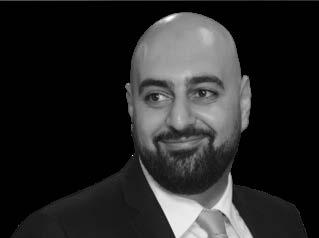
Much like our cab-driving friends, RCBI firms seem to be looking at their immediate income and how they can compete with a counterpart that offers a lower office fee. Undercutting each other to the point where nothing is left to cut but the programme’s government-set fees is swimming in dangerous waters. RCBI firms need to think about the continuity of their business, not the next fiscal quarter.
Greater government oversight would help close many of the gaps that mainstream media and foreign governments use to attack the industry, but we can go a step further.
Transparency is also key, and showing some skin goes a long way, as long as we decide what to bare and what to keep private. The EU doesn’t need full access to know what’s going on and giving them what they need - and nothing more - would do the trick. But the more information and data a government puts on public record, the greater the integrity of the programme. If you are doing nothing wrong, then you have nothing to hide.
Another major step is social responsibility. RCBI firms need to show that they are not only exhausting a programme for as much money as they can make but are a part of the community. Adding a small fee to each file and allocating a percentage of their office fees to go directly into social development projects such as parks, schools, or otherwise in the country they are representing would go a long way in improving the industry’s image, creating a direct charitable link between the investor and their new home, and would highlight how investment migration helps all aspects of a community through tangible assets.
The path forward for investment migration is fraught with challenges, and the only way to successfully navigate it is by working on our internal affairs and leaving no gaps for outsiders to use against us. Once we fix that, any claims lobbied against investment migration can be rebuffed with real numbers and hard facts. Crying injustice and not doing anything about it will only lead down one path. Just ask your next cab driver.
35
ISSUE 14 • AUGUST 2022
thought leadership
by Nuri Katz Founder of Apex Capital Partners
WHY THE EU HAS NOTHING TO FEAR FROM CARIBBEAN CBI PROGRAMMES
n October 2020, the European Union initiated “infringement procedures” against Cyprus and Malta, claiming that their golden passport programmes undermine the “essence” of European citizenship. Furthermore, the EU claimed that these programmes were a potential risk to European security and could lead to a risk of money laundering and tax evasion.
This decision to criticise the European programmes has led to a series of events whereby the European Union is now looking at the citizenship by investment (CIP) programmes in the Caribbean with an eye to understanding if they are also a risk to the security of Europe. They are not.
It is important to consider the history of what has happened in Europe and the differences between the European citizenship by investment programmes and those in the Caribbean region. This can help us to understand the opportunities that Antigua & Barbuda and the other Caribbean countries have with these programmes going forward.
The European Union has shown over time that it has little understanding or does not care to understand that neither the programmes in Europe nor elsewhere can possibly lead to tax evasion or money laundering. In some ways it is understandable, as there have been many scandals in Europe regarding their own citizenship by investment programmes. Malta’s CIP has been mired in corruption scandals, from the way the programme was first developed in 2013 to the Bank of Valletta scandal, as well as many others that partially contributed to the resignation of the former prime minister of Malta. Admittedly, much has changed with the programme, and now the requirements are stricter and are widely adhered to.
36 THE CITIZEN
Cyprus used its citizenship programme to work its way out of its very serious banking crisis of 2012. As the programme was all about real estate investments, with the minimum investment being €2 million, in a mere few years, Cyprus attracted billions of euros. With the huge amount of high-end real estate projects being built, the whole skyline of Cyprus changed. However, in October 2020, Al Jazeera reported on the Cyprus programme, which exposed corruption at the highest levels of government. Shortly afterwards, the citizenship by investment programme was closed down.
After these concerning but isolated events, it is no wonder that the EU is anxious about these programmes. Simply put, the way some European CIPs have been managed has made it look like all programmes are poorly managed and pose a danger to the world. However, this is not the case with Antigua & Barbuda or, indeed, any of the other Caribbean CIP programmes.
When it comes to the Caribbean, the EU is concerned about several matters. Firstly, that Caribbean passports will not be used to evade taxes or launder money in Europe. Secondly, they are worried about the risk to the physical security of Europeans.
The first concern is just not viable; it simply shows that the EU bureaucrats seem to misunderstand the difference between tax residence and citizenship. Besides the United States, every country in the world taxes people based on their residence. In simplified terms, where one lives is where one pays taxes. Citizenship does not affect tax obligations in any country. Gaining a second citizenship by investment in Antigua & Barbuda, for example, does not in any way change the tax obligations of the individual who has obtained that citizenship. Therefore, there can be no tax evasion simply by gaining citizenship of a second, third or fourth country.
The issue of money laundering should also not be of concern as the European banks that are based in OECD countries and which have signed up to the agreements related to the Common Reporting System have an obligation to make sure they know their client. As such, they must know not only the country of residence of their clients, but they also must report on all bank accounts opened by residents of any foreign country. Again, citizenship and passports do not have anything to do with where a person lives and their tax obligations. Indeed, the banks themselves will ensure that all countries are made aware of their residents having bank accounts opened in Europe.
Finally, and most importantly, is the issue of the strength of the due diligence performed by the government of Antigua & Barbuda (as well as other Caribbean governments) on candidates for citizenship by investment. This process, which includes engaging the services of the top due diligence companies in the world and using the resources of international law enforcement agents, makes it simply the best due diligence system known to man. The risk of criminals or other “bad” people receiving citizenship is negligible. The proof, as they say, is in the pudding. Of the tens of thousands of people who have applied in Antigua & Barbuda and the rest of the Caribbean, a statistically insignificant amount of people with any criminal history or intentions have, in fact, been awarded citizenship.
To conclude, there is no doubt that if the EU actually looks closely at the CIP programme in the twin islands, they will understand that, as opposed to what they are used to in Europe, the safeguards in place do not put Europe at risk, but conversely protect their interests.
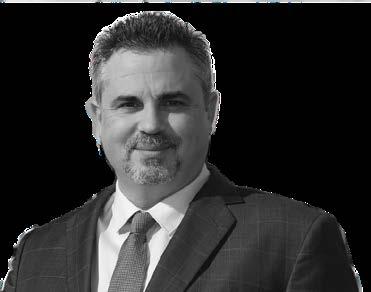
37
“The European Union has shown over time that it has little understanding or does not care to understand that neither the programmes in Europe nor elsewhere can possibly lead to tax evasion or money laundering.”
ISSUE 14 • AUGUST 2022
thought leadership
by Kevin Hosam Managing Director & Licensed Agent Exclusive Concierge
FINDING STABILITY IN A TURBULENT WORLD
agree with the consensus of experts in the residency and citizenship by investment (RCBI) industry that having a Plan B should be at the top of everyone’s priority list.
People in war-torn, unstable countries are continuously trying to migrate in the hope of finding a better life. They participate in work-visa or refugee and asylum-seeking programmes which usually flood the gates of first-world countries in Europe and North America.
RCBI programmes were designed and created to attract high-net-worth individuals (HNWIs) who do not usually qualify as refugees or asylum candidates but recognise the need for a Plan B in a stable, business-friendly country or region. This industry has opened the door for welldeserving individuals who undergo strict due diligence checks to have a fair opportunity for a better life, increased freedom, an improved sense of security and the mobility they deserve.
In recent times, the world has returned to some level of normalcy after the C19 pandemic - well most of the world, that is. But lest we forget, at one point, some of the world’s strongest-ranked nationalities were barred from entering countries due to the high numbers of infections and the less-than-stellar response to the ongoing pandemic by their governments. The optics of the RCBI industry changed immediately for many first-world citizens with first-hand experience, prompting them to explore the idea of having a Plan B, in this case, a second citizenship, for uncertain times.
38 THE CITIZEN
“Over the past 50 years or more, the Caribbean region has, in general - and the OECS subregion, in particular - enjoyed relative peace, safety, and smooth, uninterrupted transition of governments.”
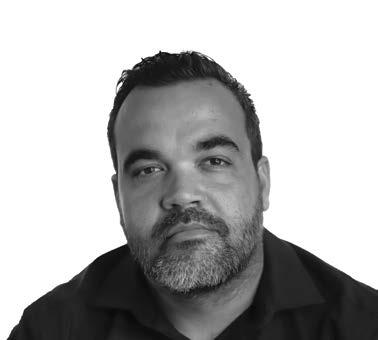
Developing nations are typically at the forefront of RCBI programmes. Many of these countries are trying to expand their economic growth by attracting foreign direct investment (FDI) through direct citizenship or golden visa/residency programmes, which affords the investor the right to live and expand their horizons within that country. It is important to note that countries offering RCBI programmes are generally politically stable and where elected officials are accountable to the people in the way that they must return to the voters at prescribed intervals to seek a new mandate to continue in office.
Throughout the years of my career in the RCBI industry, I have been fortunate to participate in many expositions, tradeshows, conferences and seminars globally, addressing thousands of individuals about the options available for a more certain future. It is crucial that HNWIs who qualify for RCBI programmes consider not only their present situation but also the future of their current country of nationality. Politicians in most countries are elected to office; they propose, support, reject and create laws that govern the land and, by extension, its people. But unfortunately, some who are elected to office do not always govern in their people’s best interest, and much less can be said about those who assume the office of power through military force or even through religious belief. Unfortunately, a select few can lead a country to war, poverty and disrepair, leaving its citizens isolated through sanctions imposed by the rest of the world.
Typically, these countries are politically neutral, abstain from meddling in world politics, advocate against conflict and wars, and support resolution rather than aggravate misconduct.
Over the past 50 years or more, the Caribbean region has, in general - and the OECS sub-region, in particular - enjoyed relative peace, safety, and smooth, uninterrupted transition of governments. This small grouping of islands between the Atlantic Ocean and the Caribbean Sea continue to enjoy political stability characterised by free and fair elections. As members of international organisations such as the United Nations, World Bank, World Trade Organisation, and the International Monetary Fund, these islands have a track record of advocating for peaceful outcomes to conflicts and disagreements. Their citizenship by investment programmes are protected by law and, therefore, can only be changed by Acts of Parliament.
Given these facts, I would suggest that a Caribbean investment and subsequent citizenship should be part of any HNWI’s Plan B.
39
ISSUE 14 • AUGUST 2022
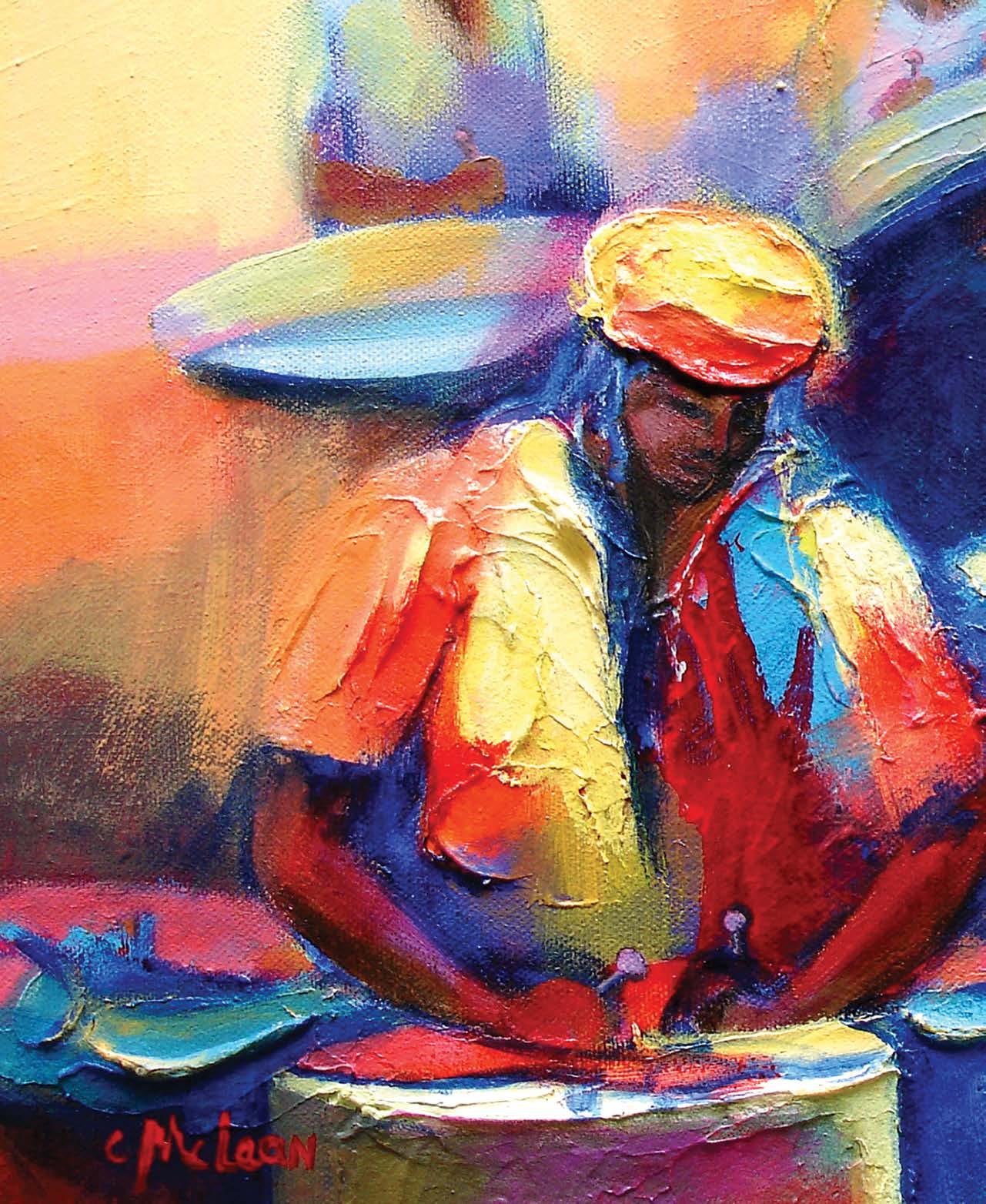
CYAH VEX WHEN SOCA PLAYIN (You can’t be angry when Soca’s playing)
GERARD TROTMAN YUH CYAH VEX WHEN SOCA PLAYIN
YUH
WAYNE
cover story
MMusic is the beating heart of the Caribbean. And as we never tire of saying –every island and country in the region has its unique personality, people, and culture – including its music and dance.
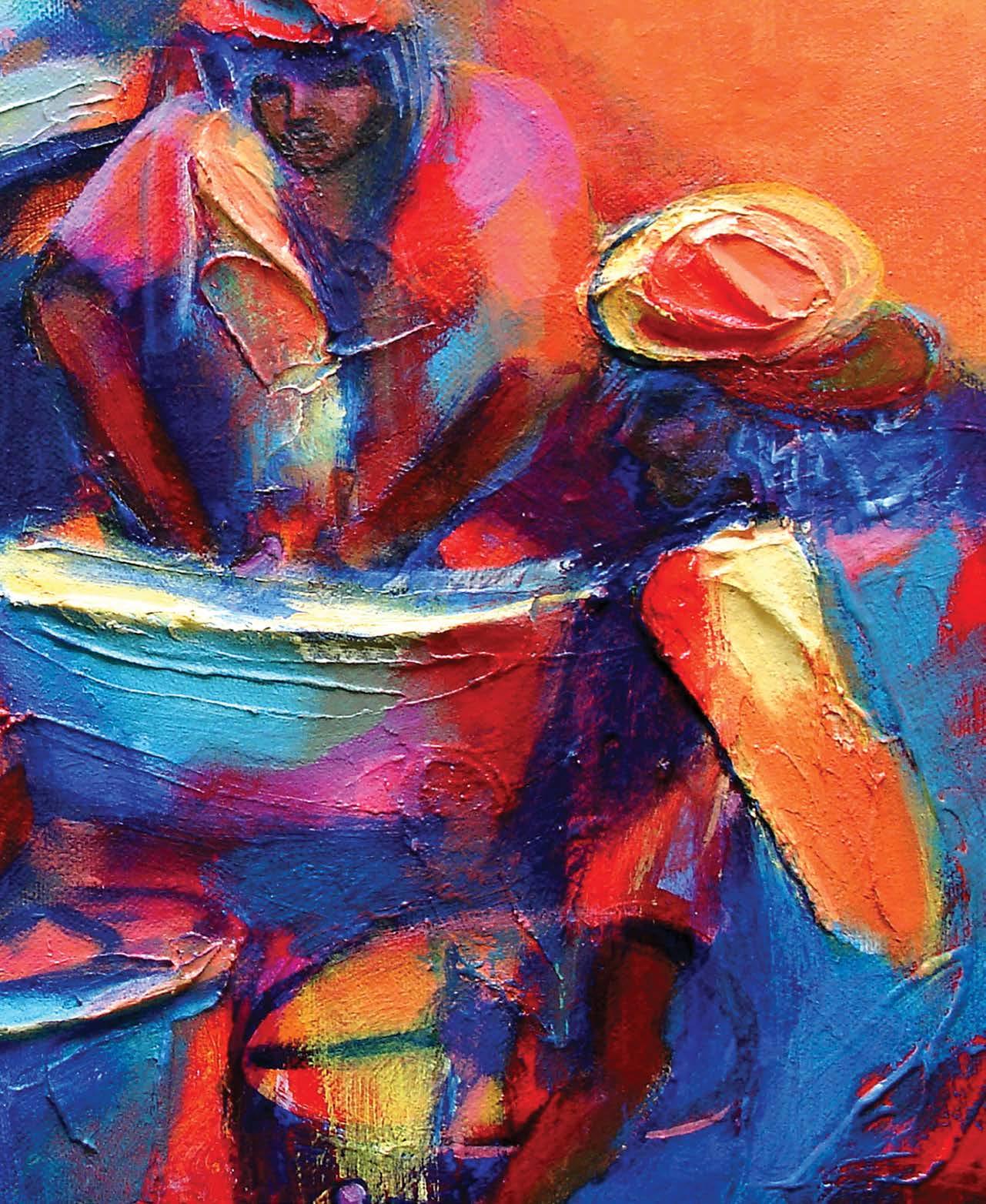
From internationally well-known genres like reggae and Calypso in the English-speaking Caribbean to those less well-known styles like Wylers, spouge or bouyon, or salsa, son and merengue in the Spanish-speaking Caribbean, and konpa and zouk in the French-speaking countries, the variety on offer is astonishing.
But there is one undeniable thing that all these styles have in common: Africa. Millions of Africans were seized and transported around the world for the slave trade, destroying lives and communities on an unimaginable scale. The indescribable conditions of the ships and the cruelty of the traders taking the people to the New World to work on their sugar and cotton plantations ensured that the people had to leave everything they owned and was dear to them behind. Consequently, very few of their precious instruments made the Atlantic crossing. But despite this, the African people’s spirit and culture could not be dimmed, and their culture, stories, music and religion were transported in their hearts and souls to be passed on to future generations.
On the plantations, the enslaved people hand-fashioned instruments from materials found around them, whether it was drums made from hollow trees with sheepskin stretched over them or calabashes containing pebbles and stuck on short sticks. Music would recreate memories and the sounds of home and allow some release from their feelings of sorrow. But music would also play an important part in their religious ceremonies and celebrations; it would help them coordinate their work and allow them to use their singing to comment on and criticise their plantation masters.
The influence of Africa on global music is immense and spreads way beyond the Caribbean. Without African rhythms and beats, jazz, soul, hip-hop, blues, and gospel music wouldn’t exist. And as elements of these styles have influenced all other modern music, even rock music, African spirituality surrounds us, no matter where we are and what we’re listening to.
41 ISSUE 14 • AUGUST 2022
FROM OUTCASTS TO ICONS – A BRIEF STORY OF STEEL PAN
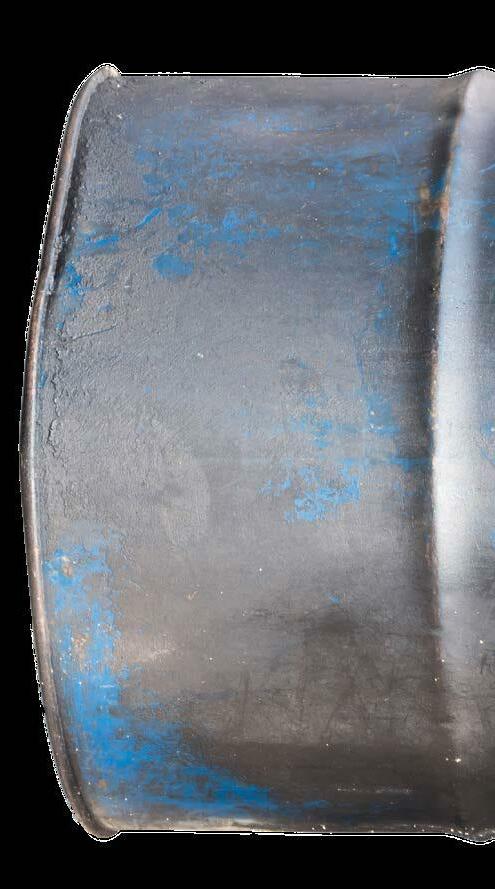 By Khan Cordice
By Khan Cordice
TThe story of steel pan is the story of some of the most fearless, determined and innovative people in the history of the Caribbean. The “20th-century musical phenomenon”, as it was called, was an immediate solution to a problem that was created when aristocrats living in the Caribbean (initially Trinidad) fought for the eradication of one of the most fundamental cultural aspects of our people: our music. From African drums and Tamboo Bamboo to steel pan in Trinidad and from housecoat band to steel band in Antigua, the “cacophony” of sound that is steel pan and its music paved the way for it to be one of the fastest developing instruments of all time and for the Caribbean people to be regarded as arguably some of the greatest inventors.
The steel pan is a melodic percussion instrument which was created in the 1930s out of a need for people to express themselves musically. The instrument was seen as a negative addition to the cultural arsenal of the people and was not accepted by affluent society and lawmakers. These “bad johns”, as these gangsters were called, were beaten, incarcerated, and even killed to eliminate an instrument that would later be considered a symbol of the Caribbean and music culture of the region, similar to reggae. The late King Franki highlighted that panmen not only fought for the instrument but also for the survival
Today, the steel pan is the most sought-after instrument across the Caribbean by young and old alike. The instrument has evolved from being regarded as “noise” to now being the beacon light of a developing Caribbean and its music.
of a culture in a society where Black brilliance was diminished and not celebrated for what it was. They also fought for what this music meant to the people of the “ghetto”.
In the middle of the 1940s, the steel pan became the newest interest in Antigua and the sound of the people of the westward communities, starting in the Point area. Like their counterparts in Trinidad, they fought for the acceptance of the steel pan and the music that became the driver of workers’ union marches, political rallies, carnivals and festivities. And more importantly, it became an avenue for a suppressed people to elevate themselves to be widely accepted as people of great intellect and immense talent. The road to acceptance was a difficult one. The music was referred to as a
“hellish cacophony”, and the steel bandsmen were despised by their families, friends and church groups. Yet they pressed on. They saw the vision and were determined.
On the path to acceptance, these musicians in Antigua created a relationship with the then culture enthusiast Governor (Lord) Baldwin,
42 THE CITIZEN cover story
who was the Commander in Chief of the Leeward Islands. Like those in Trinidad, the Antiguan aristocrats detested the steel pan and fought for the abolition of the instrument and its music. It is said that Lord Baldwin remarked that if dogs are allowed to bark at night, then the steel bandsmen should be allowed to play. This was the beginning
of the steel pan becoming an accepted musical instrument in Antigua & Barbuda. In 1949, Lord Baldwin facilitated the first steel band competition, which hosted three bands: Hellsgate, Brute Force and Red Army Steelband. The competition has remained the highlight of the music’s art form some 70-plus years later.
Antiguan steel bands saw many firsts, including the first performance in church and the first recorded on wax (circa 1952 by Emory Cook and the Smithsonian Records). These recordings are still being sold at premium prices today. The early bands also performed in hotels and for royal visits, on tours to the USVI and other neighbouring islands, and are confirmed to be the originators or inspirers of steel bands and carnival-like festivities in those territories.

The influence of notable musicians such as the late Bertha Higgins, and Lt. Vere Griffith of Barbados, assisted in the further development of steel bands in the 1950s and 1960s by way of increasing repertoires to include infamous classical pieces by composers such as Mozart, Handel, Bach, Tchaikovsky and Beethoven. Steel pan was on the rise. The road to acceptance was paved.
Today, the steel pan is the most sought-after instrument across the Caribbean by young and old alike. The instrument has evolved from being regarded as “noise” to now being the beacon light of a developing Caribbean and its music. From the 55-gallon oil drum to the ping pong, the steel pan and the electric pan (E-Pan). From the ghetto to Buckingham Palace and Carnegie Hall. From outcast to icons in less than a century. This is a brief story of the steel pan.
43 ISSUE 14 • AUGUST 2022
CALYPSO
Calypso was born hundreds of years ago when the first African slaves were torn from their homeland and brought to work in the plantations of Trinidad. The sound of Calypso, or Kaiso as it was known then, was forged when the enslaved people, forbidden to talk amongst themselves, used song as a way of communicating with each other and a cathartic way to mock their cruel masters in the process.
To the casual listener, it may appear to be happy, light-hearted music; it is, in fact, one of the most political musical traditions that exist. Today, although thankfully, those days of transatlantic slavery are well gone, Calypso remains a way of giving a voice to the people about their injustices and grievances through satire, puns and innuendo, albeit through highly rhythmic and catchy melodies.
The first commercial recording was as early as 1912, but in the 1920s and 1930s, Calypso truly entered its golden era, culminating in the 1950s. One of the performers from the 1930s, Lord Kitchener, “the grandmaster of Calypso”, incredibly continued recording until his death in 2000. Other performers like Atilla the Hun, Lord Invader, Harry Belafonte and even civil right activist and writer Maya Angelou brought Calypso music to an international audience.
Now at Carnival time around the Caribbean, although it is Calypso’s little sister, Soca, whose music has begun to dominate, Calypso remains popular both in the “tents” where Calypsonians perform during the festivities as well as in the hearts of its devoted fans.
In Antigua & Barbuda, like all over the Caribbean, this music has had an indelible impact on people’s lives. The Antiguan Calypso crown must go to either King Swallow or King Short Shirt, some of the islands’ most important cultural icons.
For the uninitiated, Soca is highenergy music and a heady mix of Calypso, loud vocals, electronic jazz beats, thumping bass lines, horns and infectious rhythms.
SOCA
Not everyone may be familiar with the beat-driven sound of Soca music outside of the Caribbean, unlike reggae or Calypso. It is certainly one of the most popular styles of music in the region today and is undeniably the reigning soundtrack of Carnival, with the music pumping from every sound system during the festivities. One thing is for sure - when you hear this music, it is nigh on impossible to stop dancing.
For the uninitiated, Soca is high-energy music and a heady mix of Calypso, loud vocals, electronic jazz beats, thumping bass lines, horns and infectious rhythms. Soca originated in Trinidad & Tobago as a by-product of Calypso when back in the 1970s, the latter was being pushed aside by the younger generation.
Trinidadian Garfield Blackman, aka Lord Shorty, widely considered the “Father of Soca”, made the ground-breaking decision to fuse Calypso with East Indian music, which was also prevalent in his home country, and Soca was born for the new generation. As another Trinidadian Soca artist, Kees Dieffenthaller, succinctly puts it, Soca is “the adolescent child of Calypso”.
The genre is constantly evolving, and each country and performer is putting their own spin on that infectious sound. Machel Montano from Trinidad is undoubtedly the current King of Soca. However, Antigua & Barbuda have had its fair share of Soca greats, including the Burning Flames, formed in the 1980s and hugely influential in modernising Soca in the Eastern Caribbean. And today, “Soca Diva” Claudette Peters, Ricardo Drue and Tian Winter are the stars bringing this happy and popular music to their people. Just let yourself dance.
cover story 44 THE CITIZEN
REGGAE
Today, reggae is so revered that it has even been added to UNESCO’s “Intangible Cultural Heritage of Humanity” list. Its influence is undeniable on so many genres in music that came after, whether it’s hip-hop or mainstream pop, rock or even punk.
Reggae could be considered the quintessential Caribbean music with its smooth sounds evoking the swaying palms and white sands for which the region is famous. But it wasn’t always considered to be a smooth sound. Indeed, before reggae icon – and arguably one of the most recognised faces on the planet even today – Bob Marley introduced reggae to the world, reggae was considered a true mishmash of other styles.
Inextricably linked to the Rastafarian religion and social movement that began in 1930s Jamaica – and to which religion Marley himself belonged – reggae followed the development of ska, rocksteady and mento. Since then, it has become a musical voice for the Jamaican people to tell the world about their struggles, history and culture. Although the music has rapidly spread around the Caribbean and indeed the world, it is still fundamentally a Jamaican art form.
Today, reggae is so revered that it has even been added to UNESCO’s “Intangible Cultural Heritage of Humanity” list. Its influence is undeniable on so many genres in music that came after, whether it’s hiphop or mainstream pop, rock or even punk.
In the twin islands, reggae is extremely popular; its people having lived much the same experiences as their Caribbean compatriots. Its popularity has given rise to homegrown talent like Antigua & Barbuda’s Reggae Ambassador, Causion, who uses his passion and joy for music to speak about social issues and spread the central message of reggae: that of peace and love.
45 ISSUE 14 • AUGUST 2022
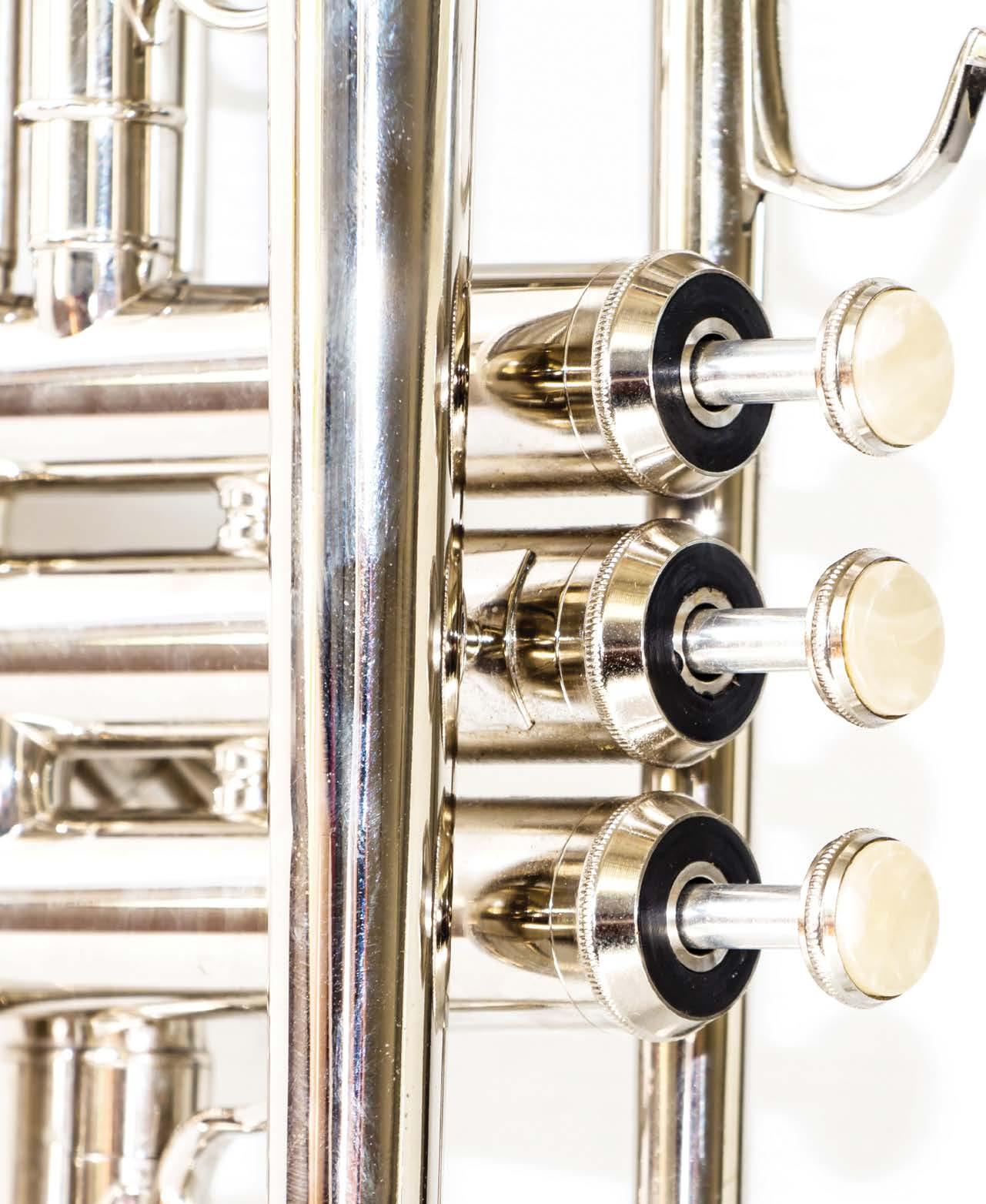
cover story
MUSIC IS LIFE: THE GROWTH OF CLASSICAL MUSIC IN ANTIGUA & BARBUDA
By HE Karen-Mae Hill
With so many genres of music in the Caribbean, most of them with their roots in the African motherland, classical music played by a symphony orchestra may not be the first type of music that springs to mind when thinking about the region.
And in creating the Antigua & Barbuda Youth Symphony Orchestra (ABYSO), the organisers were keen to challenge the stereotype that classical instruments, and by extension classical music, were reserved only for the well-to-do in society.
Formally launched in April 2018, the ABYSO is now in its fifth year and boasts a full complement of musicians from all the major instrument families: woodwinds, brass, percussion, strings and voice. Although it first began with just 21 students, it now has over 200 members, with 64 musicians forming the orchestra itself.
ABYSO is the brainchild of Antigua & Barbuda’s High Commissioner in London, Her Excellency KarenMae Hill, herself a classically trained pianist. In 2017, she was instrumental in bringing the world-famous musical family of Antiguan heritage, the Kanneh-Masons, to the twin islands to feature in a musical production titled Playing to Inspire, along with several local string musicians. The interest this generated ignited the
BENNA
passion for seeing the dormant Youth Symphony Orchestra rebirthed once more a year later.
Studies have long shown that musical education provides multiple positive benefits for young people. Not only does it expose them to opportunities and people they may not have otherwise encountered, but it also develops critical skills like self-discipline, time management and teamwork, and an appreciation for different cultural backgrounds and personalities. Conflict resolution and self-confidence building are other important attributes developed through musical education.
Another key motivation for the creation of ABYSO was to provide young people with a positive outlet to steer them away from negative influences. It also opens up the possibility of forging a career in music.
With this in mind and with the mission of providing the highest calibre of instruments, musical education and performance opportunities to all citizens regardless of their socioeconomic or musical background, ABYSO is open to anyone between the ages of five and 29.
Although ABYSO provides its students with a knowledge of classical music, it is also keen to keep Antiguan
IN CREATING THE ANTIGUA & BARBUDA YOUTH SYMPHONY ORCHESTRA (ABYSO), THE ORGANISERS WERE KEEN TO CHALLENGE THE STEREOTYPE THAT CLASSICAL INSTRUMENTS, AND BY EXTENSION CLASSICAL MUSIC, WERE RESERVED ONLY FOR THE WELL-TODO IN SOCIETY.
Benna is one of the earliest types of local music from the twin islands. An up-tempo fold song, the music was introduced after the emancipation of enslaved people back in the 1830s and was a way of spreading scandalous rumours or gossip. Like so many styles of music with its origins in the African motherland, the song is performed in a call-and-response format with a leader and their audience. By the beginning of the 20th century, it was used as an
and Barbudan culture on display throughout its various performances. Commissioning scores arranged and/or composed by Antiguan musicians, featuring Antiguan folk and traditional songs, and including indigenous instruments like the steelpan are all ways patrons are treated to a seamless blend of various musical styles and genres that go beyond the classical repertoire.
Learn more about the ABYSO at www.abyso.org or follow us on @abysomusic.
efficient way of communicating news across the island – a veritable oral gossip magazine. In the 1940s and 50s, Benna performer John “Quarkoo” Thomas sang songs about legal scandals and the juicy sex lives of the upper classes. Unfortunately, this was frowned upon by the people he was singing about, and he was sent to prison thanks to the lyrics of his song Cocoatea, which discussed the scandalous secret pregnancy of the daughter of a respected member of society.
47 ISSUE 14 • AUGUST 2022
The Antigua fife (similar to a piccolo) and the Barbuda banjo are two hand-crafted instruments from the twin islands, which were used in local folk music.
The presence of European elements in Afro-Caribbean music is reflective of the music that enslaved people were forced to play for their masters.
Soca was initially spelt “Sokah” to reflect its East Indian influences, but after a newspaper made a spelling error and called it “Soca”, the new name stuck. Zouk music started in the 1970s in the Frenchspeaking Caribbean, especially in Guadeloupe and Martinique.







Music in the Caribbean was first developed by the indigenous cultures. When they died out in the 16th century, the people took their music and culture to the grave with them.
Music then re-emerged when the enslaved Africans came to the Caribbean starting in the 16th century; however, the official local industry only began in the 1920s.

The Antiguan Carnival is a celebration of emancipation from slavery and is a festival of music and dance.
Jamaican-American singer Harry Belafonte was called the “King of Calypso” thanks to his bringing Calypso to the world. His album Calypso was the first million-selling album by a single artist.
The Rumba is one of the most important and universal Cuban styles of music.


The national dance of Antigua and Barbuda is the Quadrille.
Calypso gets its name from a type of tent made of palm trees called a calypso in Trinidad & Tobago, which hosted masqueraded bands.
Dancehall is a more hardcore form of reggae and is very popular in Caribbean clubs.
48 THE CITIZEN cover story

As a digital nomad, Tuesday pretty much looks like Saturday
OOne of the most influential people of our times, Sadhguru is a Yogi, mystic and visionary with all his life efforts going towards raising human consciousness. Founder of Conscious Planet and the Save Soil movement, his actions are supported by over 16 million volunteers worldwide. He recently undertook a mammoth 30,000 km motorcycle trip visiting 27 countries in 100 days to raise awareness about the importance of preserving the world’s soil health.

Interview Sadhguru
ItisthehonourandprivilegeofTheCitizen thatSadhgurutooktimefromhishectic scheduletotalktothemagazineaboutasmall partofhisthoughts,teachingsandlifemission.
Vanashree to Conscious Planet and Save Soil has meant three decades of commitment to the health and future of Earth. What can you tell us about your movement?
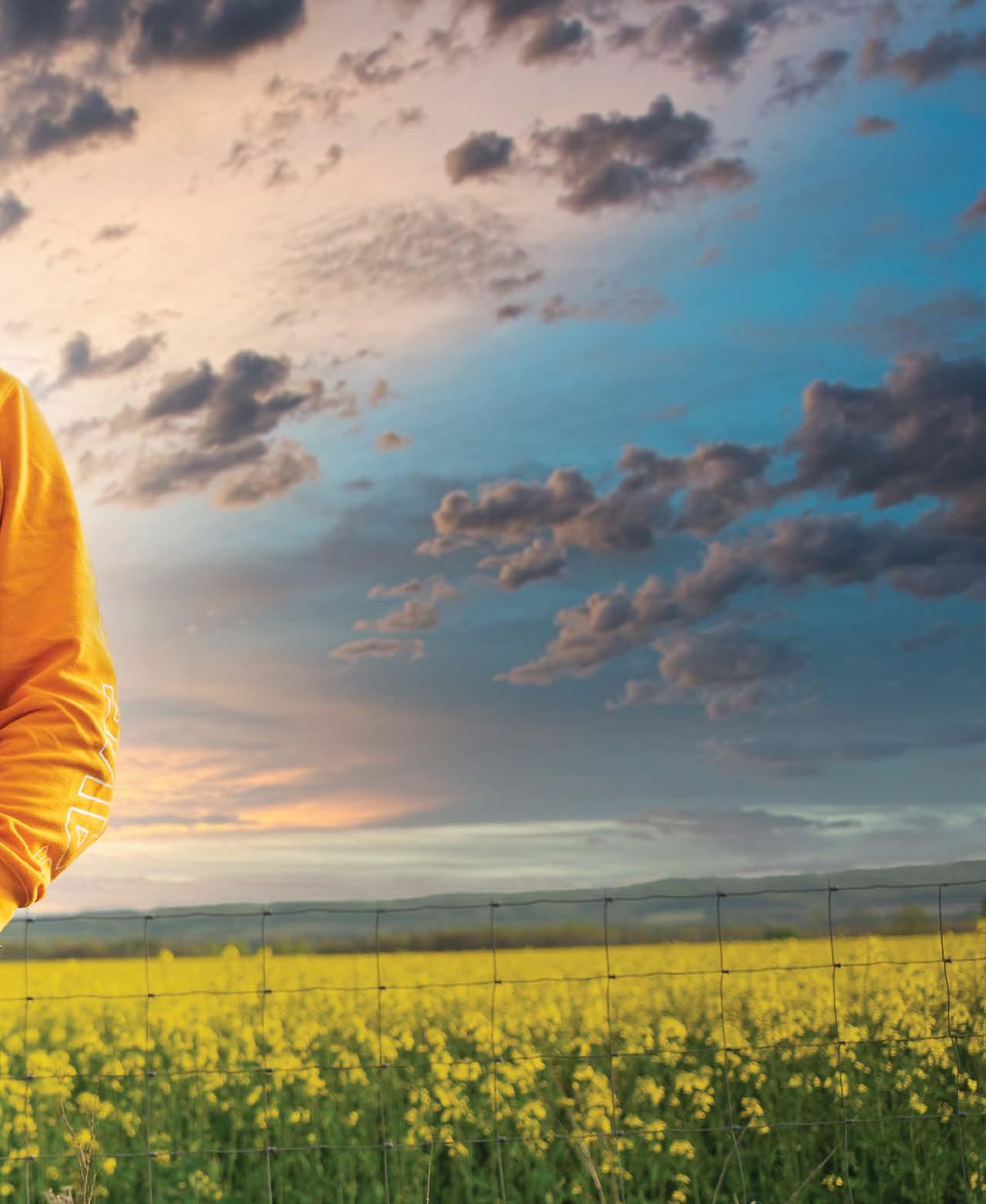
Soil degradation is a global phenomenon; half of the world’s topsoil has been lost. In large parts of the world, the organic content in the soil is well below one percent. For any soil to have agricultural potential, it must have a minimum of three to six percent organic content. Right now, United Nations’ statistics say that we may have agricultural soil only for another 80–100 crops. This means after 45–60 years, there could be severe food shortages, and getting rich soil will become the basis of wars on this planet.
If we take concrete action now, then in the next 25–30 years, we could turn the soil around quite reasonably. But if we wait for another 50 years, turning the soil around will take 100–150 years. That means four or five generations will experience a difficult life because of the weak condition of soil.
This is why in 2022, we have taken up the Conscious Planet – Save Soil movement.
However, it isn’t that we suddenly thought of saving soil. We have been working on this for the last 26–27 years. In many ways, our other initiatives of Project GreenHands, Rally for Rivers or Cauvery Calling are not different things – it has all been about soil. But we talked about rivers and water because people can easily relate to them.
What a fantastic feat, 100 days on a lone motorbike journey from the UK to India. What does it take to organise such an undertaking?
Two-and-a-half years ago, we formed the Conscious Planet Trust in the United States, but I kept everyone in the Isha Foundation completely in the dark. No one knew that such a thing was happening. On 3rd January 2022, I spoke to about 15 to 20 core people in the foundation about it for the first time. I said, “We need to do this globally.” They said, “No, no, no. How can we do this in two-and-a-half months? We will Save Soil in 2023.” I said, “No, it must be 2022. It has to be rolled out.” And it was only on 1st March, during Mahashivratri, that I announced it to the larger groups of volunteers.
We made some enquiries with professional teams who organise adventure tours, and when they looked at our schedule and the madness of what we were doing, they all said, “No, we cannot do this.”
But we did it. And, in those 100 days, we covered 27 nations and met with important leaders, holding over 690 events. On average, I rode nearly 500 km every day and took part in a minimum of three to five events – media interviews, social media interviews, and meetings with influencers and parliamentarians. My days ended at one-thirty or two o’clock in the morning. Even while I was riding, I was carrying out interviews. Because of the war, the route changed three times. We had to accommodate an extra 1,800 km into the existing schedule.
Our volunteers handled all this without a single hitch. All our global teams - logistics, videography, and social media teams – worked
seamlessly night and day. I am not saying all this to boast about our volunteers, but I am in awe of what they have pulled off.
All this effort has been worthwhile because we have indeed changed the narrative towards soil.
Seventy-four nations have so far agreed to act to Save Soil. What is your ultimate goal, and what do you hope will happen as a result of this movement?
The first thing we want to change is the narrative in the world towards soil and recognise it as a living entity, not a bunch of chemicals, which has always been the predominant misconception. It is not about nitrogen or phosphorus; it is about living soil. Agricultural soil must have a minimum of three to six percent organic content, and this should become a policy in every country.
Secondly, 5.26 billion people in the world live in a democracy. Given that an elected government usually only has a term of four to five years, they would not be willing to invest in long-term soil policies of 15–20 years unless their citizens stand up and speak. For this reason, we want to move at least 3.5 billion people, or 60 percent of the world’s electorate, to speak for a soil-health policy.
In the last 100 days, the narrative towards soil has already shifted, with 3.9 billion people having spoken out about it. I am very sure that policies will be implemented almost everywhere. Now, it is only a question of managing the pace.
The soil is the source of our lives. What is the most important message for people to understand?
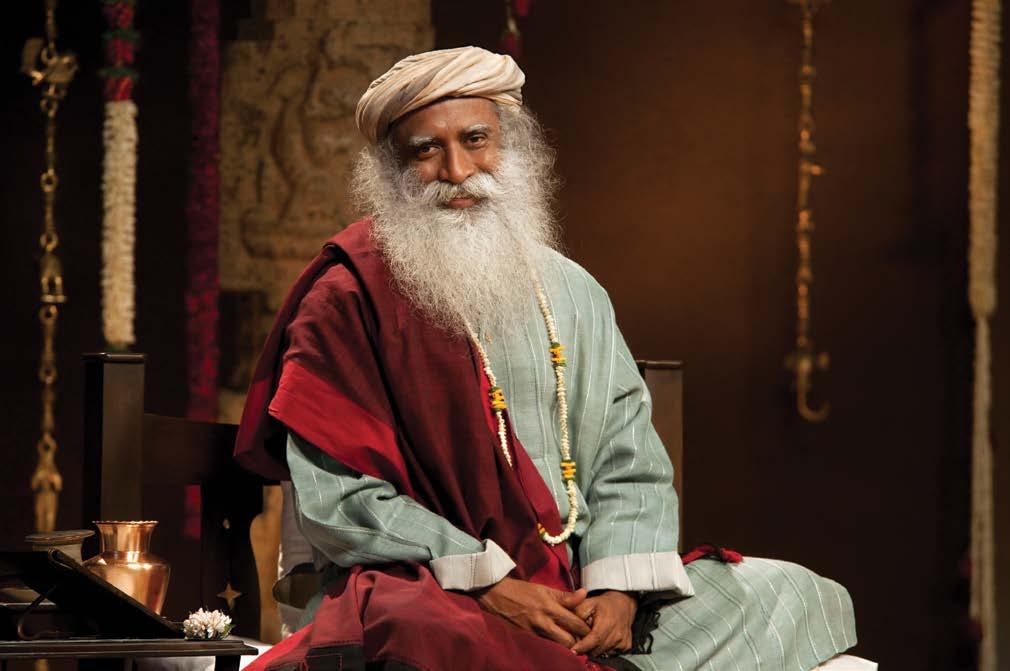
It is time we realise that the preservation and nurturing of this planet is no different from aspiring for a good life for ourselves. The very bodies that we carry are just an outcrop of this planet, so there is no good life without a good planet. This awareness and maturity need to arise in the people, businesses, industry, government, and whoever else is involved in managing or destroying the planet.
You have said, “Idealism is good within yourself. But action has to be pragmatic because otherwise, it will not be practical or successful.” What can we as individuals do to play our part in solving the problem of soil degradation?
There is no question that everyone needs to take one small step to turn this around. But at the same time, the damage we have caused to the soil cannot be turned around with individual action. This needs a worldwide policy.
In a democracy, the most important thing is the voice of the people. So, I want you to use your voice. I want each one of you to join this movement. Take this on as your movement and bring awareness to your nation and the rest of the world that the soil upon which we stand and walk is the basis of our lives; that the life which is happening in the first twelve to fifteen inches of topsoil is actually the basis of our existence.
52 THE CITIZEN
Interview
For the next 12 months, everyone must say something about soil, at least for five to ten minutes a day. Use social media – Twitter, Facebook, Telegram, or whatever you have. The whole world should speak about soil. Each one of you should reach as many people as you can, because when the people speak up, governments will make the necessary policy changes. Be a part of this and let us make it happen!
You have made so many wise statements in your lifetime. If you had to choose one thing you could tell us today, what would it be?
In the past, in pursuit of well-being, people have looked up. This has brought about many hallucinations – people have imagined all kinds of things. And it has created continuous wars between one kind of heaven and another kind of heaven. They are fighting over a God or heaven that neither has seen but over which they are still willing to fight to the death.
In recent times, there has been a shift towards seeking well-being from the outside world. In seeking well-being from the world, trying to take the juice of life from outside, we are destroying the very source of our living – the planet itself.
The only ultimate solution and the only way human beings will truly know well-being is by turning inwards. This is what Yoga means. Not up, not out, but in. The only way out is in. We have engineered the world sufficiently. Now it is time to engineer our interiority.
You founded Isha Foundation and Yoga Centre in 1992 and today have millions of volunteers and various centres worldwide. What can you tell us about its mission?
In the last few decades, we have pushed Isha Foundation as an instrument for individual transformation because a larger transformation in the world can only happen through individual transformation.
Today, with the tools of science and technology, we have brought ourselves to a self-threatening situation where everyone in society needs to turn spiritual. Unless some sense of oneness touches people, especially the leadership on the planet, then self-destruction is a live threat.
A non-religious, scientific, spiritual process is the need of the hour; it is the need of the century, the need of the millennium, and the need of eternity. Fortunately, we have tools to communicate with the whole world, which no one has ever had before in the history of humanity.
The fundamental goal of Isha Foundation has been, and will always be, to make spiritual possibility available to people. The goal is that every human being, irrespective of their caste, creed, religion, gender, or whatever else, must have at least one drop of spiritual process in them.
How can we attain spirituality while enjoying the material world? Are the two mutually exclusive?
Life comes as a whole. There is no such thing as “materialistic” and “spiritual”. This distinction of what is material life and what is spiritual life has come from a certain level of ignorance. When you sit here, can we separate whatever you are referring to as the spirit in you from your body? Your body is the material; it is the earth. So how can you separate the material and the spiritual? There is no spirit without material, and there is no material without spirit. Whatever material we handle - our homes, relationships, money - are external arrangements that we make in our life for our external convenience, comfort and joy. Similarly, whatever inner arrangements we make for our inner well-being are spiritual. Can you live if you have fantastic outside arrangements but are a mess internally? Or if internally you are blissful but have no food to eat? Both need to be organised. But with how much balance? The priority that you give to each is an individual choice. According to individual needs, one has to do it. As far as I can see, everyone is striving for happiness; everyone is striving to be free. That means every human being is seeking spirituality. A few are striving consciously; most are striving unconsciously. If you find unconscious expression in it, it gets labelled as materialism. If you find conscious expression in it, we call it a spiritual process. Isn’t it better to seek consciously with eyes open rather than closed?
And finally, who is Sadhguru?
“Sadh” means “within”, and “Guru” means “dispeller of darkness”. Sadhguru is not a title. It essentially means an uneducated Guru, in the sense that he does not come from scripture or tradition but from within. I do not know any scriptures, teachings or traditions. I just know this piece of life from its origin to its ultimate. In the Yogic culture, we have always seen that the way the human system is made is the way the whole cosmos is made. In terms of complexity, it may be different, but in terms of fundamental design, it is the same. So if you know this piece of life, by inference, you know everything worth knowing.
53 ISSUE 14 • AUGUST 2022
“We want to move at least 3.5 billion people, or 60 percent of the world’s electorate, to speak for a soil-health policy.”
Drue Ricardo
AAlthoughAntiguanSocastarRicardoDruegrew upinTrinidadandcurrentlylivesinOrlando, Florida,hisheartiswellandtrulyinthetwin islands.Hismusicalcareerbeganasoneof theleadsingersofthedanceandvocalquartet Crossovah,whoopenedformajorartistslike JeffreyOsborne,SeanKingstonandMachel Montano.ButtherewasnoholdingbackRicardo, wholeftthebandin2010topursueasolocareer in his first love Soca. HemovescrowdsintoafrenzyintheUS,London, Canada and of course, across the Caribbean, where he has taken the crown of Soca Monarch severaltimesattheAntigua&BarbudaCarnival. WewereluckytocatchRicardoinbetweenhis globalconcertstofindoutmoreabouthissteady rise in the world of Soca.
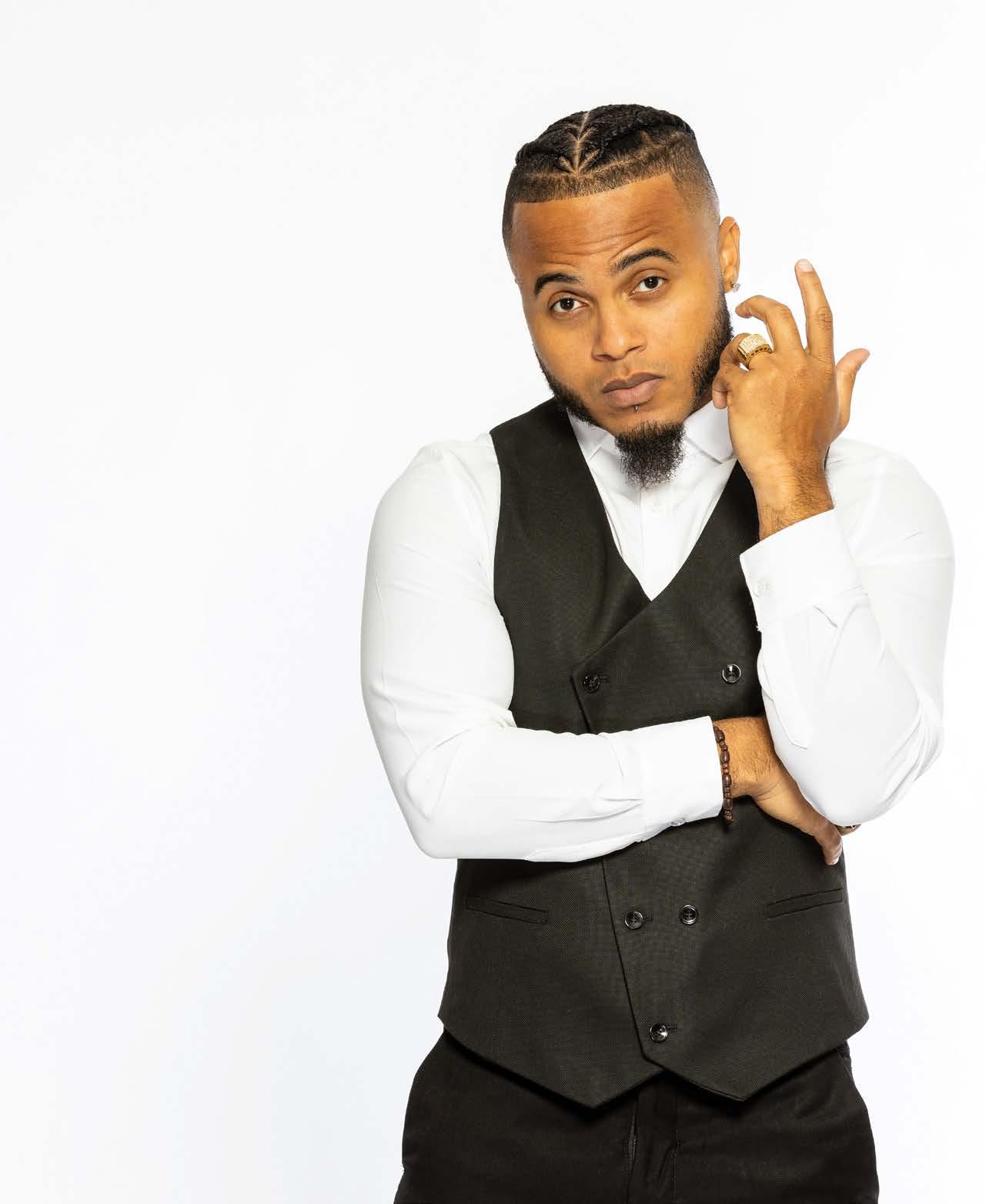
54 THE CITIZEN
What does Soca music mean to you?
Soca means culture, it means life, and it means happy music. It is absolutely everything to me. And when I say Soca is happy music, I truly believe that; I have seen first-hand how it has changed energies and people. This is why I entitled my current album Happy Music
How would you describe Soca music and its importance in the Caribbean to anyone unfamiliar with this genre of music?
I honestly believe it is a genre of music that brings people together in a very positive way. My album Happy Music was specifically made as after
Even though you grew up in Trinidad, you were born in Antigua. How important is your Antiguan heritage to you?
My Antiguan heritage is extremely important to me; without it, there is no me, no Vagabond, Professional, and most of my other successful records. My success in the industry didn’t start until I was able to understand my people and my country.
You’ve been in several bands like Diversity and Crossovah. What made you branch out into a solo career?
An audition with Crossovah on the television programme America’s
while trying to keep getting better. I think some of our entertainers need to take the art form more seriously. I also think we should stop creating music just for carnival season and make Soca music yearround, including singing about more relatable life concepts and not just carnival-based ones.
Congratulations on your recent engagement to Patrice Roberts. This surely makes you the power Soca couple! You have recently collaborated with her, but what plans do you have for future collaborations?
Thank you! Patrice and I go on vibes and energy, so when the vibe is right,
listening to it, it’s hard for one to be sad or angry – this always happens when Soca is playing.
When did you first become interested in music, and how did you start in the industry?
I have been a music lover for as long as I can remember, probably since I was around five years old. I grew up with music all around me as my mum was a radio personality, and my uncle sang in the choir, so I fell in love with it from a young age. I first got introduced to the industry in 2007 when an Antiguan DJ called Crown Prince saw potential in my talent.
Got Talent is what initiated my solo career. It was a very discouraging and demoralising audition. However, for some reason, the negative that came out of it motivated me more than it demotivated the other members and me, and my solo career was born.
Although Soca music has started infiltrating mainstream music, it has done so to a much lesser extent than some other Caribbean music genres. Why do you think that is, and what would you like to tell the world about this music?
I believe we just have to keep knocking at the mainstream door
we do it; if it isn’t right, we do not force things. Our next collaboration is a record called Yolanda, which is Greek for ‘queen’. I can’t wait for the world to hear it.
What would be your dream collaboration if you could choose any artist in the world?
I’ve got a lot of people who would be my dream collaborators! The first people that come to mind are Michael Jackson, Drake, Burna Boy, and Patoranking, but the list goes on!
Soca is the sound of carnival, so it is naturally an important time for you. Each carnival has its own
55 ISSUE 14 • AUGUST 2022
Interview
“Soca means culture, it means life, and it means happy music. It is absolutely everything to me. And when I say Soca is happy music, I truly believe that; I have seen first-hand how it has changed energies and people.”
flavour - what makes Antigua’s carnival special for you?
Our people and our energy are genuine. If we don’t like something, we won’t hide it; if we love it, we will defend it to the very end. This makes our good even greater.
You started a YouTube programme, Based on a Drue Story. Can you tell us more about that and how important social media is for you and getting music out there these days?
Based on a Drue Story was a way for me to connect with my sponsor and show them the good as well as the bad, making myself and my brand more relatable. As an artist, if you don’t have a social media presence, you are making your job harder for yourself; that is where
the world is today, and that is where people will look for you and your music.
As a three-time winner of the Soca Monarch crown, what does it mean for you to win these kinds of accolades?
I actually won four! Winning a crown was good for me. I
wanted to see if I was capable of going head-to-head with the best, and I proved I was. Now I am part of Antigua’s musical history.
Where’s your favourite place in Antigua & Barbuda?
Without doubt, English Harbour.
What is your motto in life?
My motto is: no matter how bad it is now, later will be better, tomorrow will be better.
What’s next?
I will continue to build and develop the brand and push my album Happy Music. We are also working on a few international events in places like Toronto and Dubai that I am very excited about. We also have the merchandising. But above all, I have a wedding to plan!

Interview
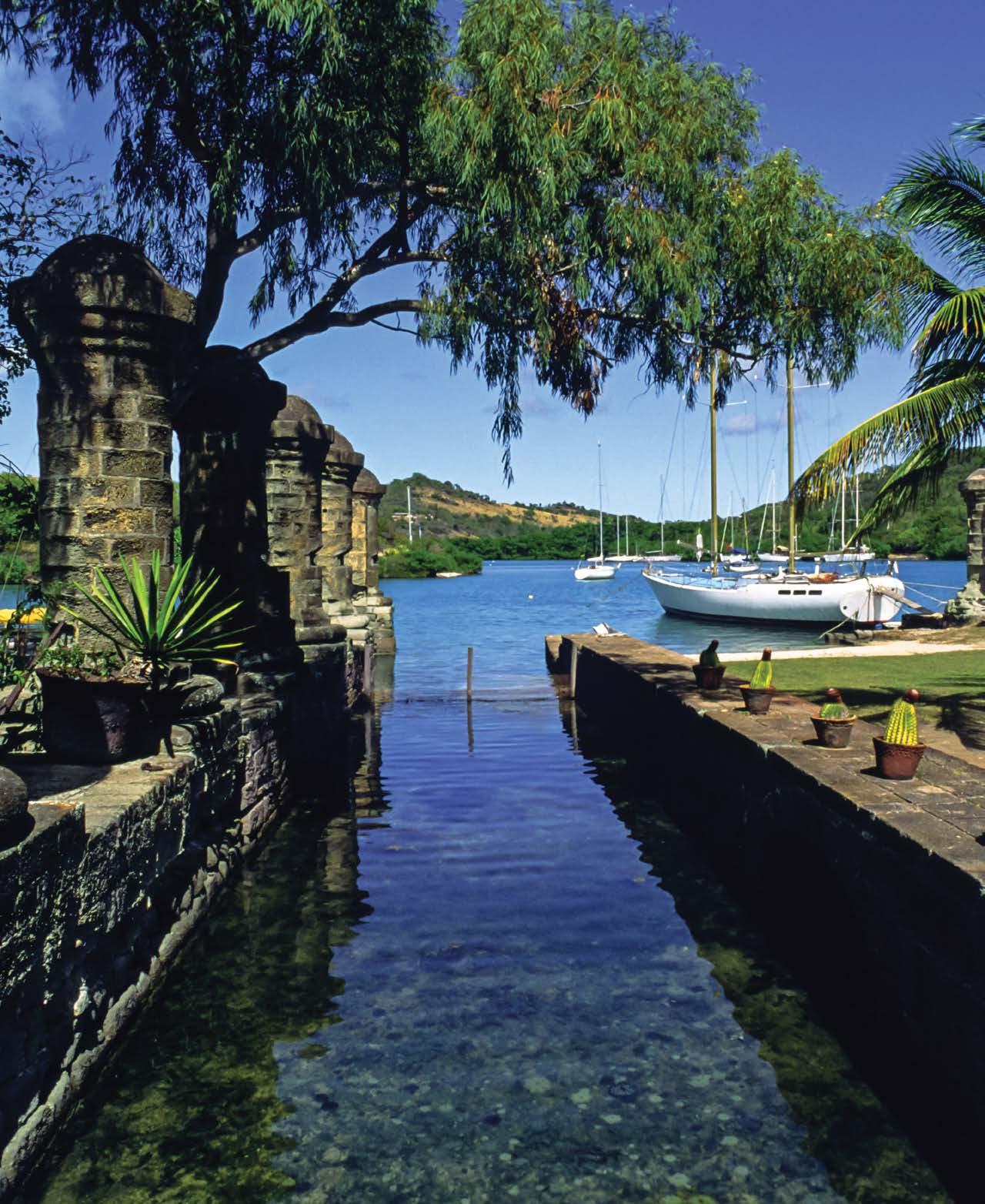
Explore, experience, live and invest in Antigua & Barbuda
ANTIGUA THROUGH MY LENS
by François Geleyns
François Geleyns arrived in Antigua in 2019 and is one of the country’s new citizens. Originally from Belgium, François lived in Uccle and Waterloo, south of Brussels. Having worked in high-end real estate and the publishing industry, François has now swapped his life in Belgium for one in Antigua & Barbuda, where he indulges his twin passions of kitesurfing and photography. We learn more about François’ passion and how it has flourished during his time living in paradise.
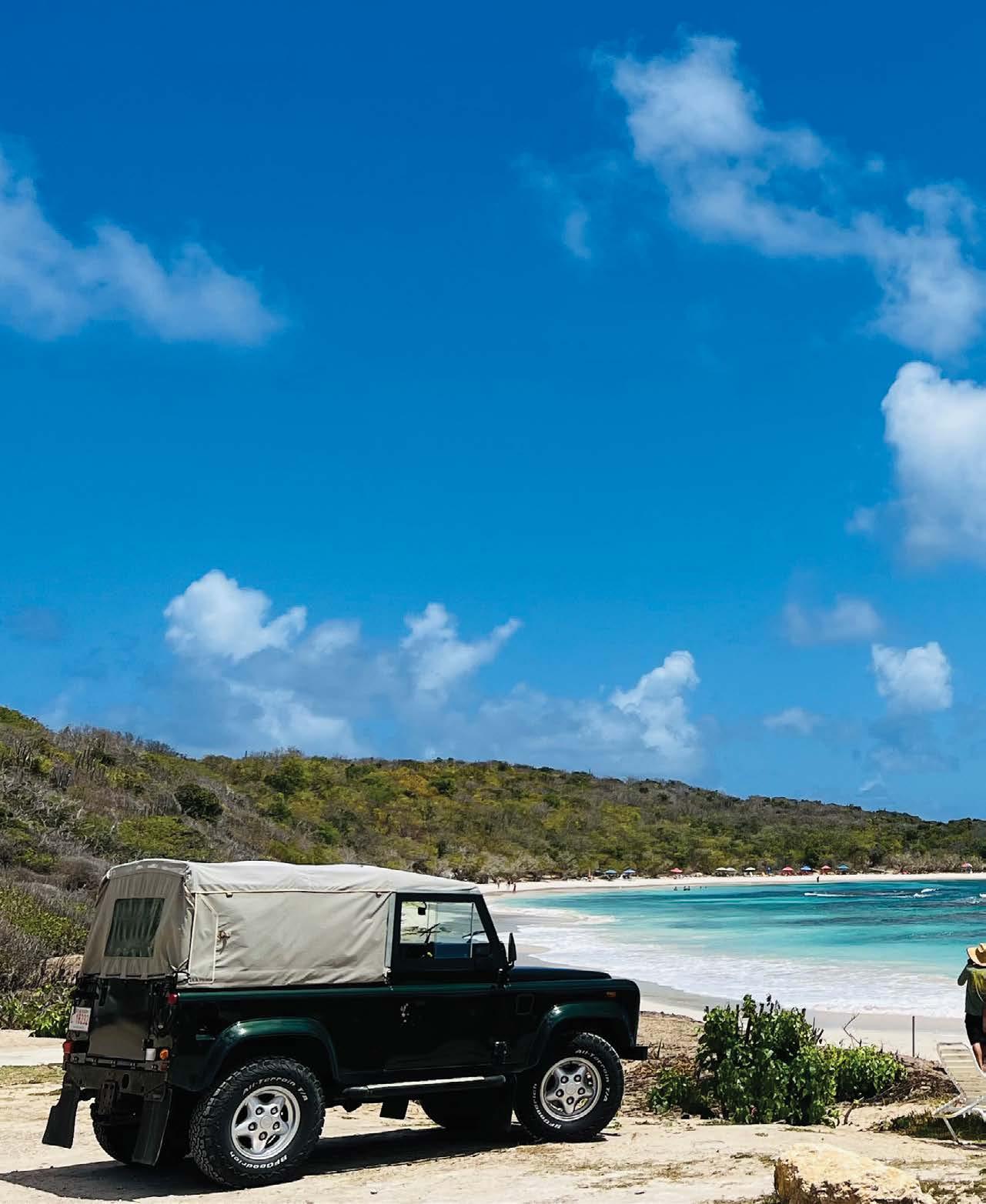
58 THE CITIZEN

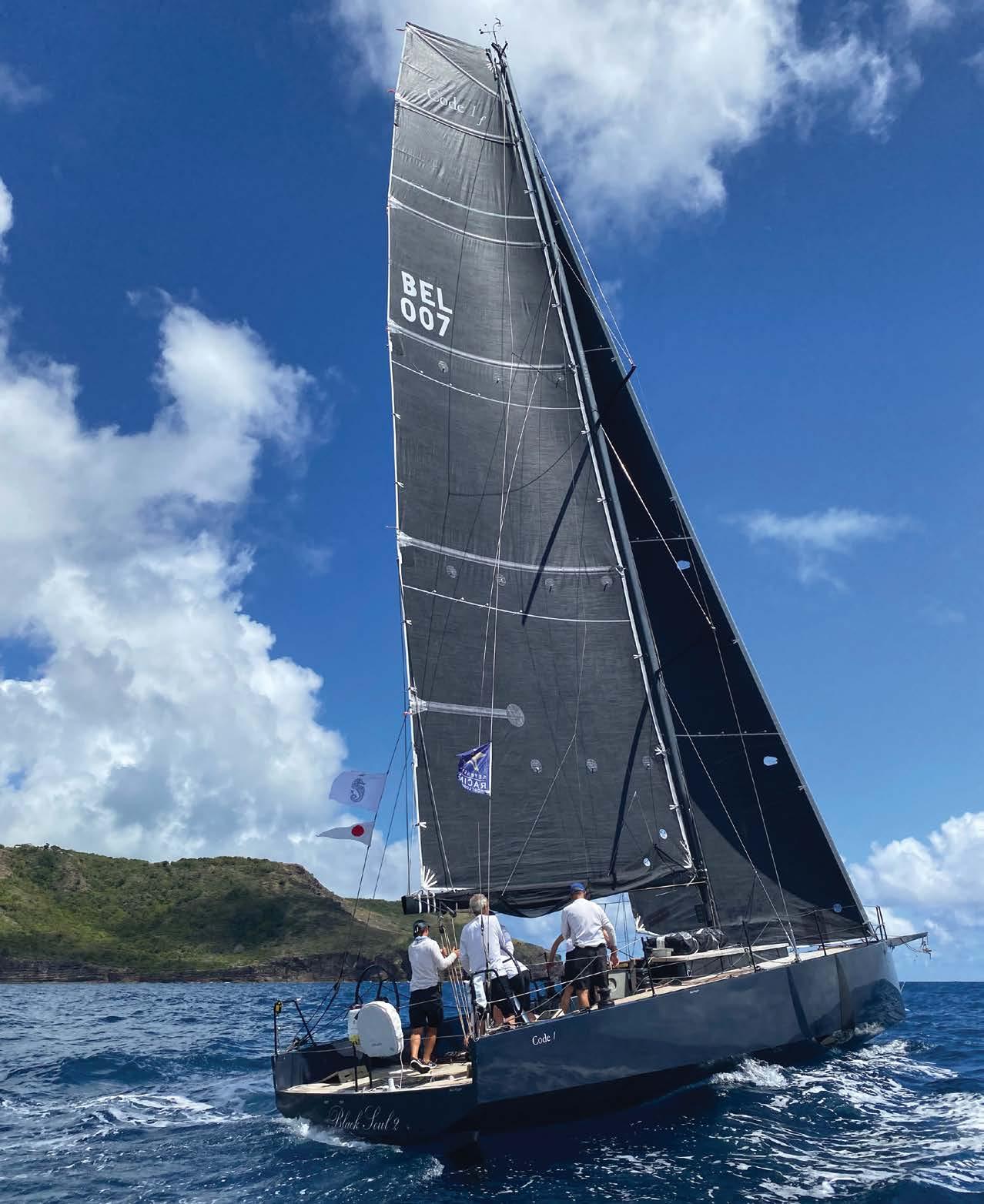

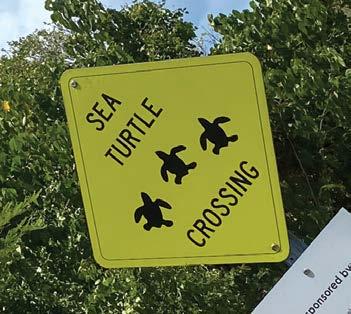
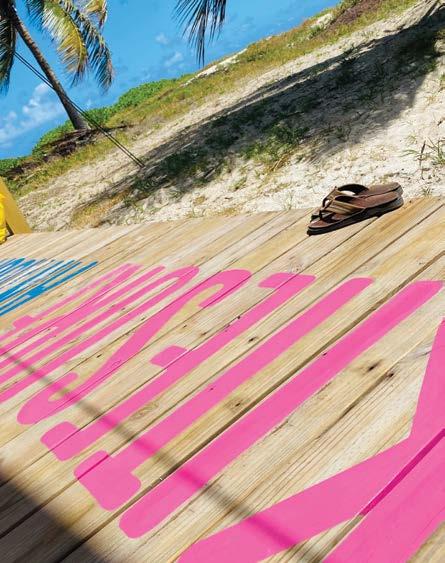
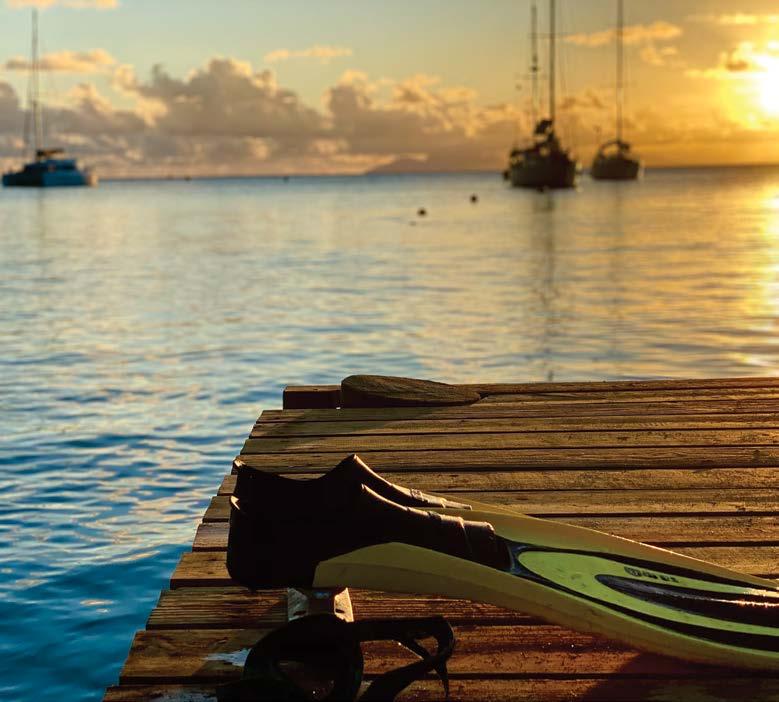
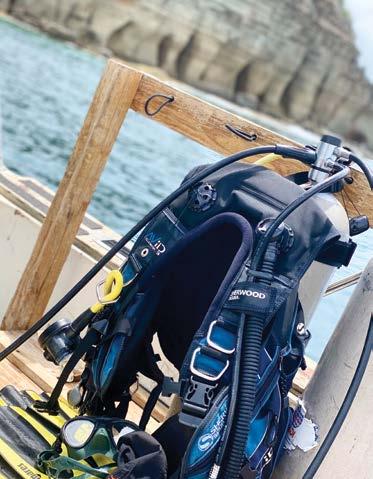
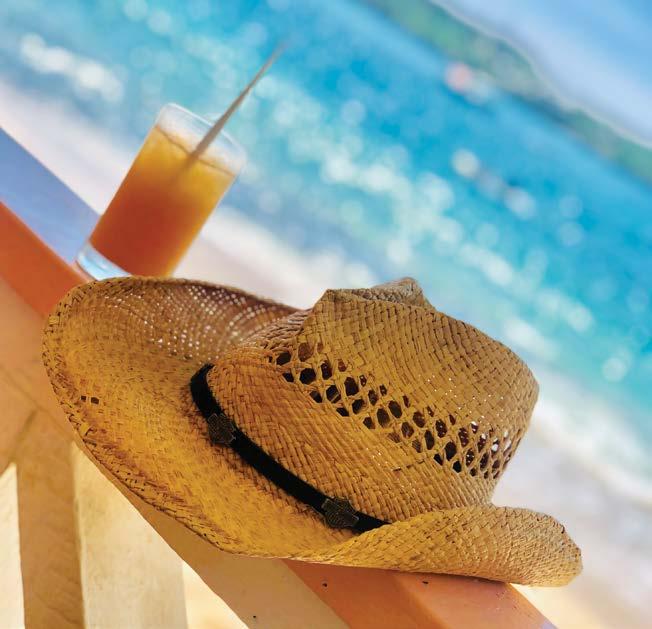
QA & &
How did you develop your interest in photography?
I haven’t always been a ‘photographer’. However, in today’s world, it is so easy to take photos with our phones at any time. Personally, I never really liked to walk around with a camera.
Your photos portray a different side of Antigua than the usual beach and sea views. What do you want to capture through your images?
I have my perspective like every photographer does, whether they are professional or not. I also like taking photos of the sea, as it changes every minute, as well as anything that catches my eye.
Who or what is the most significant influence on your photography?
I just take a picture when I feel inspired.
Which of your photos means the most to you and why?
I would say, perhaps, the pictures I haven’t taken. I have those in my head, and sometimes it’s important for me
to just enjoy the moment without taking a picture. All photos mean something to the person who has taken them. Those I don’t like, I delete without thinking.
What would be your dream subject matter?
I simply like taking pictures of what I see, what I want, and what I feel. I don’t particularly like taking photos of people; they are (almost) never happy with how they look.
Where is your favourite spot on the island?
The whole island has beautiful views and a wonderful way of life, whether people are working or having fun. But my favourite place is the restaurant Casa Roots for the food, the atmosphere and the beach.
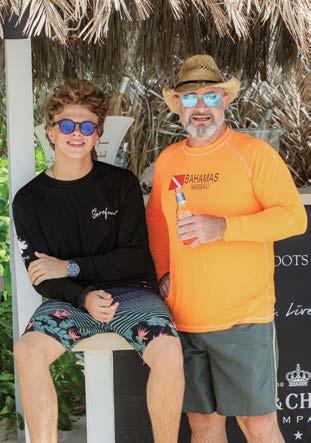
What makes Antigua & Barbuda such a special place?
I think it’s the people; they are relaxed and laid back. Of course, the beaches are fantastic, but we don’t live on the beach. There are so many things that make Antigua & Barbuda such a special place.
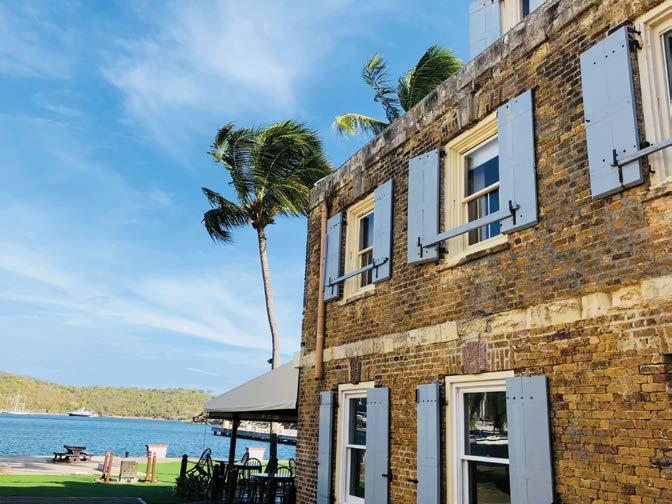
62 THE CITIZEN
To view more of
work, check out Instagram.com/frans_antigua
François Geleyn’s
Owning a second home is your key to a world of travel

Interview
Andi Oliver
Andi Oliver is a familiar face in the UK. As a chef, television and radio broadcaster, and restaurateur, she is best known for appearing on the popular BBC cooking show, the Great British Menu as a judge and, more recently, as the programme’s presenter. Born in England to Antiguan parents, Andi started her career as a singer in the group Rip, Rig and Panic with her brother Sean and great friend, the renowned artist Neneh Cherry. A regular visitor to the island, The Citizen caught up with Andi on a recent visit to learn more about her heritage and passions.
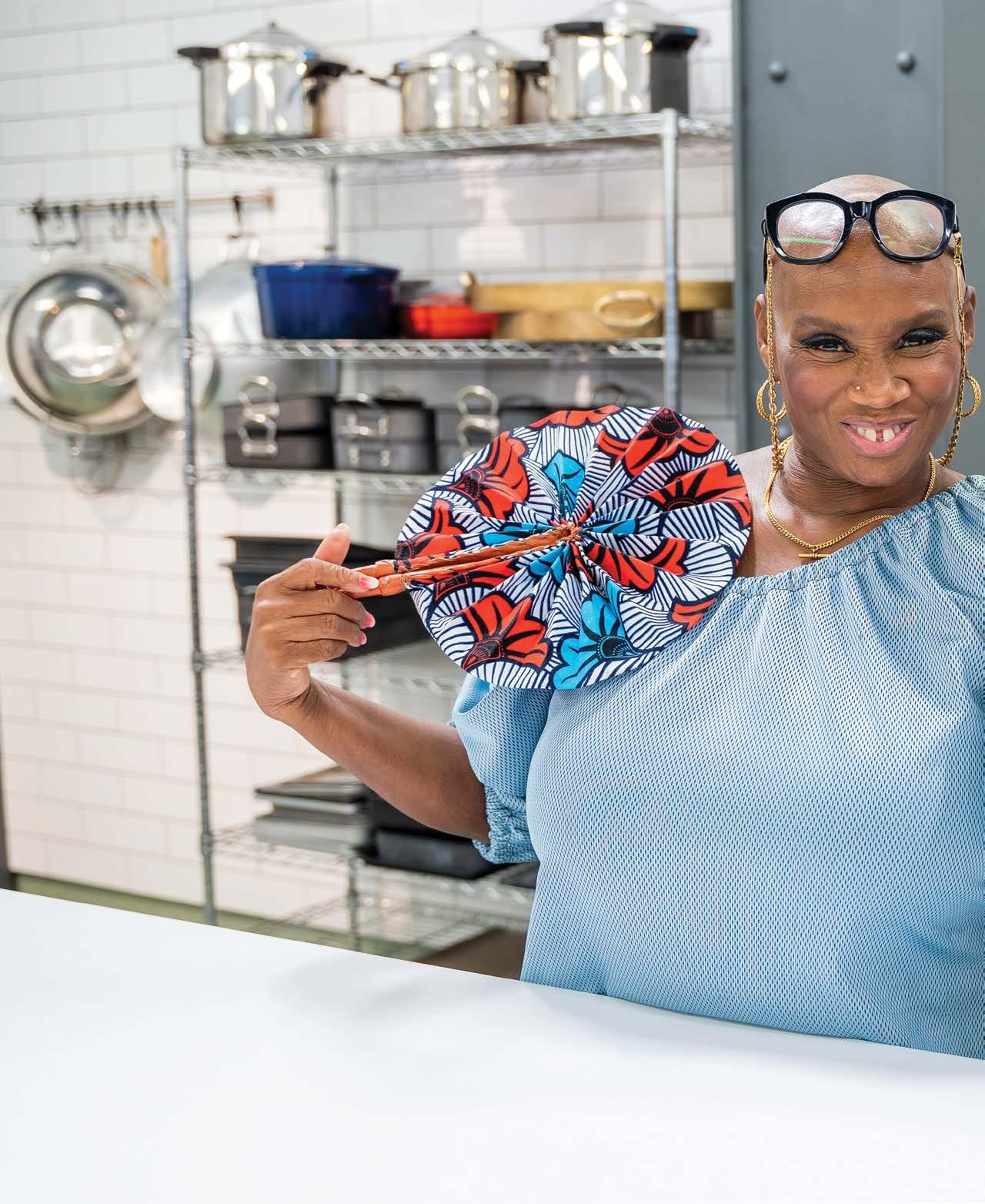
You are here in Antigua at the moment. Do you have plans for any collaborations here on the island?
We have many plans here, but since we don’t know what we will be able to deliver given how things are in the world, we’re breaking them down into smaller parts to see how we go. But they are centred around food and music. Cultural exchanges are essential to nurture and rebuild communities and keep them together. I think community is at the heart of everything, and it’s vital that it remains cohesive and connected. In 2020, we came to Antigua intending to stay for four weeks. However, things changed no sooner than we arrived, and travel to and from the island was restricted. Since we were staying in a lovely house in Turtle Bay, we decided not to leave and were actually here for three months. I am usually so busy that I don’t get time to think and write, so it was an absolute blessing for me to have that time. I started jotting down the ideas and thoughts I’ve been having for a while about a book. Because the time difference was only four hours between the UK and Antigua, I worked very effectively and productively. When you go to bed early here, you get up at five or six, and so by midday, you’ve done all your work, and you’ve got the rest of the day to do wonderful things and enjoy the island. I never wanted to leave. I think I will live here eventually as I love it so much.
The Caribbean with Andi and Miquita was broadcast earlier this year on the BBC in the UK. Over the two programmes, you and your daughter visit Antigua & Barbuda and Barbados to learn more about your heritage. What was the experience of making this mini-series?
I’ve never had such an incredible response to any work I’ve ever done; it’s been an absolute outpouring of love and appreciation. For many people, having people with Caribbean heritage telling Caribbean stories and giving Caribbean people centre stage is so important and not what they’re used to seeing. I feel incredibly proud of the programme and to have been able to do it with my daughter was such a gift. But more than that, it’s been transformative. We did a DNA test in the programme. It turns out I am 38 percent Nigerian; the rest is made up of Malian, Beninese and Togolese heritage with nothing from the indigenous

65 ISSUE 14 • AUGUST 2022
Caribbean people. It was incredibly moving when I saw the journey that the slave ships had taken. Although before this I knew intellectually and academically that we were descended from enslaved African people, after this, I could feel our ancestors so powerfully. Although I cried and cried, heartbroken for their loss of dignity, it also made me feel very powerful thinking of what we have now. It’s almost like giving them back their name and the beauty that was taken from them.
That is why cultural exchange is so important for me. You want to do projects that do well and feed into the economy, but there must be emotional truth at its heart. When we tell stories about people from the African diaspora, it’s about their pain, trouble and difficulties. We forget to celebrate the beauty and powerful magnitude of what we’ve overcome to get to where we are today. It’s an extraordinary story, and I feel very driven to tell it.
Did this journey help you discover Antigua in a different way?
I certainly feel connected to Antigua, the Caribbean and Africa in a new way, so I am now more connected to myself. I’ve still got a lot of family here, and we were able to spend proper time with them, listening to stories, which helped us understand who we are. Interestingly, it’s all gone full circle. Our parents left Antigua to go to Britain to give us opportunities, and now, with those opportunities we want to come back and learn about Antigua. It’s a beautiful exchange of generations mirroring each other.
What was your impression of Barbuda?
place to eat is called Complements to the Chef on Potter’s Main Road, run by Simone from Guyana. She makes a wonderful Guyanese pepperpot. Her food is special as it tastes as if it comes from someone’s heart, not someone’s head. My favourite dishes are Antiguan pepperpot; I have my grandmother’s pepperpot recipe. I also love fungee and saltfish; that is incredibly soothing for me. I also love goat water, and rotis.
Food is now your thing, but you started as a musician, singing with Neneh Cherry no less. How did you move away from music to food and broadcasting?
I’ve always cooked, and Neneh and I always cooked together; it’s like our language of love. You can’t cook with everyone – it’s like dancing. You might both be good dancers, but that doesn’t mean you’re not going to stand on each other’s feet. But she and I are like cooking twins. Food and music are interchangeable. You need to have heart at the base of both. Otherwise, they’re pointless and hollow. When I moved into broadcasting and television, Neneh and I, in fact, did a cooking show for the BBC. I then started to do supper clubs and got deeper into learning more about cooking, and I guess you could say I became completely immersed in culinary adventure. It’s a great way of connecting with people as well. If I’m going to meet with people, I either cook with or for them – it’s a way to the heart. It relaxes people.
WHEN WE TELL STORIES ABOUT PEOPLE FROM THE AFRICAN DIASPORA, IT’S ABOUT THEIR PAIN, TROUBLE AND DIFFICULTIES. WE FORGET TO CELEBRATE THE BEAUTY AND POWERFUL MAGNITUDE OF WHAT WE’VE OVERCOME TO GET TO WHERE WE ARE TODAY. IT’S AN EXTRAORDINARY STORY, AND I FEEL VERY DRIVEN TO TELL IT.
I was actually amazed about how different Barbuda is. So tiny and wild, and the people are beautiful. I met a wonderful restaurant owner called Jackie Breezer, who taught me how to cook Barbudan fat fish. I was fascinated by the food and how I’d never heard of many of the dishes. It’s a mere 15-minute flight from Antigua, and it’s a whole different country. I met people passionate about their island, and I like how they genuinely commune with one other. I think it’s a beautiful place and I would like to spend more time there.
What do you like eating in Antigua?
I am definitely a side-of-the-road food lover. My favourite
Tell us about your restaurant Wadadli Kitchen in London?
It’s a kind of moveable feast, really. Wadadli is a pan-Caribbean celebration. When you look at food from across the region, the influences are so vast: Portuguese, Spanish, Chinese, Indian, English, and Arabic food are mixed with an African hand. And it’s glorious! People have a simplistic idea of the Caribbean and think it’s just Jamaica. They also have a simplistic idea about Caribbean food, and so Wadadli Kitchen’s mission is to celebrate, uplift and explore the breadth and depth of Caribbean culinary adventure and excellence. It’s an endless journey and adventure.
What is your motto in life? Be kind, be good, be truthful.
66 THE CITIZEN
Interview
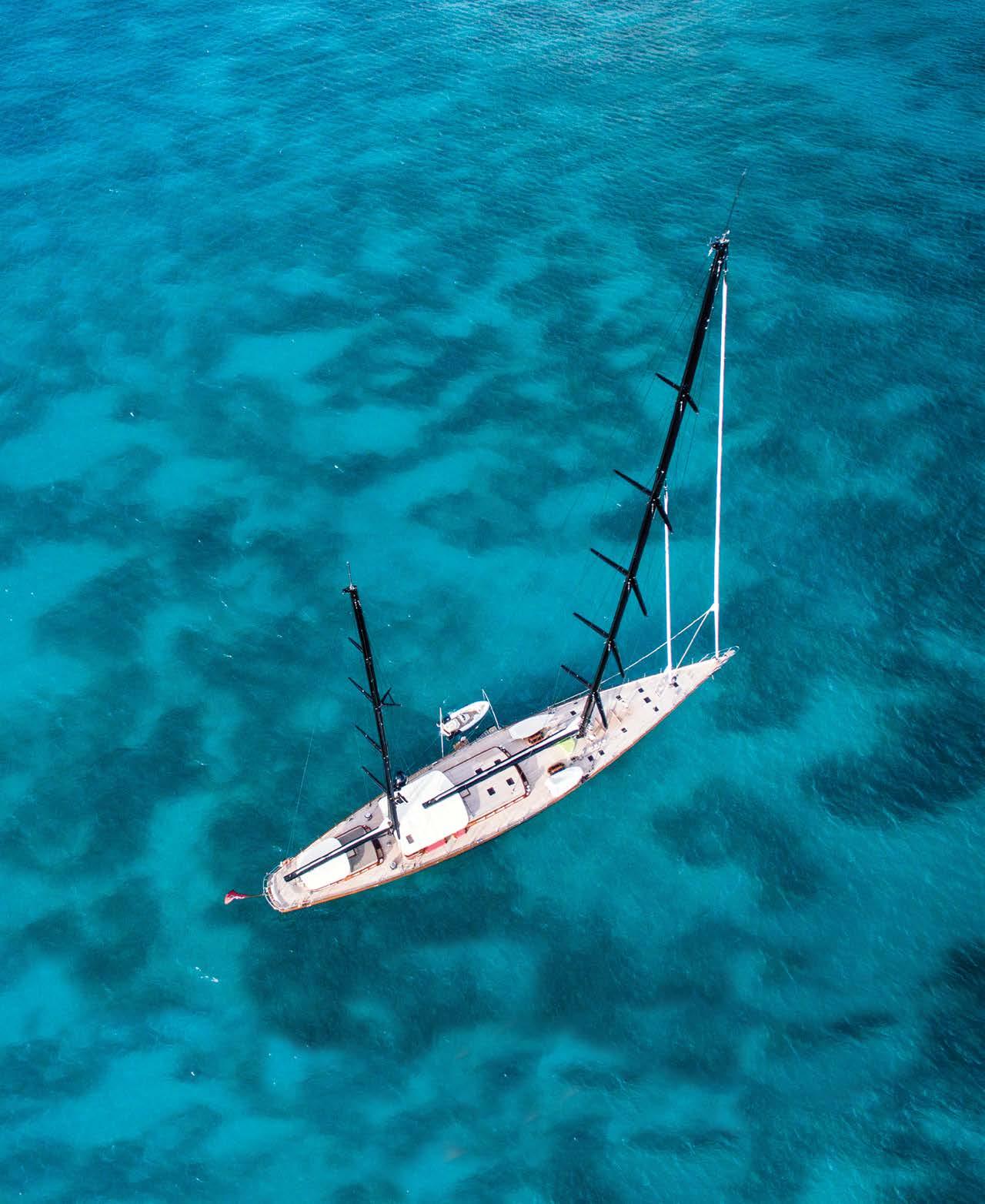
Offer your family mobility insurance in today’s ever-changing geopolitical landscape
A WOMAN’S WORLD
by Maria Blackman
“Necessity is the mother of invention”, and it is against this backdrop that the Caribbean woman has often found herself in a transformative position.
WWhen Caribbean women determinedly seek opportunities to better themselves and support their families, the desire has often fuelled inventions and innovations.
And while the words “invention” and “innovation” may conjure up ideas of some elaborate ground-breaking scientific or technological development, the MerriamWebster dictionary defines invention as “a device, contrivance, or process originated after study and experiment.” On the other hand, “innovation can refer to something new or to a change made to an existing product, idea or field.”
Indeed, there is no denying that during the C19 pandemic, as tourism-driven economies across the Caribbean faced collapse and employment dwindled, the need to re-invent themselves was evident amongst women in society. Innovation was vital to survival, and female entrepreneurs popped up throughout
neighbourhoods and communities. They created products and services that added value to existing goods and services and simplified complex processes.
Now, the Caribbean, known for its vibrancy, tropical weather, and of course, stunning beaches, is not new to inventions. As some may say, “We little but we tallawah” (powerful). Caribbean inventions that appeared on online listings with acknowledgements to their creators include the search engine, the barbecue, the steelpan, rum, bitters - the list, while not exhaustive, goes on.
Today, when it comes to modern-day inventions by Caribbean women, there is a need to create a culture that recognises and values women’s creations; an environment that provides our women with the crucial assistance in navigating the business landscape that allows them to move forward with their business operations and grow their position within the national, regional and, should they aim for the stars, global marketplace.
Women operating a small cottage industry business and those seeking to develop big business ideas will tell you some of the challenges they face, ranging from financing to protecting their intellectual property or bringing their product to market.
With shifting mindsets and the emphasis and importance on strong collaborations amongst private and government stakeholders with programmes that nurture female entrepreneurs, a positive ripple effect will be felt in societies and economies that will act as a further catalyst to their empowerment.
In the United Kingdom, a women’s group, GlobalWIIN (Global Women Inventors and Innovators Network), has set up a network in recognition of the challenges that females face in bringing commercially viable products to market.
Instrumental in promoting social inclusion and dismantling the gender gap, GlobalWIIN’s mission was to identify and reward female inventors and innovators across the globe and raise their global profile. Their ethos is to facilitate diversity, education and capacity-building while supporting women in taking their ideas into the competitive market.
With that being said, in May 2022, GlobalWIIN hosted the inaugural CaribbWIIN (Caribbean Women Inventors and Innovators Network) conference in Antigua. Dr Bola Olabisi, Founder of GlobalWIIN, said, “The CaribbWIIN platform provided an assembling of ingenious minds where best practices were shared, new knowledge acquired, and research opportunities encouraged.
“This was an exciting time for us as we saw the gathering of women and male champions from across the Caribbean islands and beyond with great intellectual property and an unparalleled capacity to empower, unite and inspire others!”
“Advancing creativity and innovation for resilience in global markets” was the
powerful theme of the 2022 conference, attended by female entrepreneurs, creators, institution heads, government officials, leaders, change-makers and business coaches from across the globe. Discussions focused on the all-important topics of Caribbean women’s creativity and innovation in business and ways to empower regional women on their journey to success in their businesses and careers.
These conversations amongst peers and like-minded women are crucial to those developing new products and concepts. They can be eye-opening and life-changing.
CaribbWIIN also shone the light on those remarkable Caribbean women who, through their tenacious spirit, ideas, and contributions to society in their businesses and careers, have served as an inspiration to others.
As the passion of Caribbean women to innovate continues, it is important to spotlight, celebrate and applaud them, not only in recognition of their accomplishments but to encourage and motivate other women to achieve their goals and push through their developments. Their successors can become mentors since they have traversed the very same path.
CaribbWIIN awarded over 30 females who are making the Caribbean great. From simple technology to highly viable works by exceptional creative women and highly acclaimed social and economic inventions and innovations, the journey to achieving such success is applauded and acknowledged by these prestigious international awards.
So that it may be written and recorded in history and referenced by future inventors and innovators as needed, we also must celebrate the extraordinary Caribbean women honoured at the conference who hailed from Antigua & Barbuda, Montserrat, Martinique, Grenada, the British Virgin Islands, Trinidad & Tobago, Guyana, Jamaica, Dominica, Curaçao, and Bermuda.
The list from Antigua & Barbuda included Refica Attwood and Dr Evelyn Weekes, both environmentalists; couture designer Noreen Phillips; contemporary artist Heather Doram MFA, GCM; technology specialist Mako S. Williams; leadership and business development specialist Janice Sutherland; agri-business owner, Novella Payne (Grandma Aki); and Eleanor Thomas (Miss Ellie), an innovative caterer.
For more information on GlobalWIIN’s CaribbWIIN awardees, go to globalwiin.com/caribbean
69 ISSUE 14 • AUGUST 2022
New citiZen
Since a couple of Antigua’s newest citizens, British-born broadcaster Katie Cooper and her husband Simon met 15 years ago, they have divided their time between their properties in Dublin, Ireland; Verbier, Switzerland; and Corfu, Greece. They have now decided to make Antigua their fourth home and have recently become proud citizens of the islands they have fallen in love with. We caught up with Katie to find out more about why they decided to become Antiguan.
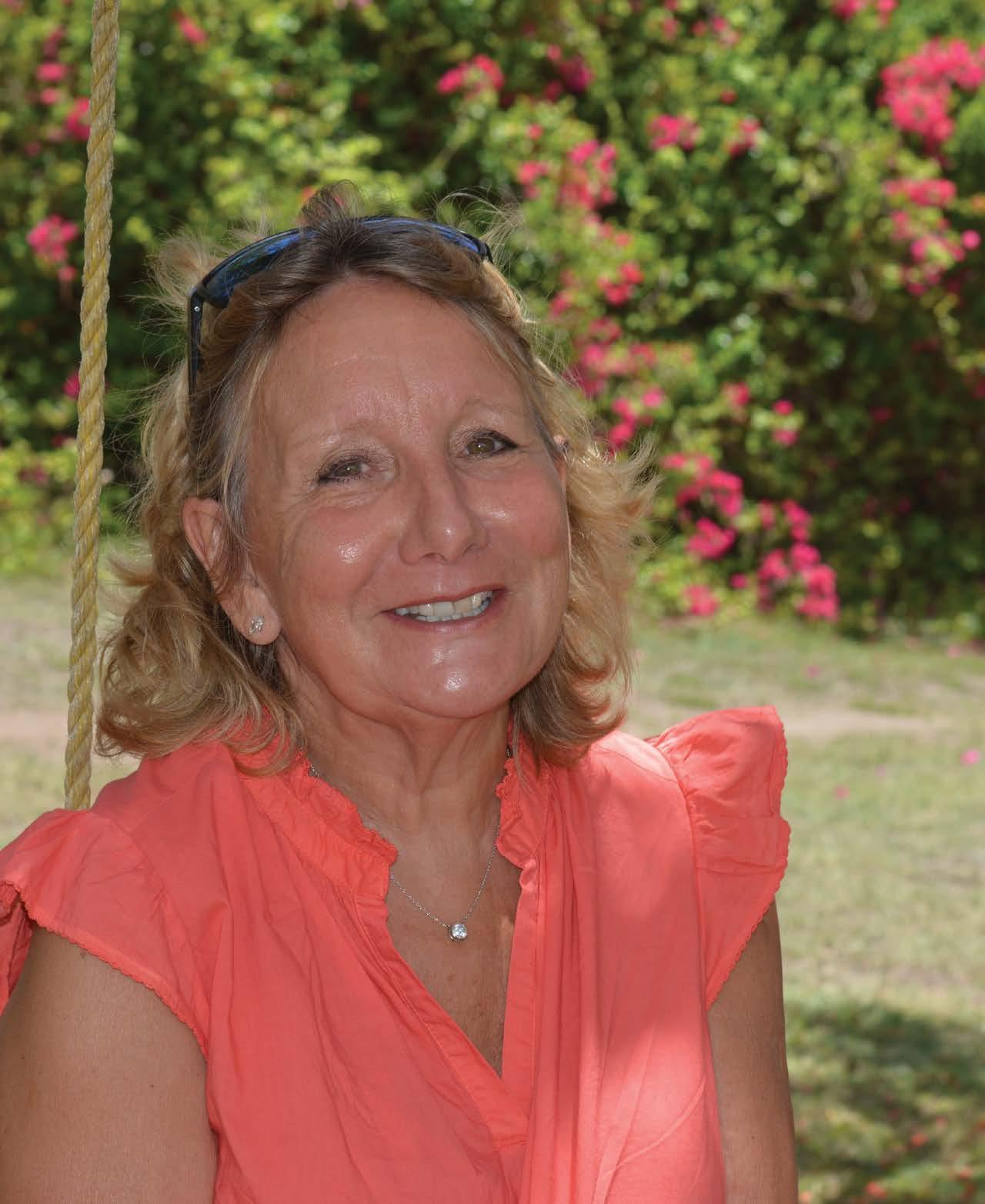
KATIE COOPER
You worked for the BBC for 30 years, and for the past 15 years, you have been what we would call a “global citizen”. Can you tell us a bit about your life before coming to Antigua?
I met my husband just after leaving the BBC. I had bought myself a ruined house in Corfu, which I discovered whilst sailing in Greece. I always wanted a home abroad – little did I know that my final destination would be the Caribbean!
What brought you to Antigua, and what was your first impressions of the island?
Simon and I share a love of travelling, cricket and rugby. In fact, it was cricket that first brought us to Antigua in 2019, where England suffered an embarrassing loss to the excellent West Indies. Despite this, our love affair with Antigua was underway. We made some fantastic local friends with whom we stayed in touch. Their joy of life and openness was something we just loved. The rum punch was pretty good too!
Fast forward to 2020, we found ourselves in Barbados just as borders were being closed down. Seeing the situation back in Europe, we chose to come to Antigua instead. I clearly remember Simon saying, “Well, this will make or break our Antiguan dreams.”
Why did you want Antigua & Barbuda citizenship, and why the National Development Fund option?
We loved our time in Antigua, and with the restrictions in place, we became even more integrated with the local shops and stalls. Our 90 days whizzed by, and so we renewed our visas. However, we soon realised we wanted to “belong” and decided to seek citizenship.
We chose to donate to the National Development Fund (NDF) as we weren’t sure where to live on the island and wanted to keep our options open.
Why did you want to get Antigua & Barbuda citizenship when you already have British citizenship?
A British passport is a valuable commodity. However, taking into account Brexit and the ever-changing scene in Europe, coupled with the fact that we plan to island-hop in the Caribbean, getting Antigua & Barbuda passports made sense.
How have you integrated into Antiguan life?
From my very first contact on the island with Dorina Goodman, we have made fabulous local friends. We are godparents to her son Brayson; we hang out with her father on his farm and are invited to a full-on island wedding next
month. We have also met so many folk from all over the world with fascinating stories about what led them to find and fall in love with Antigua.
Can you tell us about your plans to buy real estate on the island?
The long-term rental is working well just now. I was getting very stressed about houses versus new builds. Where to buy? When to buy? We are open to ideas, and in fact, we are viewing somewhere this week. But for now, as long as we’re here, we’re happy.
How did you find the process of applying for citizenship?
We were recommended Citizens International, although I know there are other companies offering similar services. You can also do a lot of the groundwork yourself. However, they are the experts. And trying to accomplish all the requirements, paperwork, proof of income, etc., from our home in Switzerland would have been a nightmare.
The process takes time and is complex, but that seems only right and proper. We were asking to become citizens, and that, of course, is not an overnight fix, so I am glad Antigua is so thorough.
What is it about Antigua that you love so much?
There’s a great community spirit. The weather is wonderful, and the pace is great. Our days seem so full, but we still make time for proper training and fitness and swim every day at Pigeon Point. I always felt guilty about taking time out in Europe.
I’ve also discovered an interest in indigenous natural medicine after our trainer introduced me to the benefits of sea moss, neem oil, oregano oil and the like. I think there are great opportunities here for health and wellness tourism and potentially exporting these products around the world.
Where is your favourite place on the island?
I have so many of them. But right now, sitting under our flamboyant tree in the garden with a local rum in hand seems like a pretty good place to me!
What would you say to anyone thinking of seeking citizenship in the twin islands?
I would say, just do it; it’s the best decision we’ve made in a long time. We’re both very proud to call the islands home and to use our passports.
As our children were over 30, they didn’t qualify, but if they bless us with grandchildren, the NDF option allows for four passports in total. So, there are two more potential citizens in the pipeline!
71 ISSUE 14 • AUGUST 2022
Arts &cu ltu re
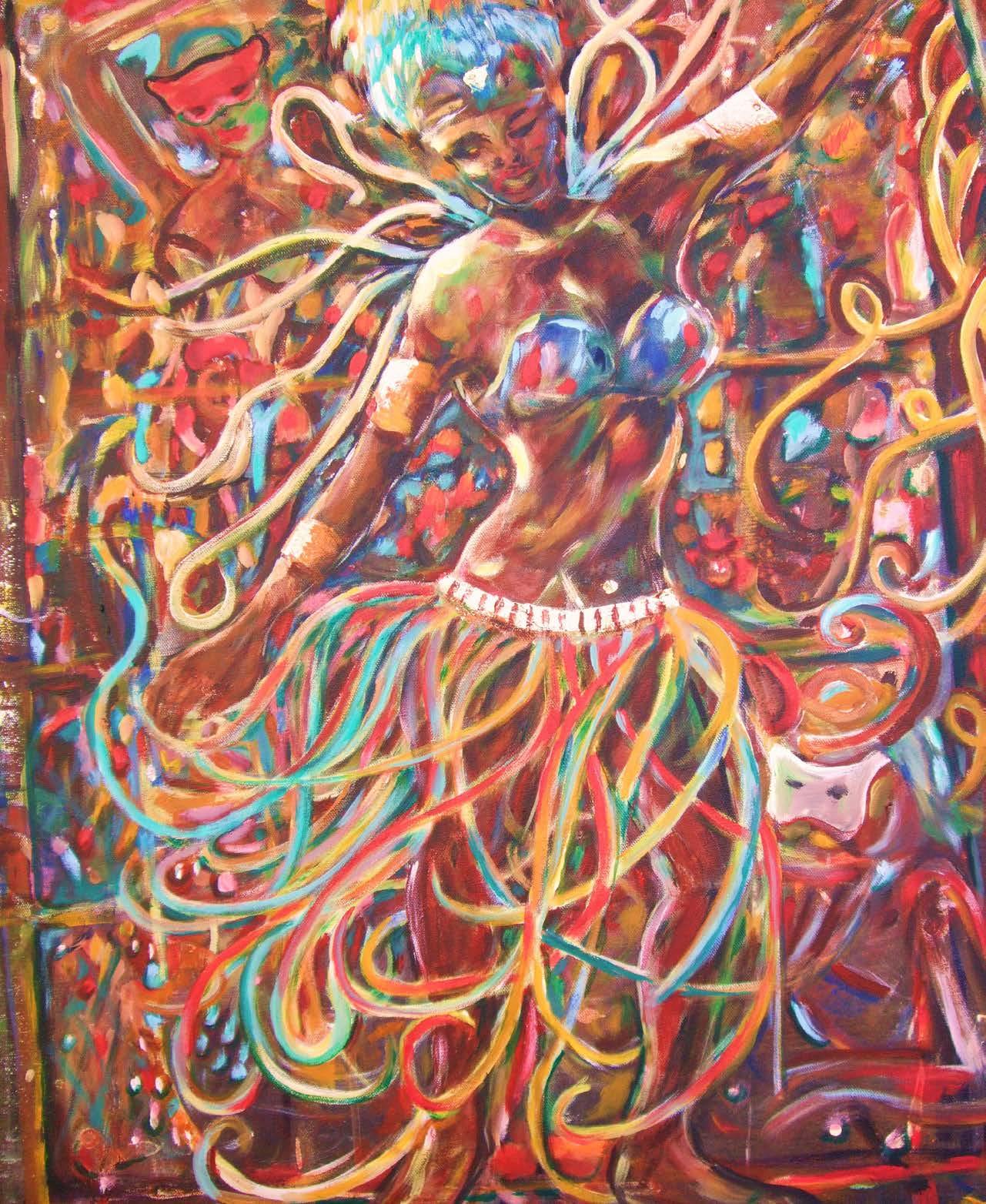
BBefore moving to England with her family in her early teens, Marie’s childhood was spent in the south of Ireland with her mother and siblings, where she enjoyed all the nostalgic pursuits of country life, the rich colours of nature and the oldfashioned farming techniques.
She always had a passion for art, but as often happens, the practicalities of life took preference as she eventually married and had two children to raise. However, in 1984 the opportunity arose to travel to the Caribbean. And it was there she rediscovered her desire to teach herself to paint, inspired by the wonderful colours, the natural light of the islands and the beautiful people with their warm and welcoming smiles. The market scenes and local life let her be unencumbered in her storytelling of the old Antigua, which in a way, was so reminiscent of her childhood.
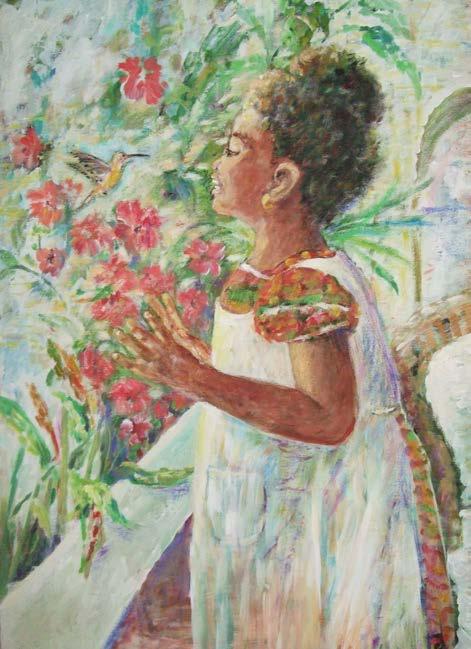
Her work embraces the walls of many of the homes and hotels on the island and beyond.
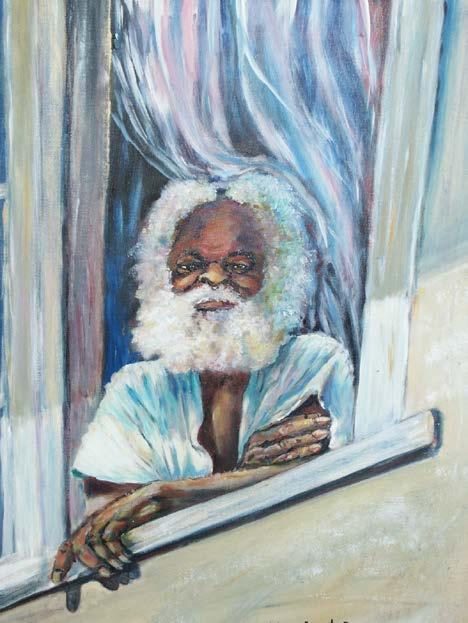
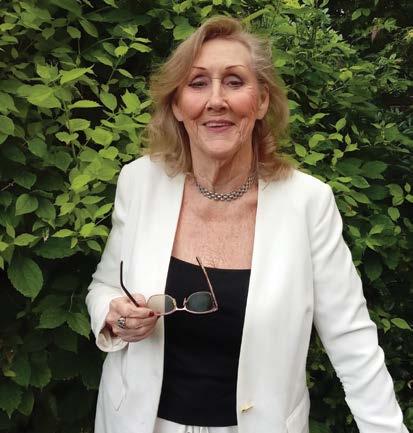 Carnival Girl
Catching Hummingbirds
Watching the World Go By
Marie Kinsella
Carnival Girl
Catching Hummingbirds
Watching the World Go By
Marie Kinsella
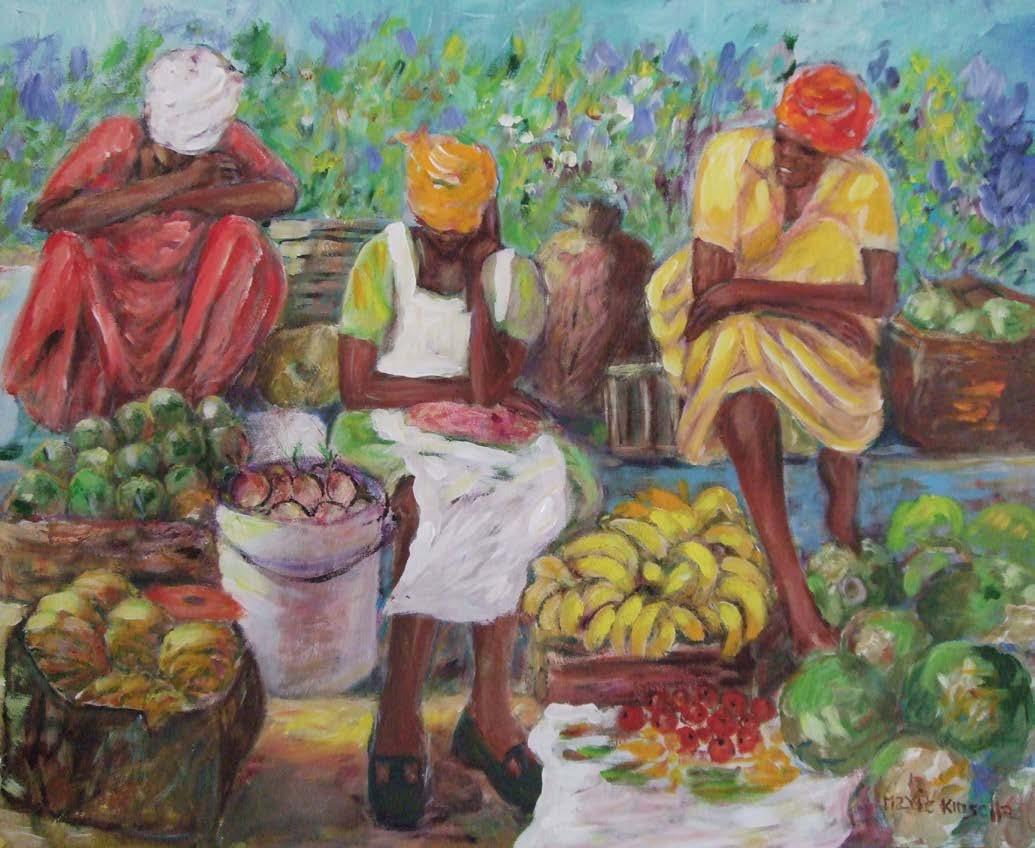
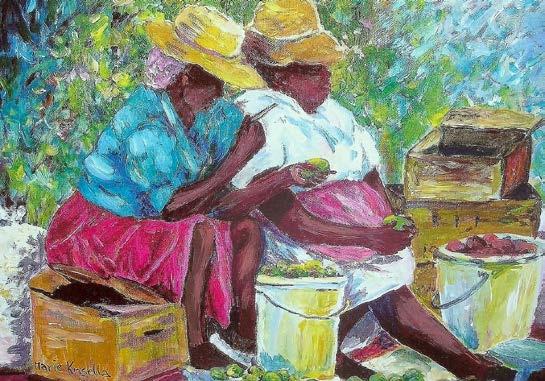

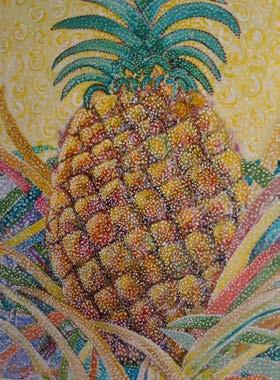
74 THE CITIZEN
Arts&culture
Best Friends Market
Ladies
Antigua Black Pineapple
Market Ladies Cat Napping

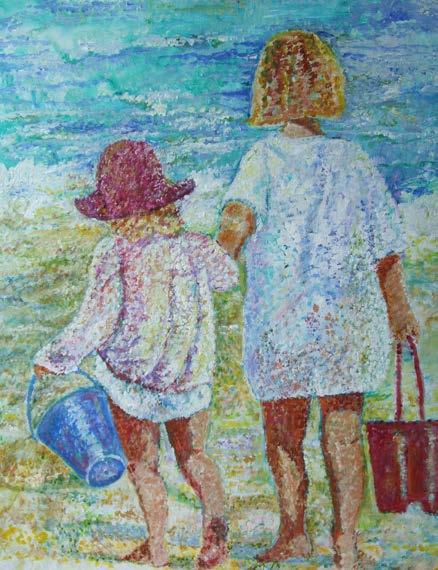
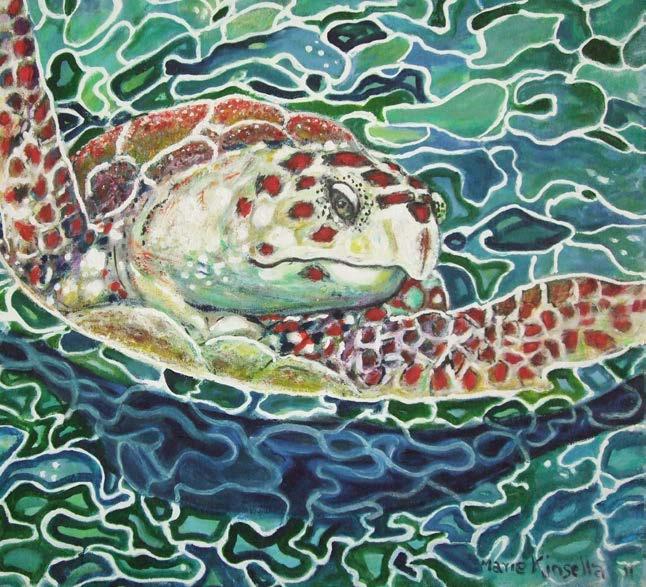
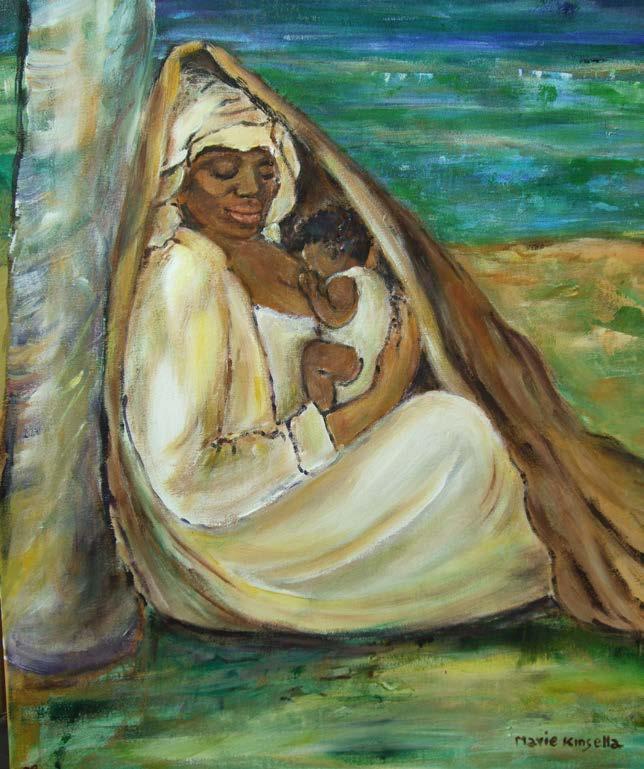
75
Bath Time
Turtle
Protective Love
ISSUE 14 • AUGUST 2022
Ready for the Beach
conservation
by Shanna Challenger Offshore Islands Conservation Programme Coordinator Environmental Awareness Group
Reflecting on the Antiguan Racer’s Remarkable Resilience
It’s not easy to get people to fall in love with snakes. For many of us, our first introduction to snakes was in the Bible, where they are portrayed as loathsome creatures known for their crafty and dishonest ways. With this fear interwoven into the fabric of our culture, how can one then convince people to transform this innate fear into unconditional love?
TThat’s exactly what the Environmental Awareness Group (EAG) and our partners were tasked with to save the world’s rarest snake from extinction. We’ve all heard the saying, “Christopher Colombus sailed the ocean blue in 1492.” But while this tale is true, in addition to sailors and artists, he brought rats too. These unwanted stowaways were transported to the West Indies in early travellers’ ships, where they soon adapted to their new homes and began wreaking havoc on native wildlife. The rats quickly became public enemy number one as they decimated the ‘cash crop’ of the times – sugar cane fields. Desperate for a solution to their problems, cane growers introduced Indian mongooses to counteract the growing plague of rats. This initially worked well, but the life histories of these species were incompatible, given that mongooses are primarily diurnal (active in the
day) while rats are nocturnal (active at night). Soon the mongooses moved on to eating what was most readily available – the native wildlife. Compounding the impact of these harmful invasive alien species (IAS) was the boom in agriculture, which led to widespread deforestation across Antigua & Barbuda. The combined effects of the invasive mammalian predators and habitat loss proved to be too much to bear, leading to the extinction of several native species, including the burrowing owl, the Antiguan parrot and the Antiguan curly-tail lizard. However, one species was able to withstand these impacts and serve as the inspiration for this very article.
The Antiguan racer (Alsophis antiguae) is a harmless lizard-eating snake that was almost driven to the brink of extinction due to decades of relentless hunting by the rats and mongooses. Once dubbed the world’s rarest snake,
the Antiguan racer was erroneously declared extinct in 1936 as its population had significantly declined and was extirpated from mainland Antigua & Barbuda. It wasn’t until the early 1990s that a group of determined local volunteers found an Antiguan racer on Great Bird Island – a tiny offshore island with an area totalling only 8.4 hectares. There were no mongooses on this island which meant the racers could survive there, but the huge population of rats was causing severe problems for the species. A rapid assessment by researchers in 1995 revealed that a mere 50 individuals
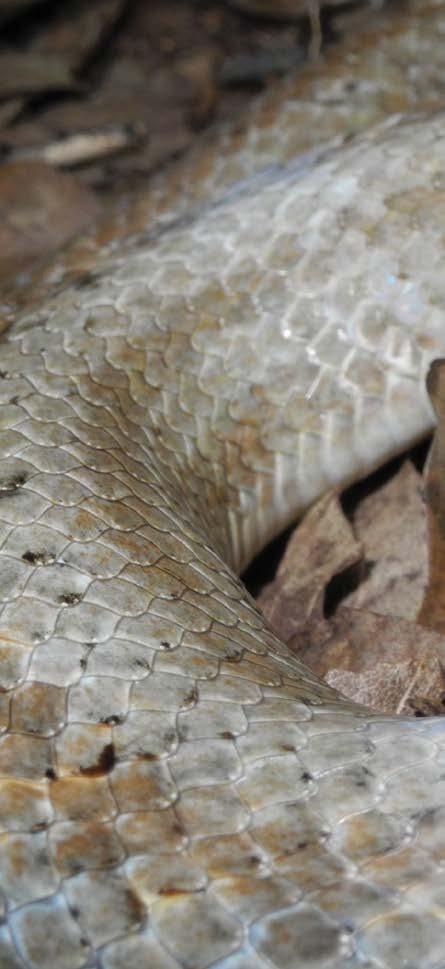
76 THE CITIZEN
remained on the planet, with more than 50 percent of the snakes observed with tail injuries from rat bites. Thus began the quest to save this special snake from imminent extinction as the Antiguan Racer Conservation Project (ARCP). With an overwhelming feeling of national responsibility and an uncertain future for the racers, a small group of EAG and local forestry staff sought technical expertise from international organisations: Fauna & Flora International (FFI), the Durrell Wildlife Conservation Trust, Island Resources Foundation and Black Hills University to eradicate rats from Great

Bird Island. Using best practices for rat eradication in tropical islands, the eradication consisted of deploying stations with a waxy anticoagulant rodenticide bait across the island - the eradication lasted seven days and was the first such project in the Caribbean. With the rats removed, the snake population remarkably rebounded, more than doubling within 18 months. Unexpected but welcome benefits were also observed as populations of lizards and breeding seabirds increased simultaneously. But, after the initial boom in numbers, the ARCP team noticed a decline in the
racer’s population. In the absence of the rats and constrained by the size of the island, the snakes had reached their carrying capacity and were now being restricted by the number of prey species (lizards) and the availability of space for burrowing sites. The entire global population being restricted to one island was also cause for concern as one major event could wipe the population off the planet. The need became crystal clear – it was time for reintroduction. The only way to truly secure a long-term future for this critically endangered species was to increase
ISSUE 14 • AUGUST 2022 77
its numbers as quickly as possible by expanding the population’s range. Fortunately, Antigua & Barbuda has over 50 offshore islands and cays that the racers likely inhabited in the past. Before offshore islands could be identified as potential candidates for reintroduction, eradicating invasive mammalian predators was a crucial prerequisite. These eradications needed to be conducted not only on these core islands but also on other neighbouring islands, which posed a significant reinvasion risk if the IAS used them as stepping-stones. Thanks to the successful eradications and reintroductions, today the Antiguan racer can now be found on four different islands, with a population of over 1,200 individuals. The wealth of animals and plants that the offshore islands support is not only nationally significant but notable on a regional and global scale. As biodiversity hubs, they are a safe haven for threatened species such as the near-threatened (NT) Antiguan ground lizard and the endangered green sea turtle and support breeding
and a clean, healthy space for locals and visitors to enjoy. The OICP’s core pillars are island restoration, capacitybuilding, environmental education and scientific research, and it has worked relentlessly to demonstrate the offshore islands’ ecological and economic value. The programme continues to conduct eradications, most recently in 2021 with the eradication of Green and Smith Islands and building local capacity with over 50 percent of the team being Antiguan. Post-eradication, these volunteers have become Invasive Species monitors and visit the offshore islands every five weeks to conduct biosecurity monitoring checks to detect any signs of reinvasion by invasive mammals. The EAG recently launched “Into the Wild with the EAG” - a virtual field-trip journey into Antigua & Barbuda’s exceptional ecosystems. The three-part video series (available on the Environmental Awareness Group’s YouTube) seeks to teach children about the value of their environment, with a specific focus on the species and ecosystems within the NEMMA. Accompanying the videos
The tale of the racer is far from over, but its survival depends not just on the EAG but on you and me. We all have a role to play in keeping Antigua & Barbuda’s offshore islands invasive species-free and ensuring this species is around for generations to come.
populations of nine species of seabirds, including brown noddies and bridled terns. Locally, these islands are located within the largest marine reserve in Antigua & Barbuda, known as the North-East Marine Management Area (NEMMA). Internationally, these islands are classified as a Key Biodiversity Area (KBA) and an Important Bird and Biodiversity Area (IBA). These designations safeguard the most critical sites for nature on our planet and show how genuinely invaluable these islands are. Recognising the tangible benefits to wildlife populations and their associated habitats, the project shifted from a species approach to an ecosystem approach and expanded its scope as the Offshore Islands Conservation Programme (OICP). This award-winning programme is a collaborative partnership between the EAG, Fisheries Division, Department of Environment (DOE), Ministry of Tourism and Investment, Forestry Unit, National Parks Authority, and FFI. This partnership is working towards the vision of “adaptively managed, flourishing offshore island ecosystems where wildlife thrives, people are meaningfully engaged, and sustainable use is valued and practised for the benefit of all.” Between 1995 and 2021, 16 offshore islands have been cleared of rats (and, where present, mongooses and goats), creating over 100 hectares of safe habitat for local and migratory wildlife to recover
are Student Activity Booklets and Teachers’ Resource Guides, which were carefully curated to complement the primary school curriculum. The narrator of the booklet is none other than Acer the Antiguan Racer, who takes the students on this educational journey – further destigmatising the fear of snakes. To date, over 1,200 Grade Four students and 78 teachers from across Antigua & Barbuda have been recipients.
The tale of the racer is far from over, but its survival depends not just on the EAG but on you and me. We all have a role to play in keeping Antigua & Barbuda’s offshore islands invasive species-free and ensuring this species is around for generations to come. Within the last year, the OICP’s conservation efforts have been supported by the Global Environment Fund (GEF), the US Fish & Wildlife Service Neotropical Migratory Bird Conservation Act and the Sandals Foundation. However, these sources of funding are finite, and the work of the OICP is ever-expanding. The EAG is currently in pursuit of funding to conduct a rapid population survey of the Antiguan racer across its entire range, which will be instrumental in developing a Conservation Action Plan that focuses on this keystone species.
If you are interested in donating to local conservation efforts or joining/ volunteering with the EAG, find us on all social media @EAGAntigua.
78 THE CITIZEN
conservation
DOGS & CATS OF ANTIGUA is a registered non-profit working to assist animals in distress and increase their protection through feeding, veterinarian assistance, spay and neutering, fostering and rehoming. Many of our rescued dogs and cats are rehomed in the US and Canada. We need passengers to fly with them from Antigua to New York, Newark, Philadelphia, Boston or Toronto.
If you’re travelling on booked tickets to any of these destinations with either Air Canada, American Airlines, JetBlue, United Airlines or WestJet, please help us by becoming a Travel Buddy to our furry friends and leave only their pawprints behind.
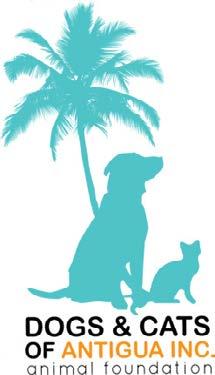
www.dogsandcatsofantigua.com/flight-volunteer www.facebook.com/dogsandcatsofantigua www.dogsandcatsofantigua.com/donate
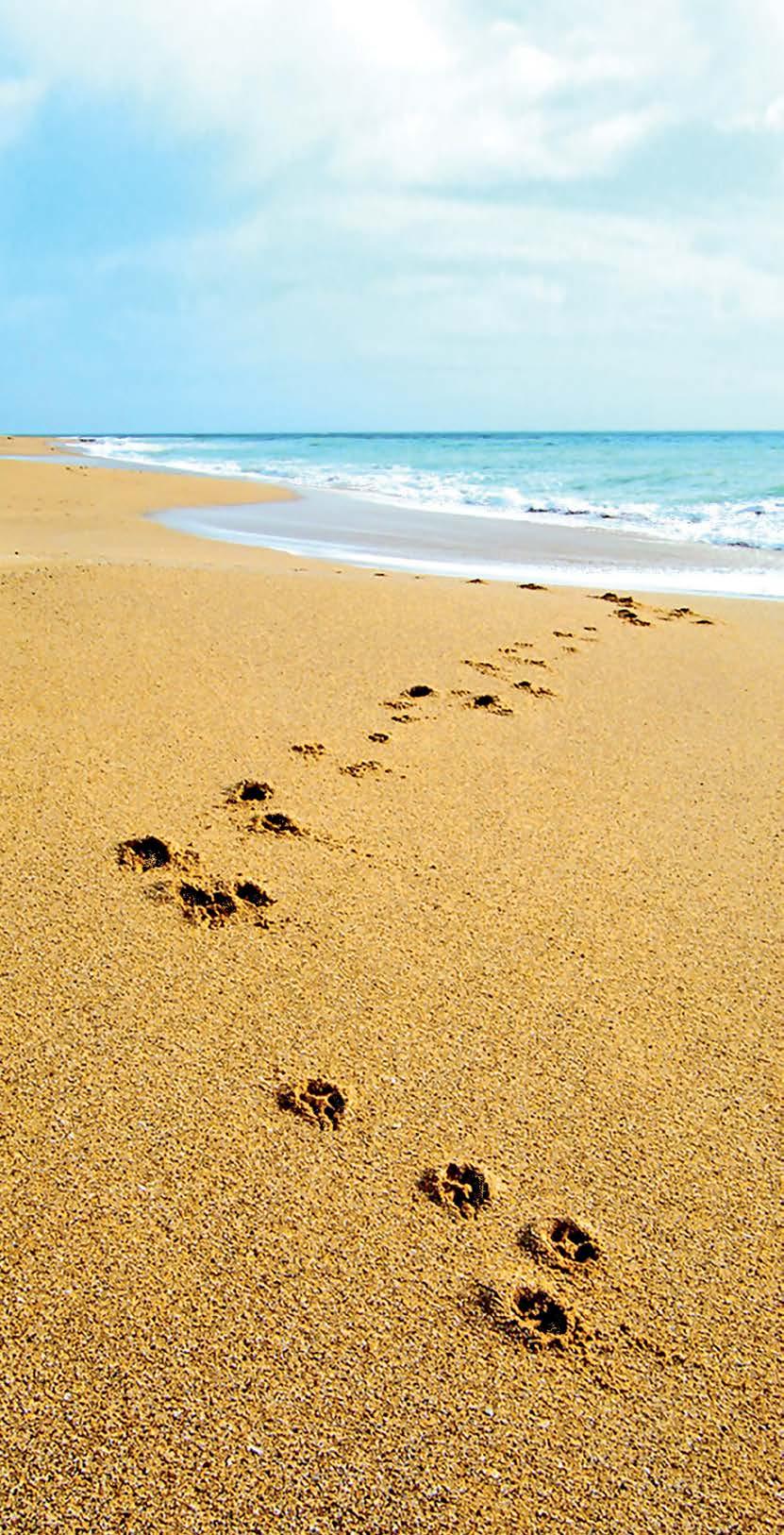
WOrth Noting
CRUISE INDUSTRY BUOYANT
The Crystal Symphony ship started sailing a series of luxury cruise roundtrips from Antigua as of the beginning of August and has become the first cruise line to homeport on a scheduled basis in St John’s. Plans are also in the works for P&O Cruises’ newest vessel, Arvia, to begin homeporting in 2023, and more are expected to follow suit.
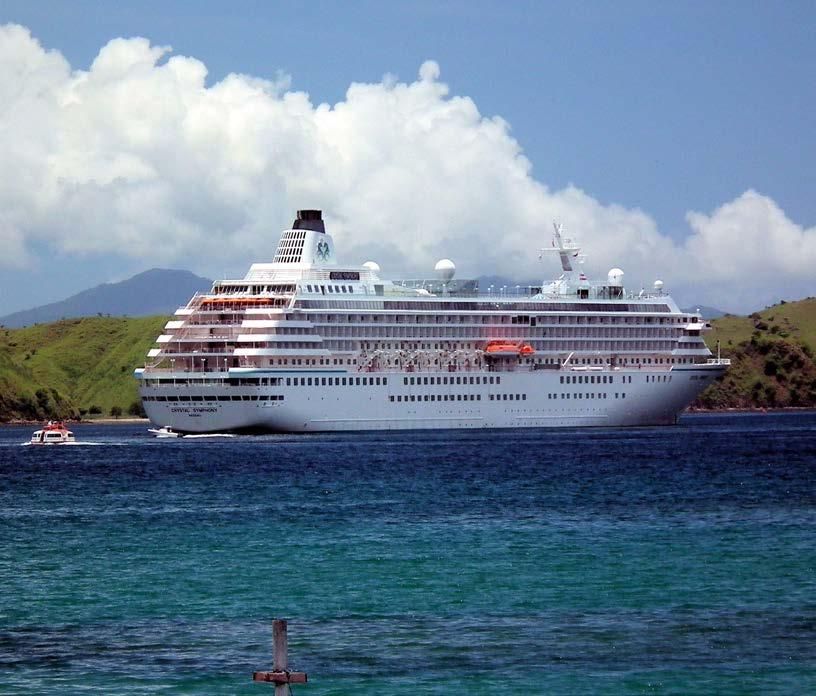
Virgin has also recently started a new cruise line, and Antigua & Barbuda will be one of the new line’s first stops.
The first of the Royal Caribbean Oasis-class ships – the largest cruise liners in the world – will be arriving in the fourth quarter of this year, taking advantage of the new fifth cruise berth at the port in St John’s, capable of receiving the biggest cruise ships in the world today.
TWIN ISLANDS REPLENISHING COCONUT PALM TREES
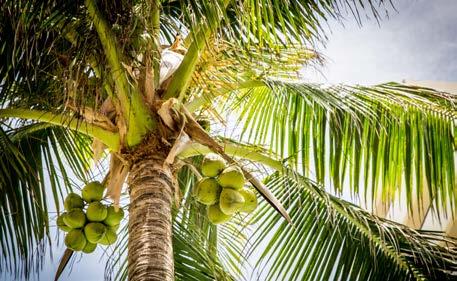
Antigua & Barbuda’s Forestry Unit is making significant progress with its reforestation efforts of coconut palm trees after large swathes of the trees have been destroyed by the lethal yellowing disease, which was first detected in 2012. The government has started the propagation of disease-tolerant seeds that were imported from Costa Rica. Fruits are expected from some trees in around three years.
ANTIGUAN
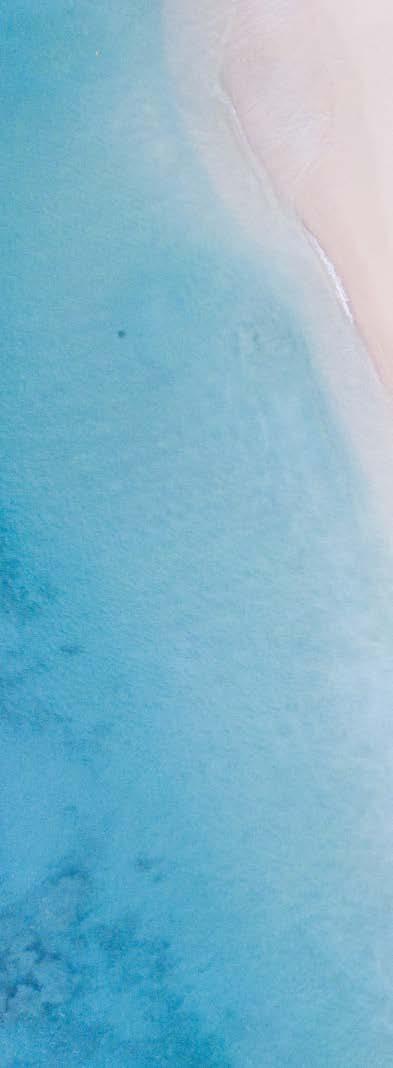
PROPERTIES WIN
TRIPADVISOR TRAVELERS’ CHOICE BEST OF BEST AWARDS
A host of Antigua & Barbuda hotels and resorts have been named in the Trip Advisor Travelers’ Choice Best of the Best Awards 2022.
Amongst the winners were Hermitage Bay, Hammock Cove, The Escape at Nonsuch Bay, Curtain Bluff, Cocobay, Cocos Hotel and Galley Bay Resort & Spa in various categories, including Top 25 Most Romantic Caribbean and Top 25 Luxury Caribbean hotels.
80 THE CITIZEN
TWIN ISLANDS HOST THE 32ND MEETING OF THE GREEN CLIMATE FUND
The 32nd Meeting of the Green Climate Fund (GCF) was held in May at the Nelson’s Dockyard National Park. The GCF is a global multilateral fund which was established to support the efforts of developing countries in responding to the challenges of climate change.
ENTERTAINMENT CENTRE TO BE BUILT BY JAMAICAN INVESTORS
A
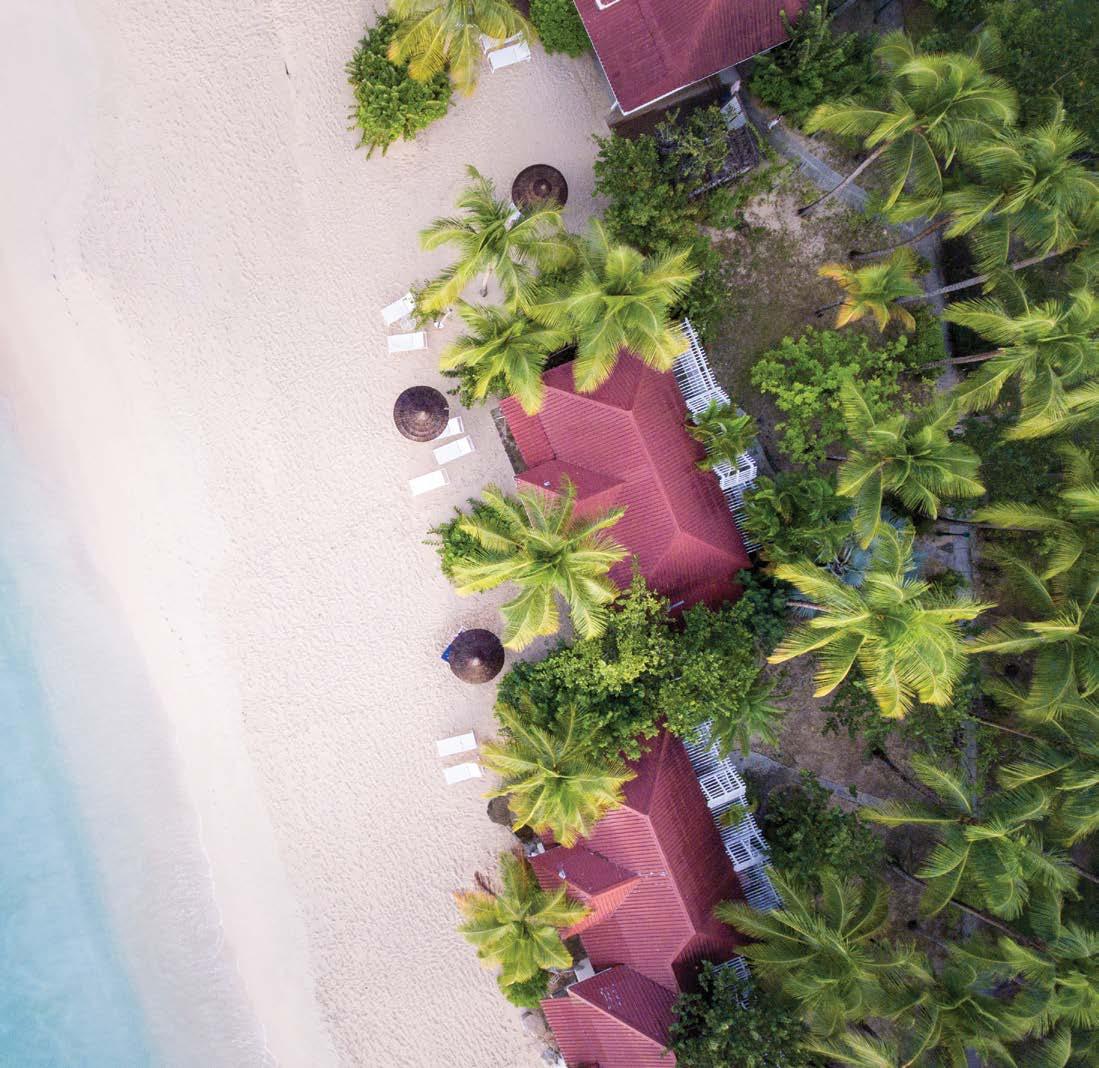
81 ISSUE 14 • AUGUST 2022
investment
to build
entertainment and
Jamaica-based
group has plans
a five-million-dollar
amusement centre at one of the islands’ many forts. The fort will reflect history and allow the exploration of caves and other natural assets.
ROBERT DE NIRO AND JAMES PACKER TO BUILD NEW HOTEL ON BARBUDA
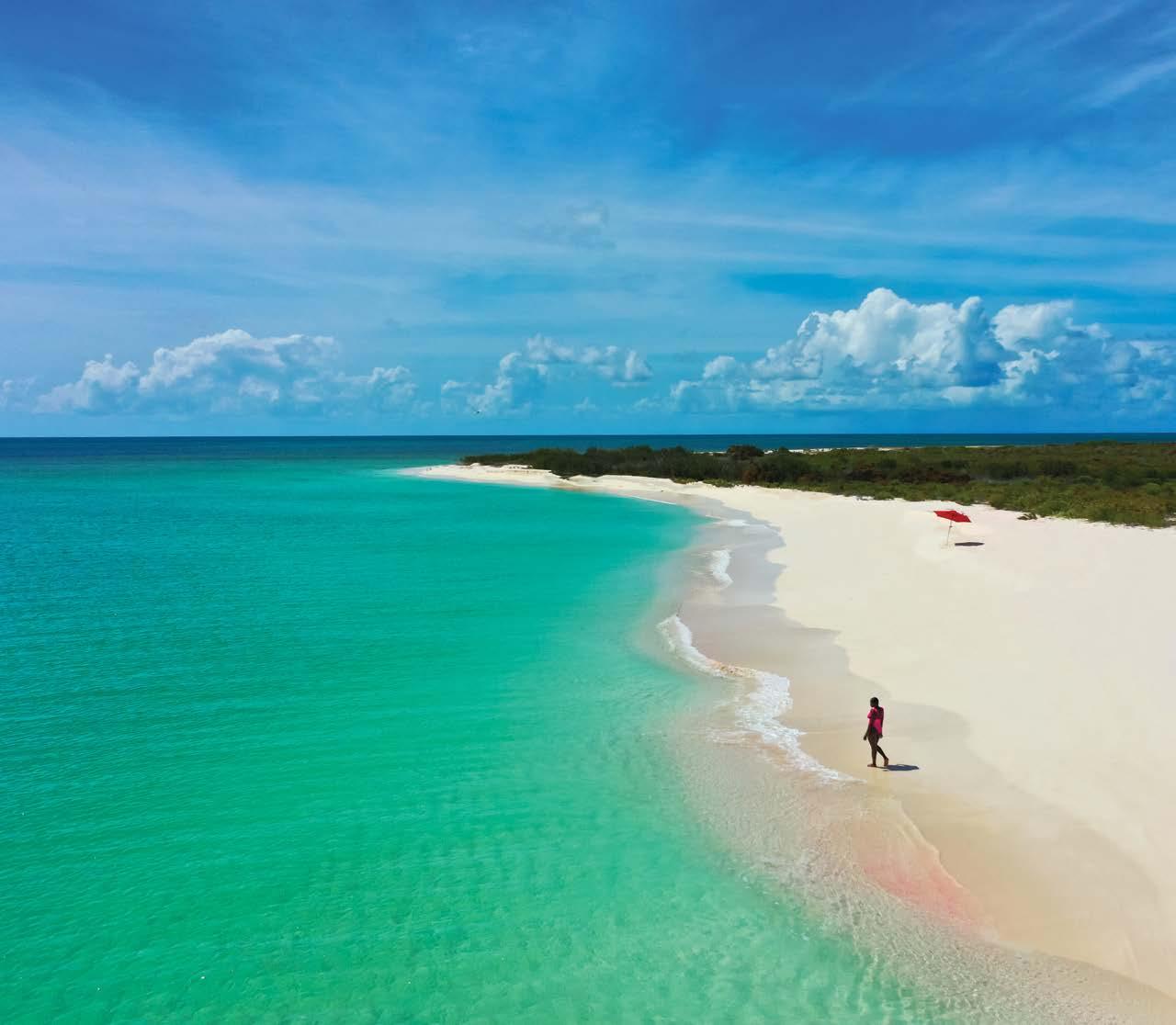
82 THE
worth noting
CITIZEN
Robert de Niro and James Packer recently announced their plans to invest US$733 million in a new resort to be built on the abandoned K Club Resort site. De Niro is already the owner of Barbuda’s Nobu Inn.
ANTIGUA & BARBUDA ASSUMES CHAIR OF CARIFORUM
Antigua & Barbuda are now the Chair of the Caribbean Forum (CARIFORUM) of the Organisation of African, Caribbean and Pacific States (OACP) for a one-year period.
CARIFORUM is a grouping of 14 independent CARICOM member states, the Dominican Republic and Cuba. Having begun in 1992, its function is part of the framework coordinating development between its members and the EU.
ABICE TO BE REDEVELOPED
In May, Prime Minister Gaston Browne signed an MOU for the twin islands to benefit from a multi-million-dollar grant from David Harrison, one of the UK’s leading entrepreneurs, to create the Harrison Centre Antigua & Barbuda Institute of Continuing Education (ABICE). Harrison, a regular visitor to the islands over the past 30 years, has contributed £4 million for the new learning facility.
SHOWCASE ANTIGUA & BARBUDA A RESOUNDING SUCCESS
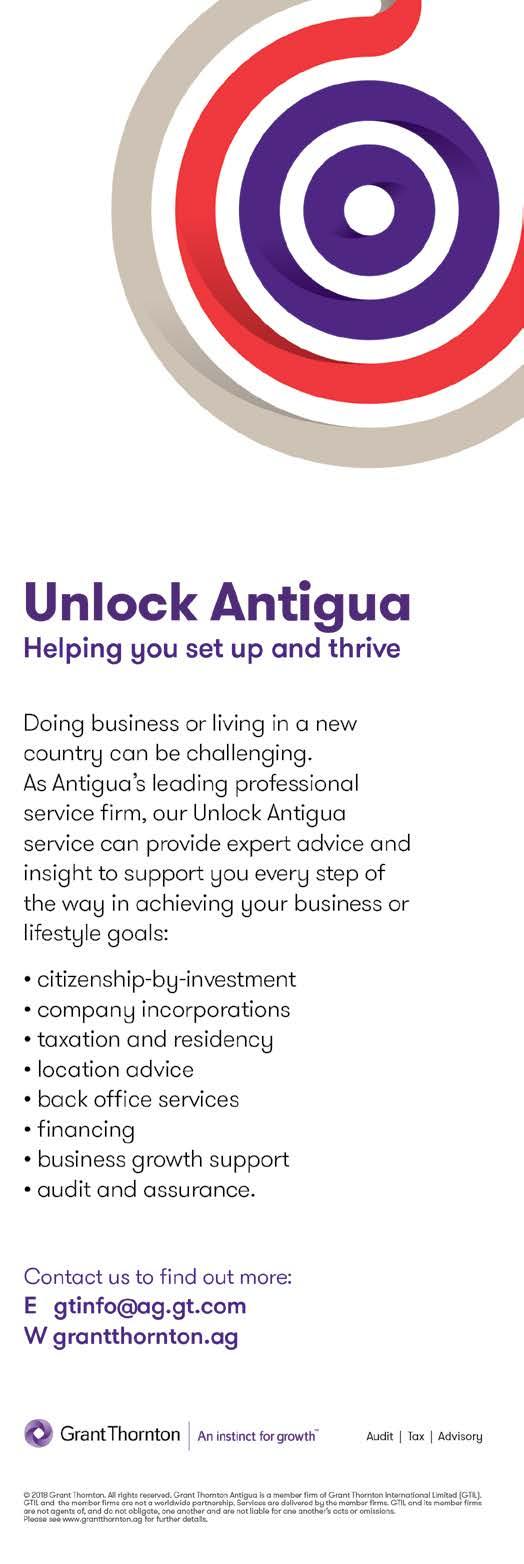
Now in its seventh year, the annual Showcase, the country’s premier travel trade business-to-business event, was held in June.
The Antigua and Barbuda Hotels & Tourism Association (ABHTA), together with the Antigua and Barbuda Tourism Authority (ABTA), hosted the event, which attracted major tour operators from across the Caribbean and Latin American region, North Africa, the United Kingdom, Europe and the UAE.
The event commenced with a Destination Round Table involving tourism stakeholders to fine-tune Vision 32, the twin islands’ ten-year plan for the travel industry to become the preferred destination in the Caribbean region all year round.
UWI FIVE ISLANDS TO BE UPGRADED
Seventy-five million US dollars will be invested into the University of the West Indies (UWI) to make it a world-class campus serving the sub-region. Architect Luke Robinson has been invited to present a master plan and take into account the incorporation of the Five Islands Primary School and eight acres of private land in the new designs. There will also be new buildings, an Olympic-sized swimming pool, amphitheatre, extensive library and additional classrooms. When finished, it is expected to occupy 40 acres of land and accommodate 11,000 students.

ANTIGUA SIGNS MOU ON ECONOMIC COOPERATION WITH GUYANA
The governments of Antigua & Barbuda and Guyana have signed a Memorandum of Understanding (MoU) providing for economic cooperation in eight areas, including tourism, financial services, agriculture, air transportation and energy.
WADADLI ACTION PLATFORM TAKES PLACE IN ANTIGUA
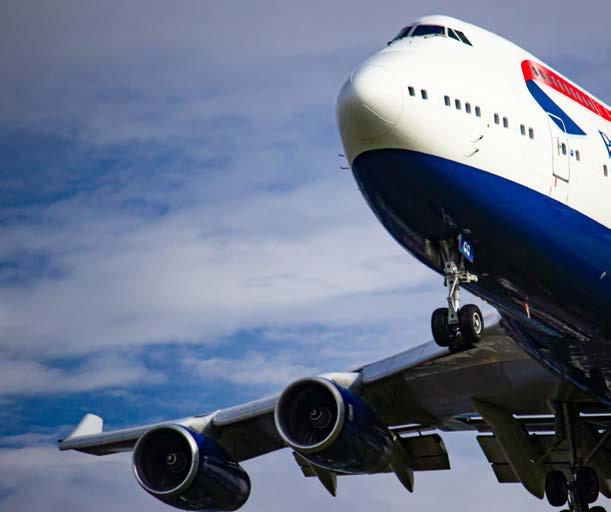
Heads of Small Island Developing States (SIDS) from around the globe were present at the two-day meeting in August of the Wadadli Action Platform to discuss the most critical issues that SIDs face in sustainable development. As Molwyn Joseph, Minster of Health, Wellness and the Environment, who led the event as Chair of AOSIS, stated, “Wadadli, meaning ‘our own’, signifies the leadership of SIDS in pioneering tailored and sustainable solutions, including through local and traditional knowledge.”. H.E. Mr Abdulla Shahid, President of the United Nations General Assembly, opened the event. Mr Shahid also found time to meet the Environmental Awareness Group to learn more about their conservation work in Antigua, Barbuda and Redonda.
WIOC BECOMES FIRST ANTIGUAN COMPANY TO LIST ON ECSE

The West Indies Oil Company (WIOC) recently became the first company from the twin islands, and the first energy company, to list on the Eastern Caribbean Securities Exchange (ECSE).

84 THE CITIZEN worth noting
SIR VIVIAN RICHARDS RECEIVES CARICOM’S HIGHEST HONOUR
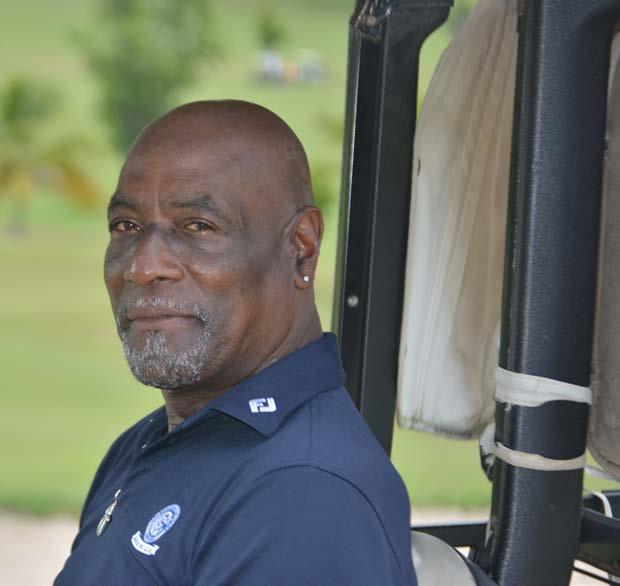
Legendary cricketer Sir Vivian Richards, one of the greatest batsmen in the sport’s history, has received the Order of the Caribbean Community. This is CARICOM’s highest award for those nationals who have made outstanding contributions to the development of the region.
FLIGHTS INCREASING TO ANTIGUA

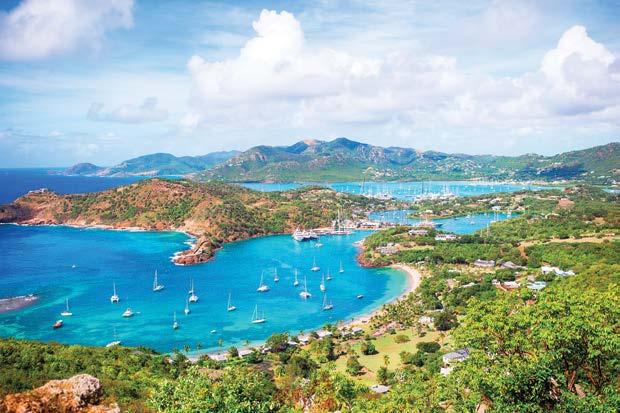
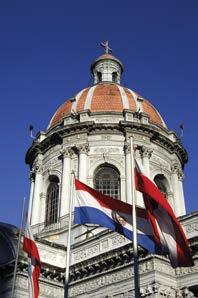

Due to high demand, American Airlines is extending its daily flights from New York to V.C. Bird International Airport starting later this year. The islands will receive seven flights weekly from New York until at least the end of this year. AA also provides daily service to the country from Miami.

Low-cost carrier Frontier Airlines will begin year-round service from Orlando, Florida, to the twin islands starting in December. The service will operate on Saturdays and offer an important gateway to Antigua, with links to other major US cities.
British Airways recently celebrated its 60th anniversary of flying to Antigua from the UK. The airline has recently announced that in 2023 it will connect Aruba from the UK via Antigua on Thursdays and Sundays. As of October this year, BA will also be offering Sunday flights to Grenada via Antigua.
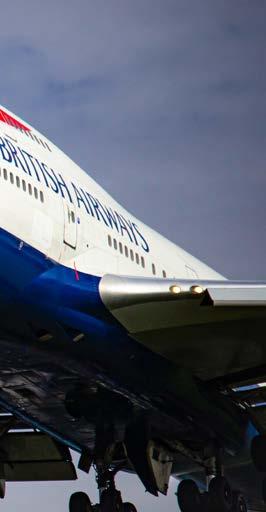
WIOC BECOMES FIRST ANTIGUAN COMPANY TO LIST ON ECSE
The West Indies Oil Company (WIOC) recently became the first company from the twin islands, and the first energy company, to list on the Eastern Caribbean Securities Exchange (ECSE).
ANTIGUA AIRWAYS TO CONNECT TWIN ISLANDS WITH WEST AFRICA
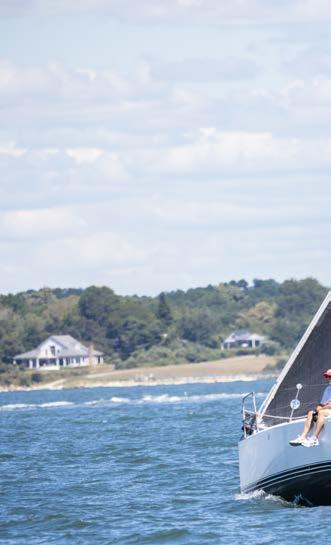
A new airline, Antigua Airways, is expected to commence flights from West Africa to the twin islands later this year. A statement issued after a recent cabinet meeting said that the company operating the airline “is financed by wealthy Africans who wish to open a new route between the African continent and the Eastern Caribbean. The firm hopes to collaborate with LIAT, flying passengers north and south of Antigua who have come from West Africa on Antigua Airways.”
THE GREAT HOUSE ANTIGUA, ONE OF THE HISTORIC HOTELS WORLDWIDE
The Great House Antigua, a boutique hotel set in a 350-year-old house surrounded by 26 acres of paradise, has been inducted into Historic Hotels Worldwide, the official programme of the National Trust for Historic Preservation (USA) for recognising and celebrating the finest historic hotels around the globe.
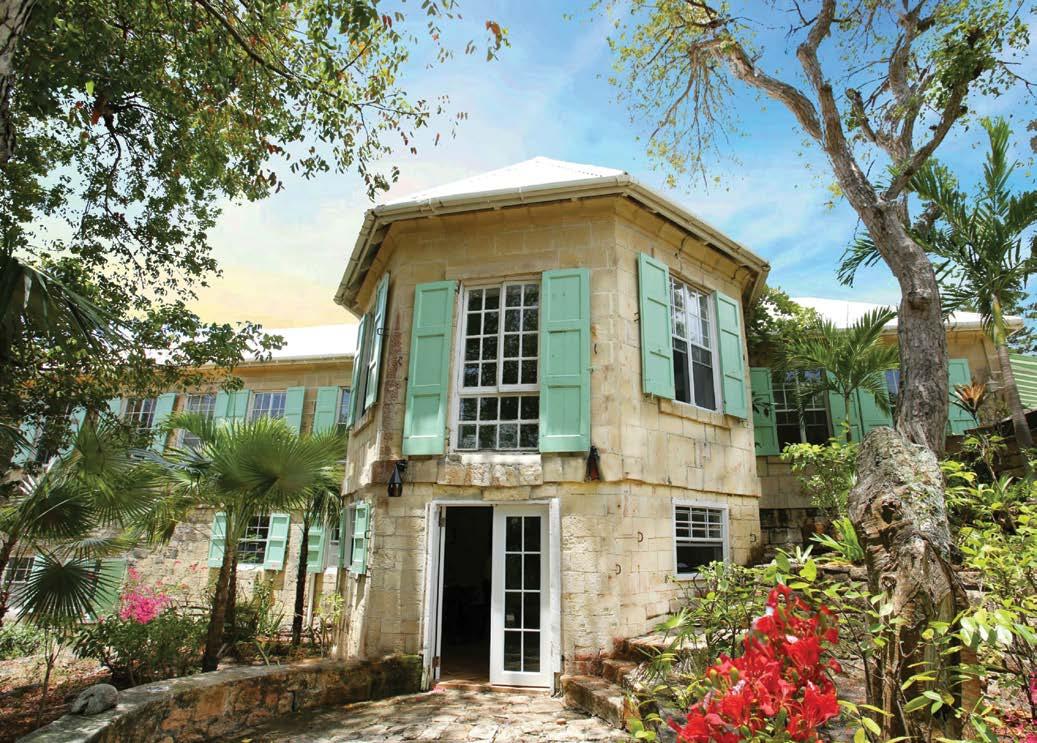
86 THE CITIZEN worth noting
HAMPTONS FESTIVAL AND REGATTA




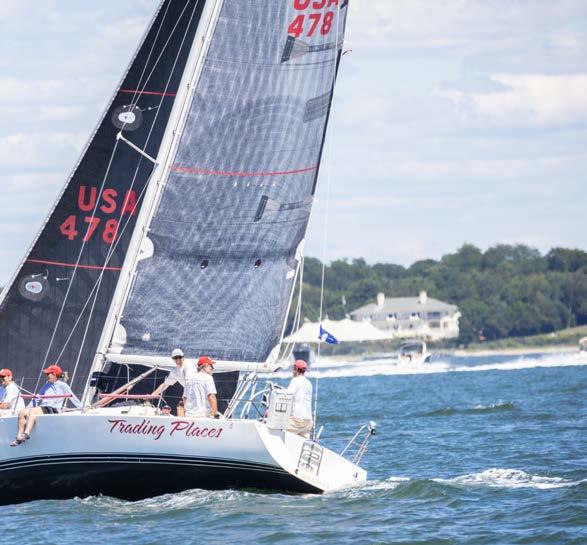
The Antigua & Barbuda Tourism Authority (ABTA) held a fourday Antigua & Barbuda Hamptons Festival in the exclusive summer playground for New York’s finest in mid-August. Now in its 12th year, the Antigua & Barbuda Hamptons Challenge Regatta was expanded to a family festival offering steel pan music, food, drink and other activities showcasing the islands to the attendees. The highlight of the festival was the regatta in which 19 yachts competed. The winners received an all-expenses-paid trip to participate in next year’s Antigua Sailing Week.
ANTIGUAN WINNER OF LEADING LIGHT AWARD


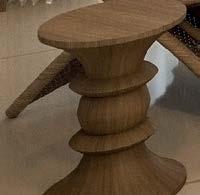
The Wellness Tourism Association (WTA) – a global network of partners in the wellness tourism industry – have selected Refica Attwood, Founder and Executive Director of Wallings Nature Reserve, as one of the two first individuals to receive the organisation’s first Leading Light Award. The award is to honour companies or individuals who have successfully launched and implemented an initiative that upholds and furthers the principles of the association’s mission “to shape and support sustainable wellness tourism for the global good”.
HOTEL RESERVATIONS BOOMING DURING SUMMER SEASON

After an exceptional winter season, the summer season is also turning out to be a busy one for the hotel and hospitality industry in the twin islands, with hotels in June and July booked at 70 to 80 percent capacity, beating all records.

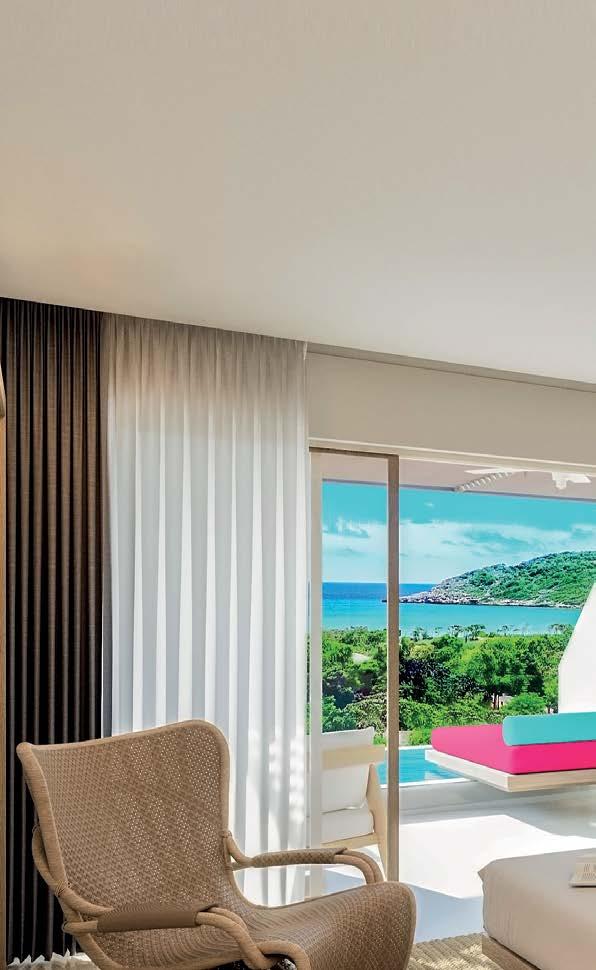
CELEBRATIONS ACROSS THE ISLANDS BACK AFTER TWO-YEAR HIATUS
Barbuda’s Caribana Festival took place over four days at the beginning of June under the theme “Reviving our culture needs me and you”. It was a magical weekend full of music, food, sports and horse racing.
Likewise, Antigua’s famous Carnival festivities were back with a bang at the beginning of August. Six days of celebrations took place under the theme “Experience Greatness – Again!”. Thousands of revellers took the streets in the colourful spectacle of music, costumes and festivities.
CIP Approved boutique hotel & spa, located at Half Moon Bay, Antigua. E: info@moongateantigua.com T: +1 (268) 562-2625 MOO N G A T E A N TIG U A . C O M
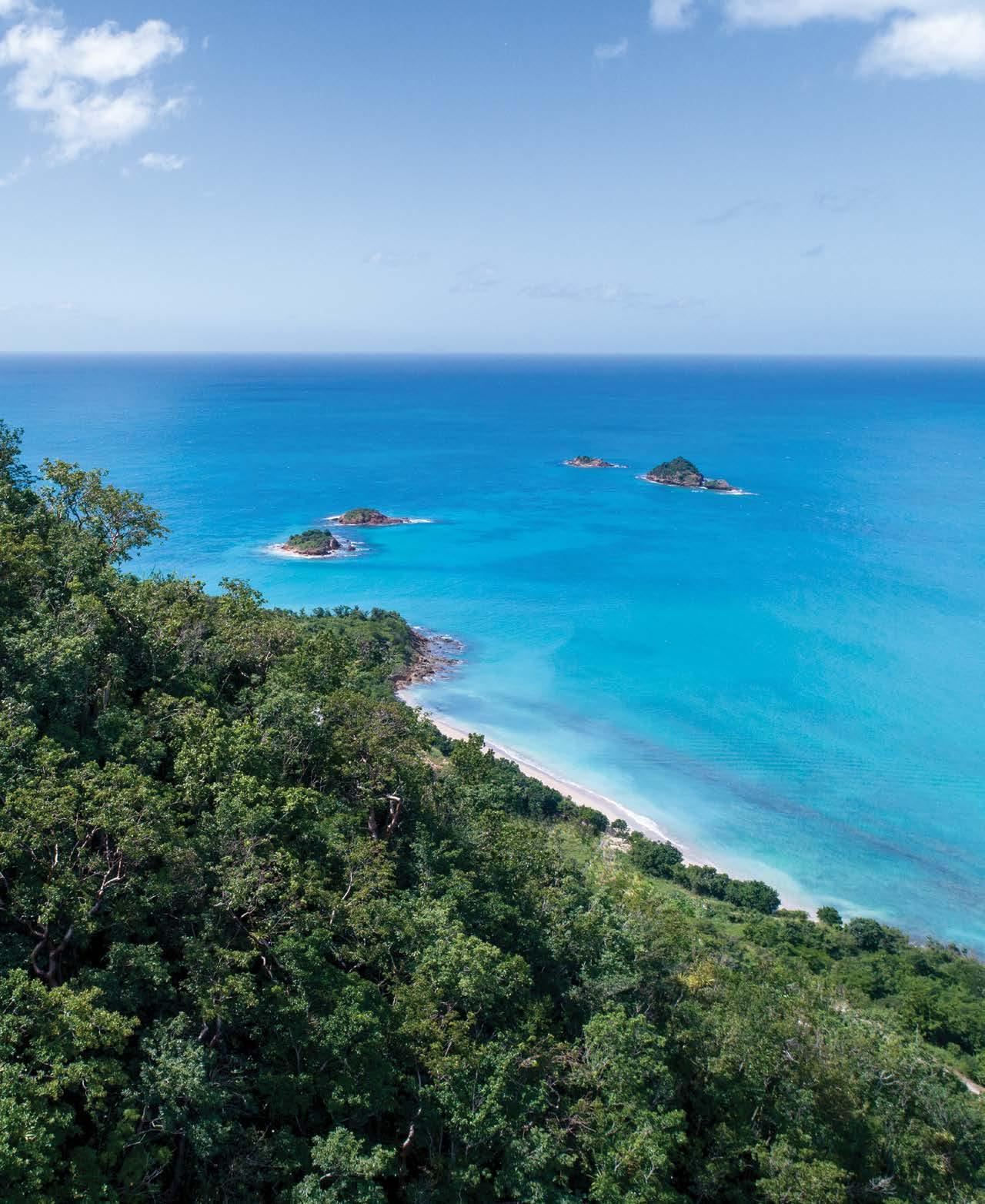
88 THE CITIZEN
Become a citizen of one of the world’s most beautiful destinations
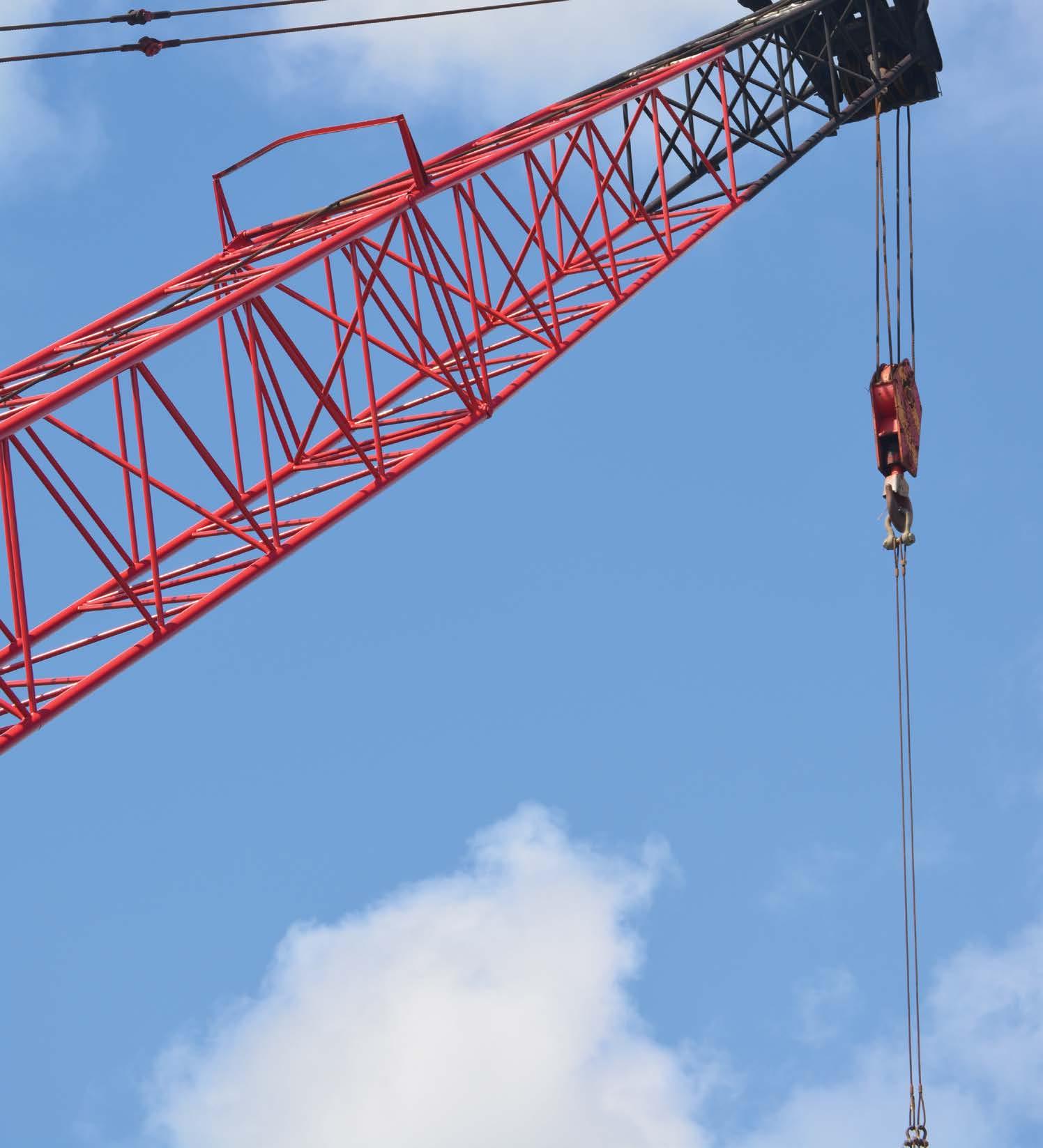
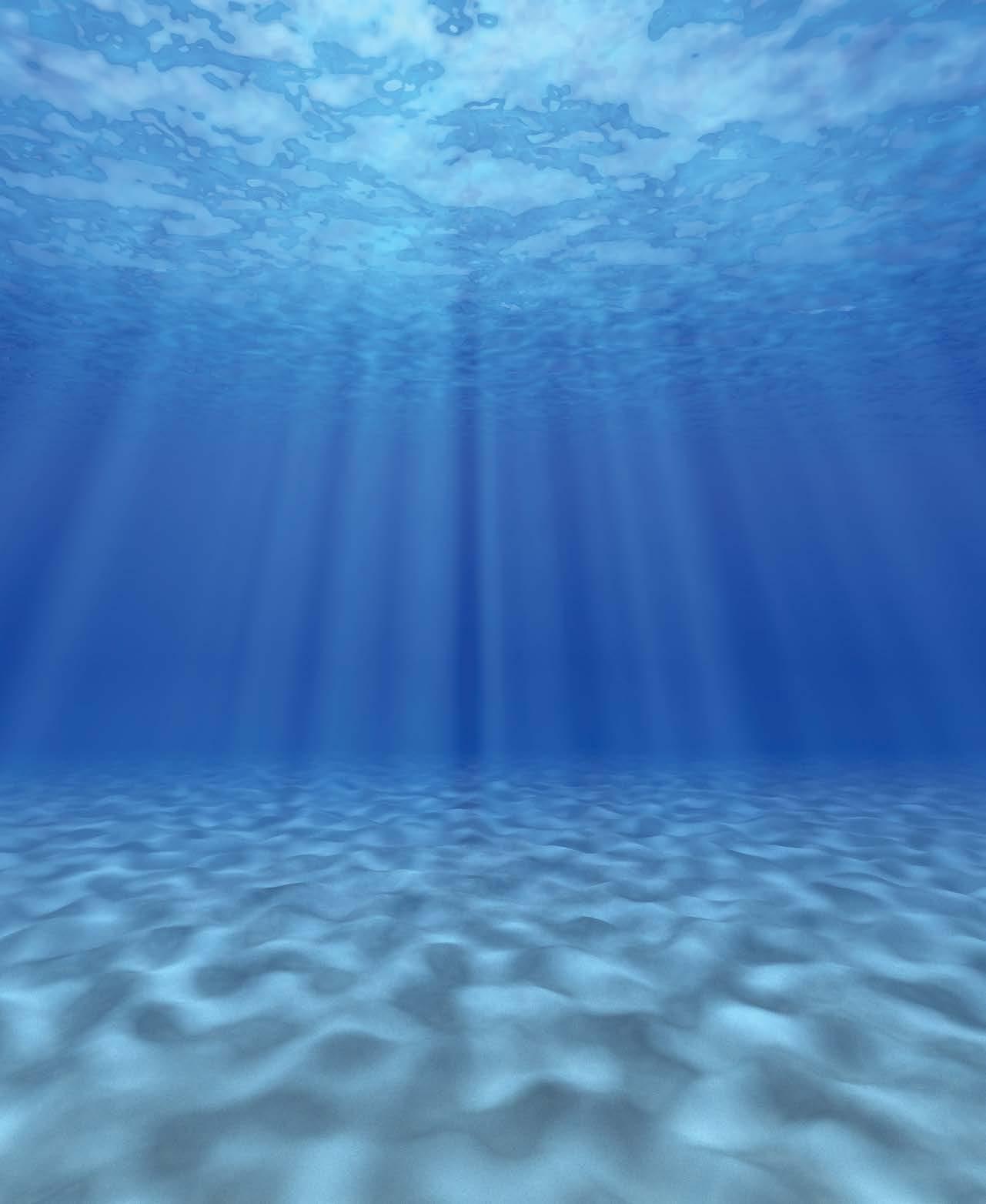
conleybrowne@blueoceanmarine.com | www.blueoceanmarine.com | +1 268 464 0145
No matter how big or small a project, we’ll deliver the solutions you need! WE KNOW THE CARIBBEAN LIKE NO-ONE ELSE Blue Ocean Marine, dredging specialists of the Caribbean for all maritime infrastructure projects such as mechanical and hydraulic dredging, beach rehabilitation as well as seabed intervention, trenching, sweeping & cleaning, leveling & sand-filling and outcrop removal. From conception to completion, delivering the best in dredging services.


















